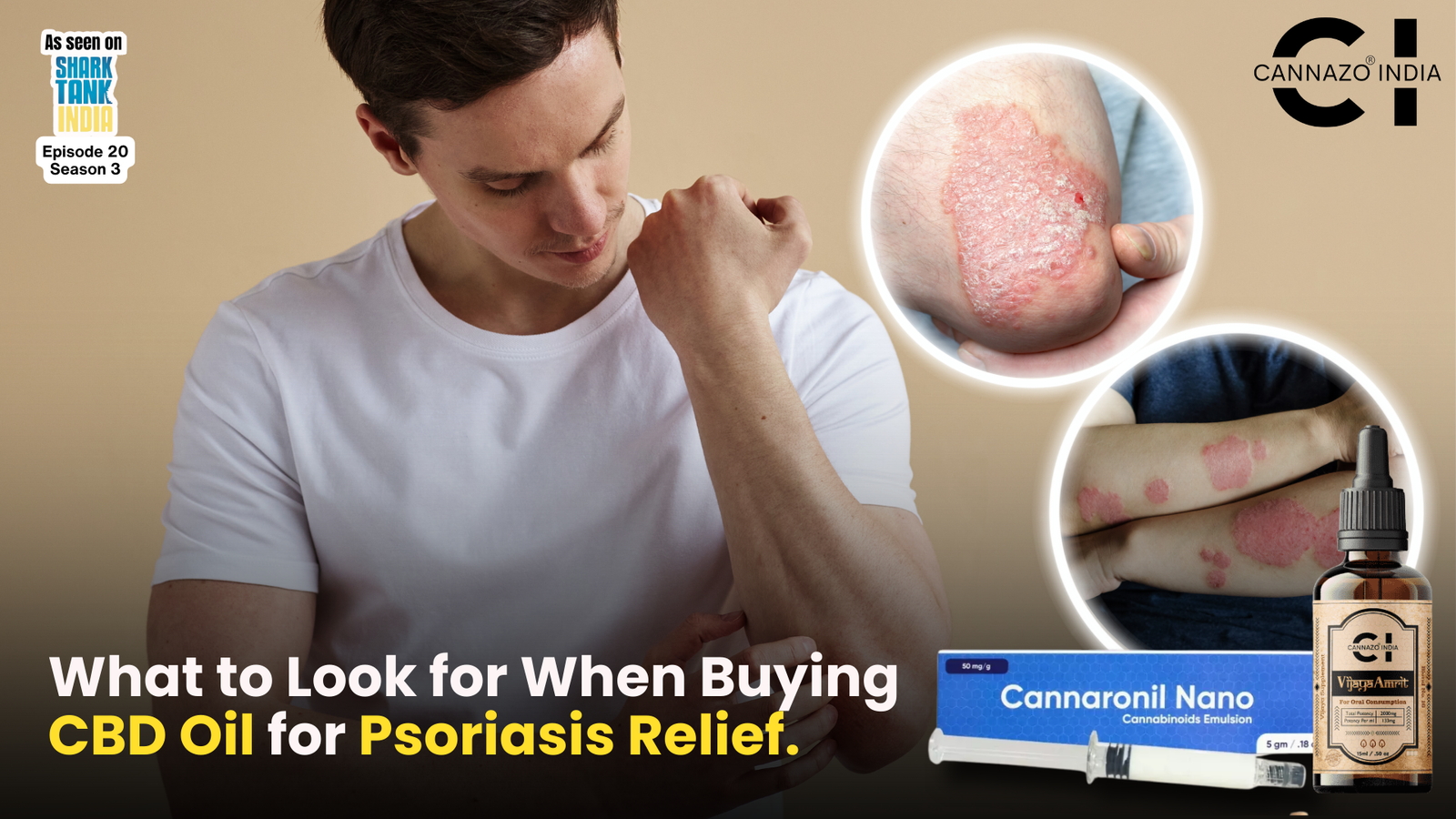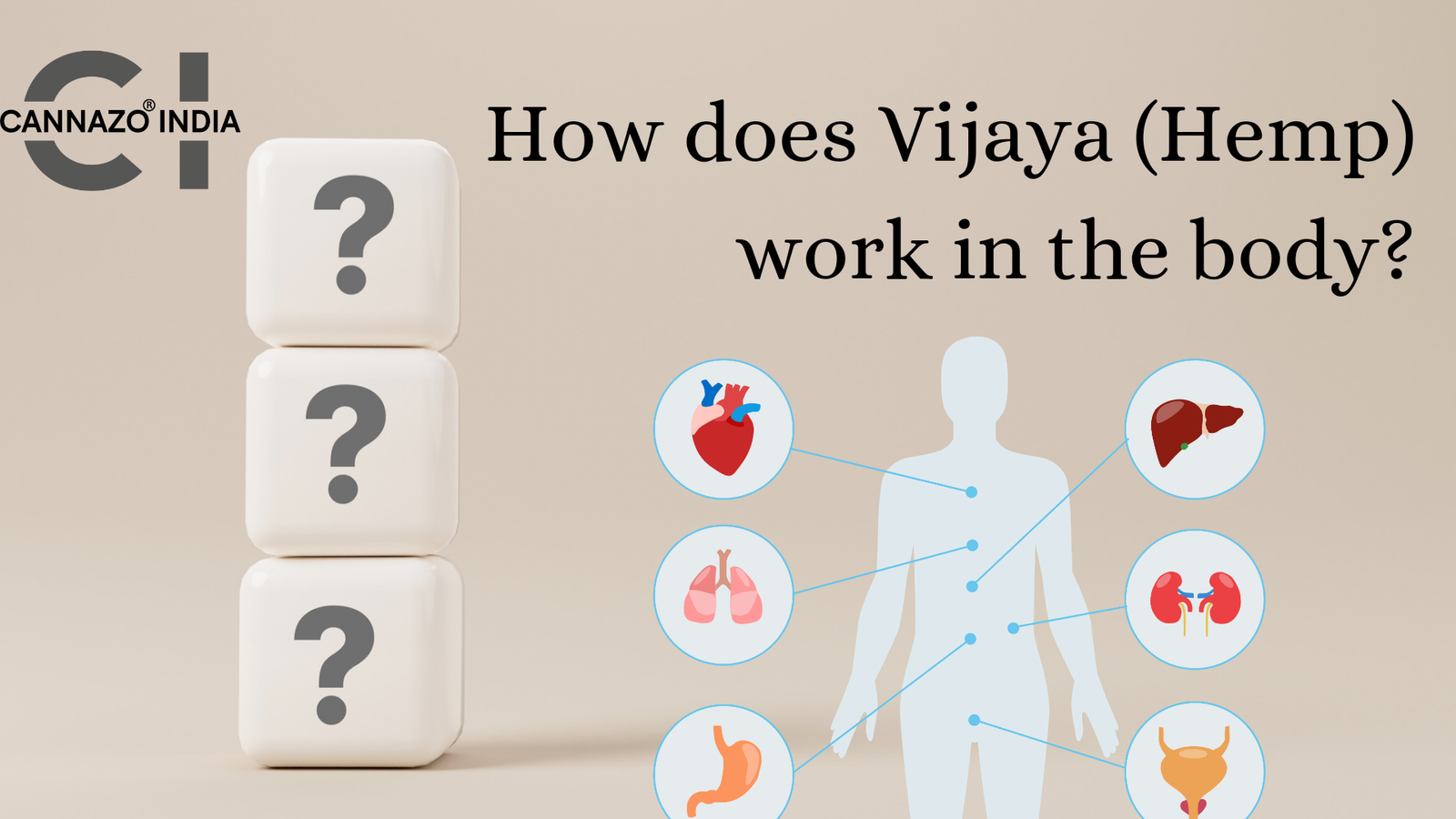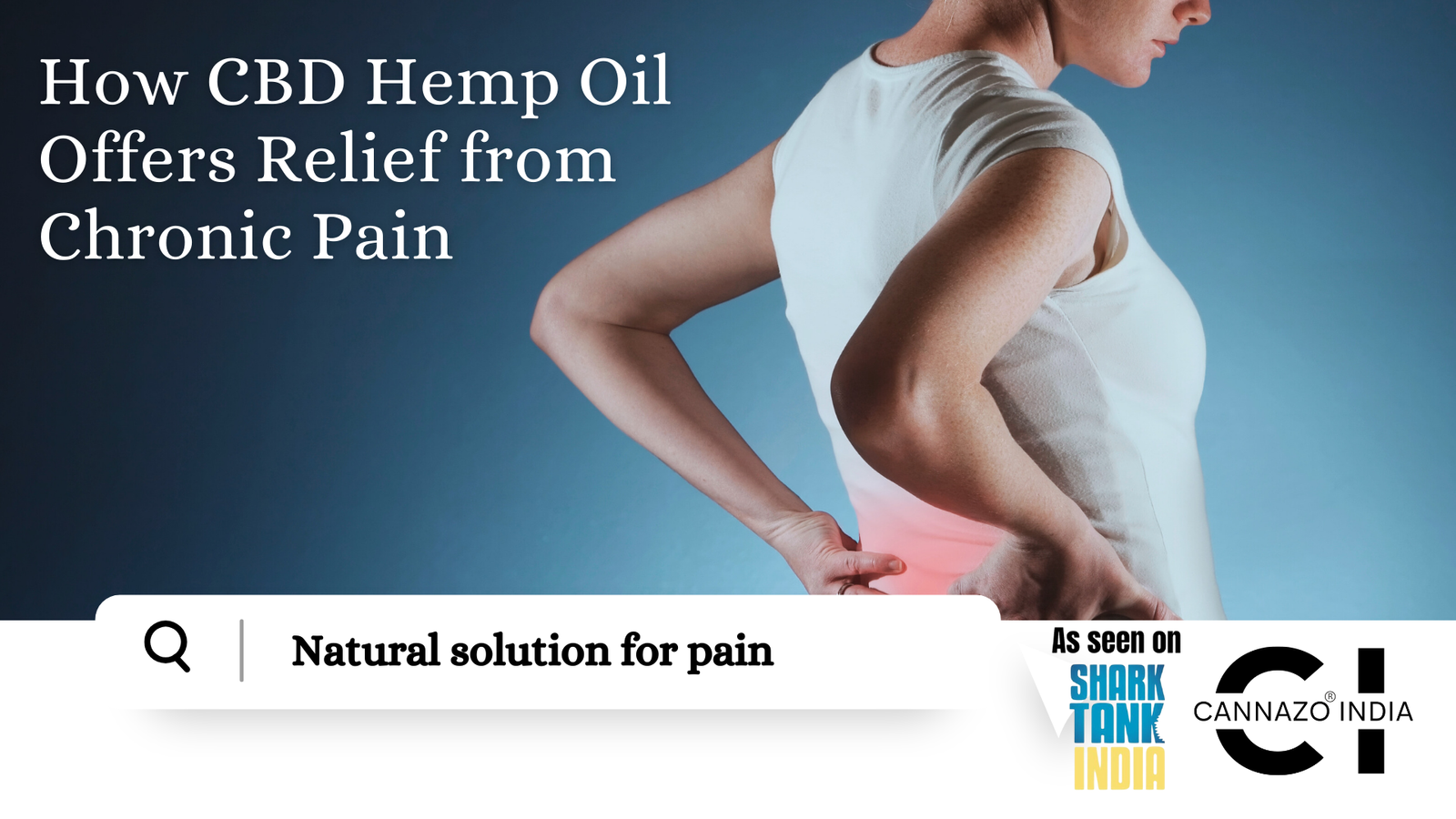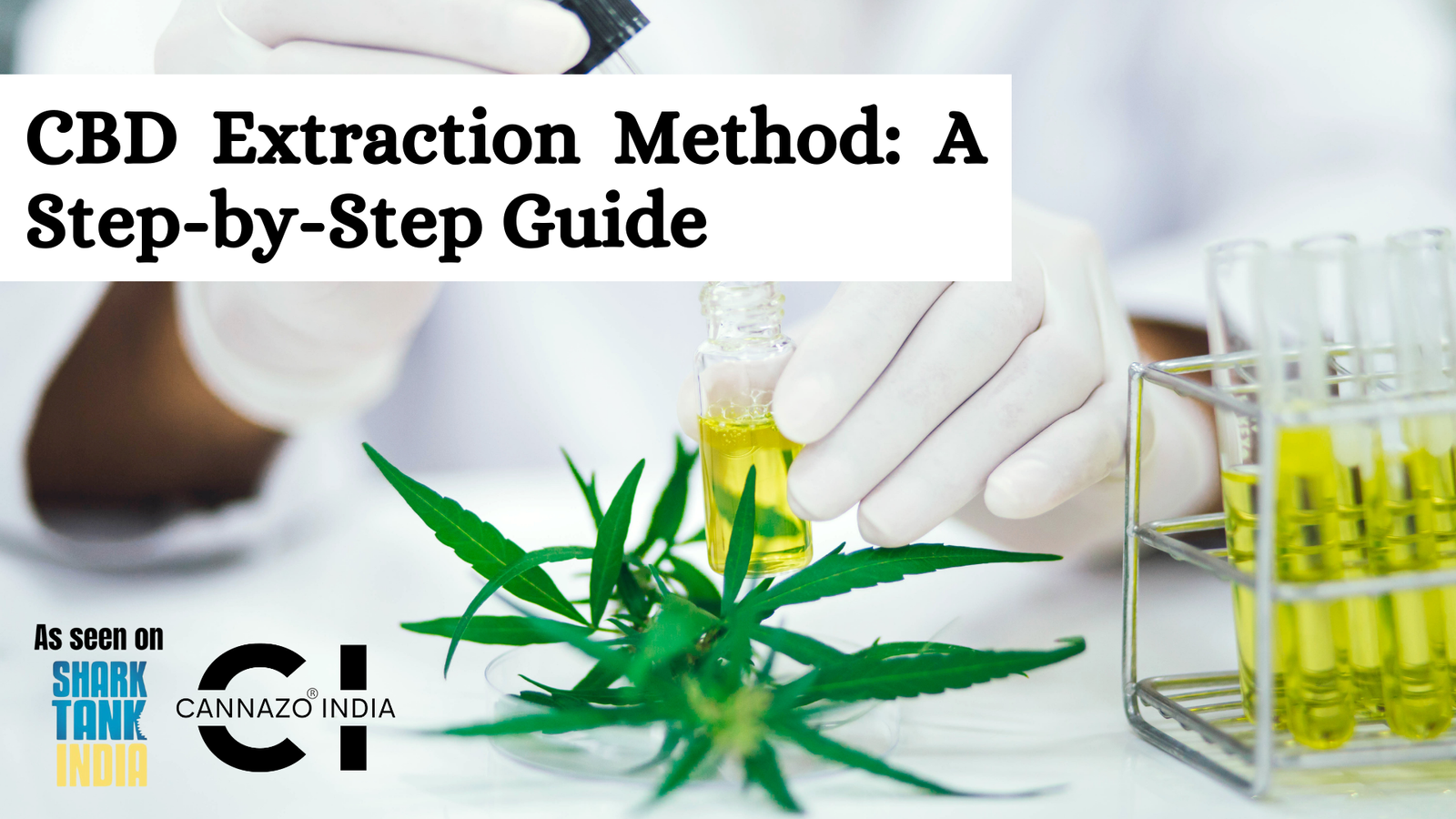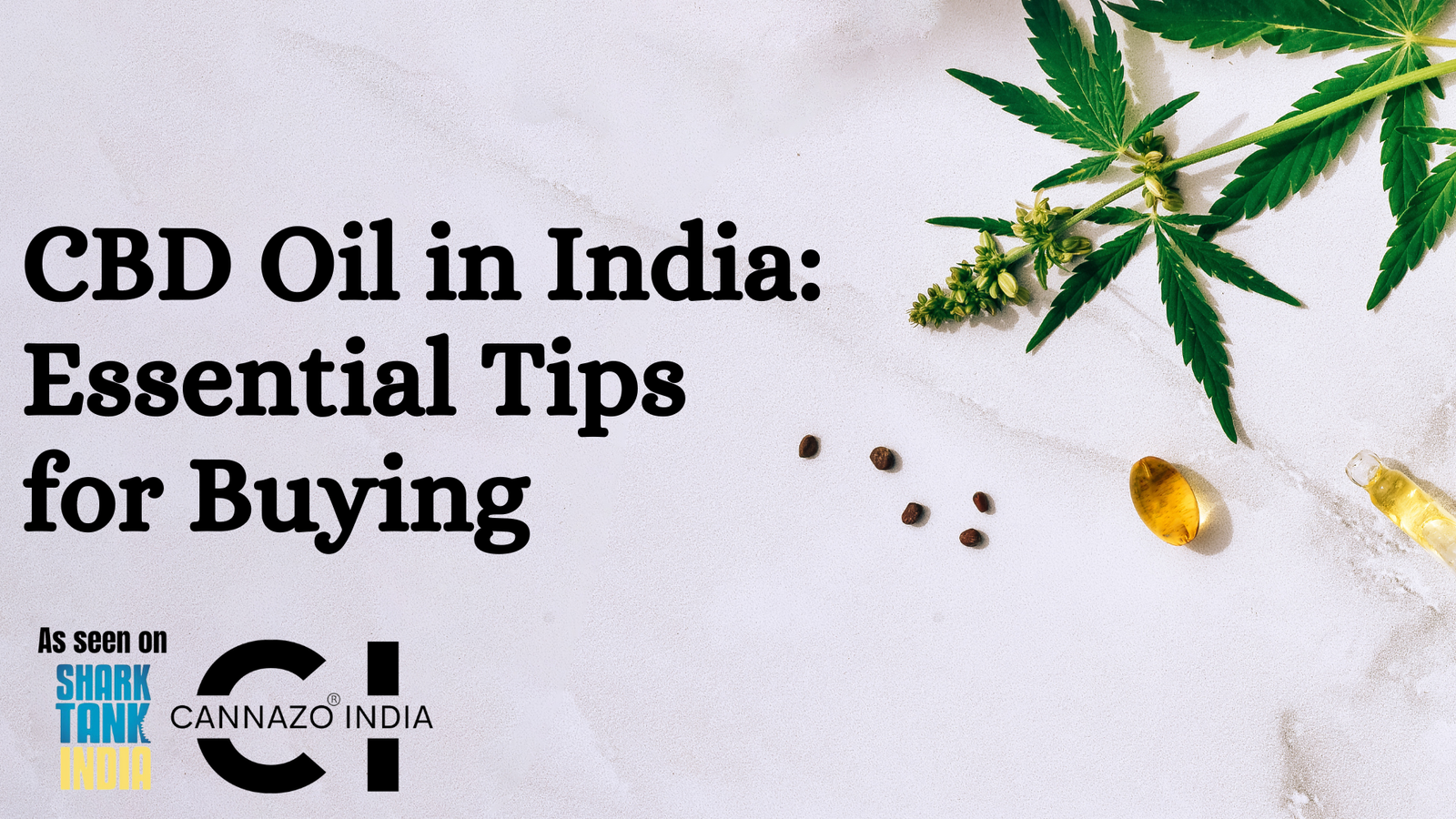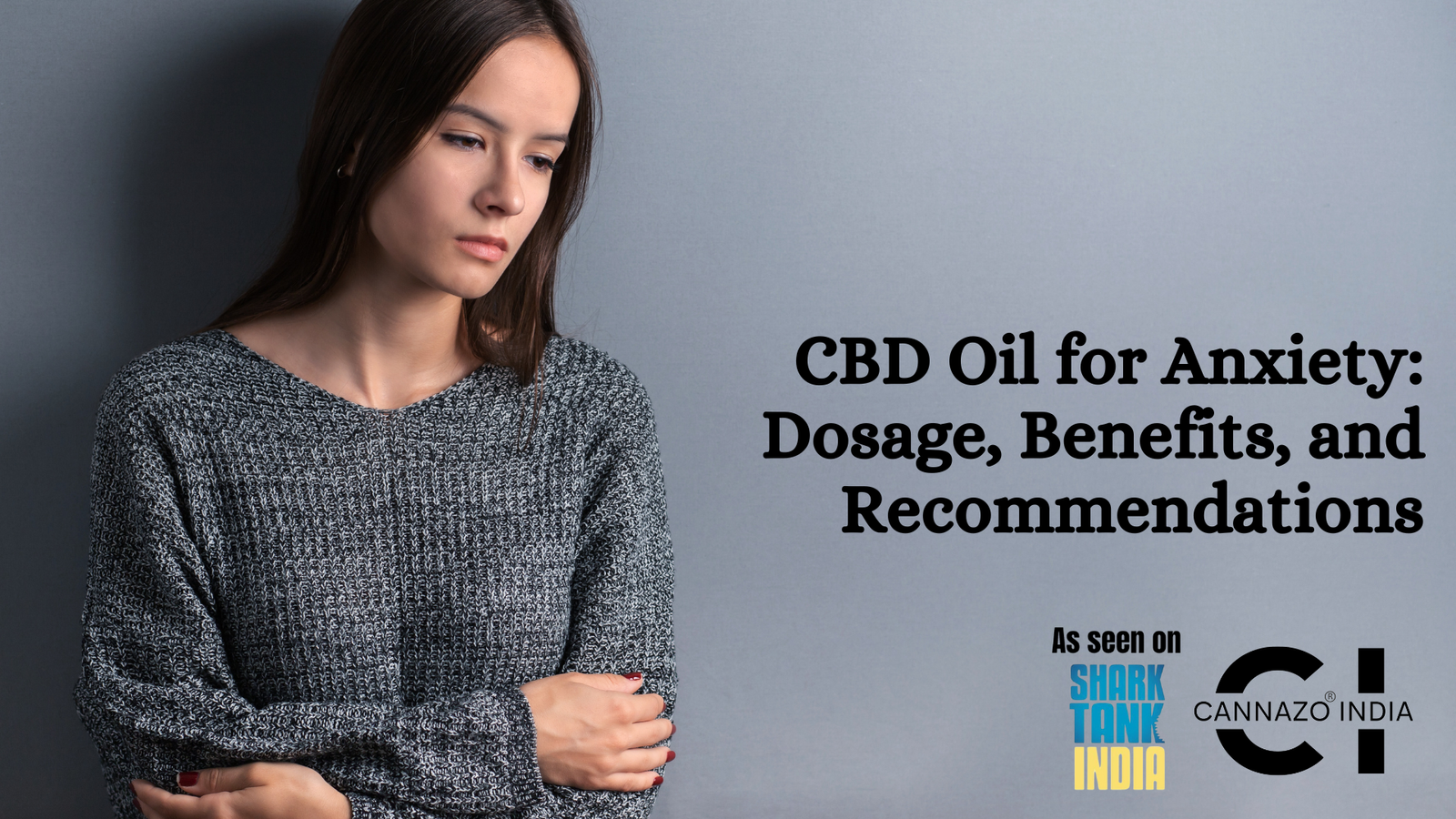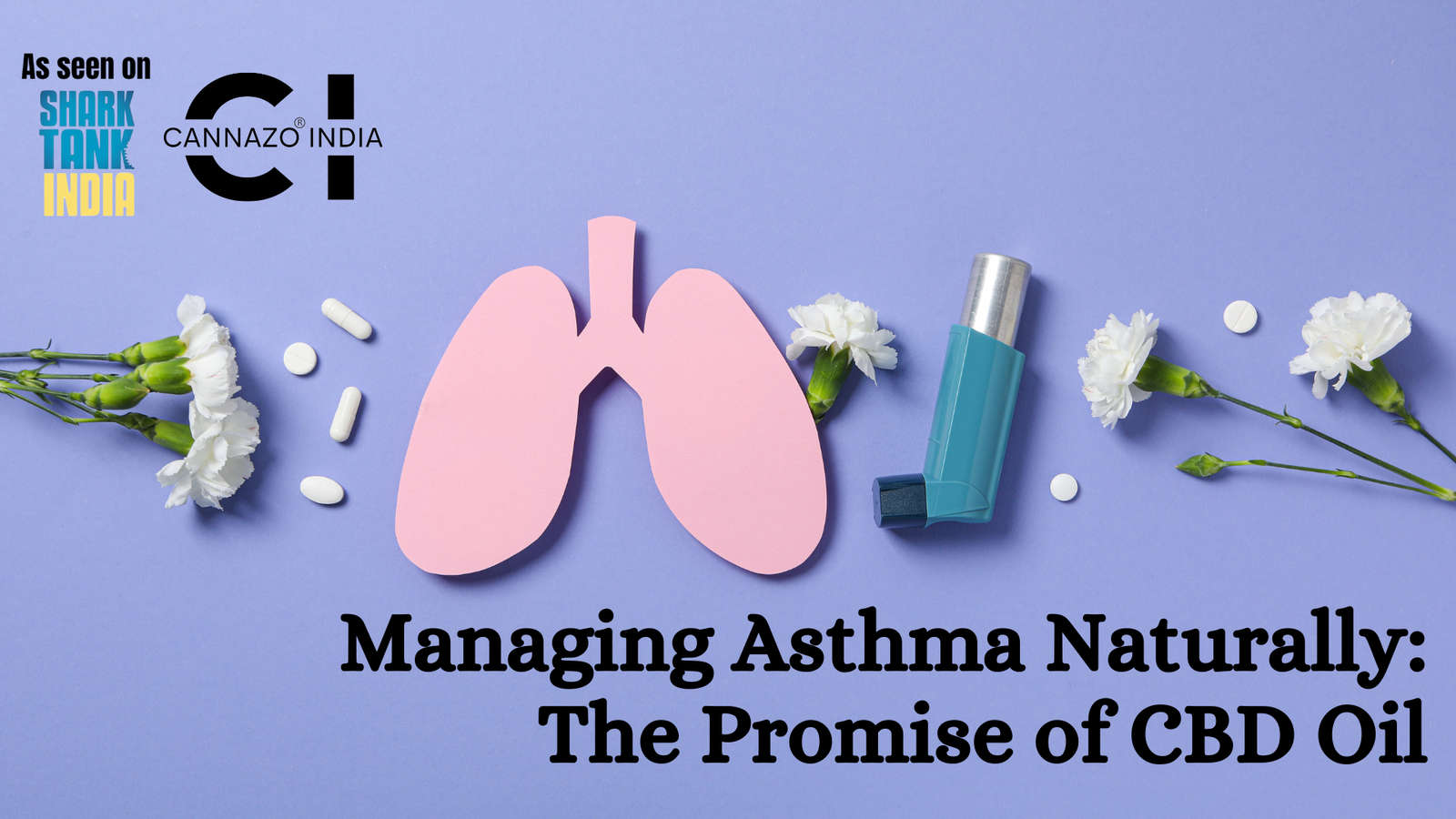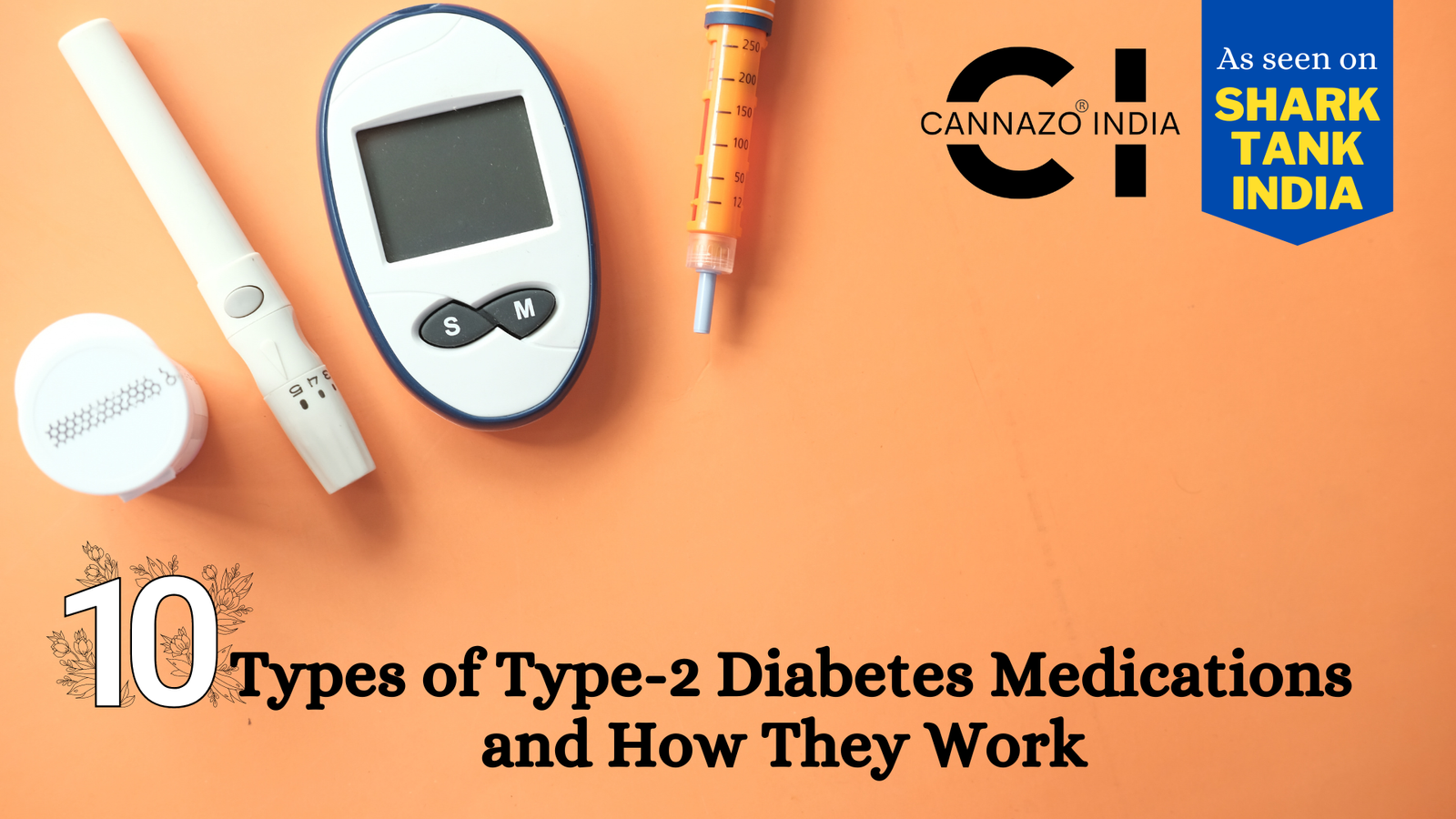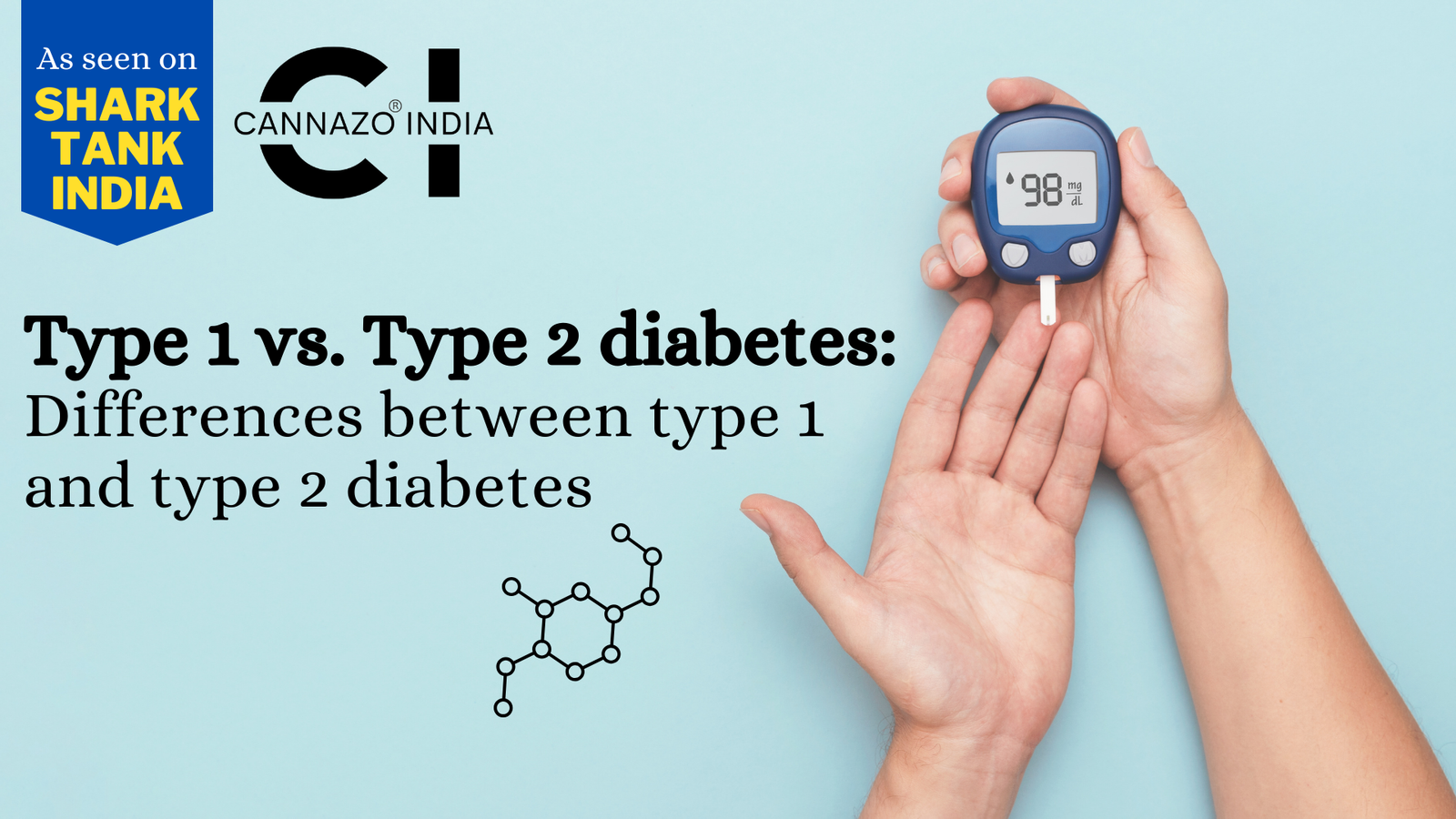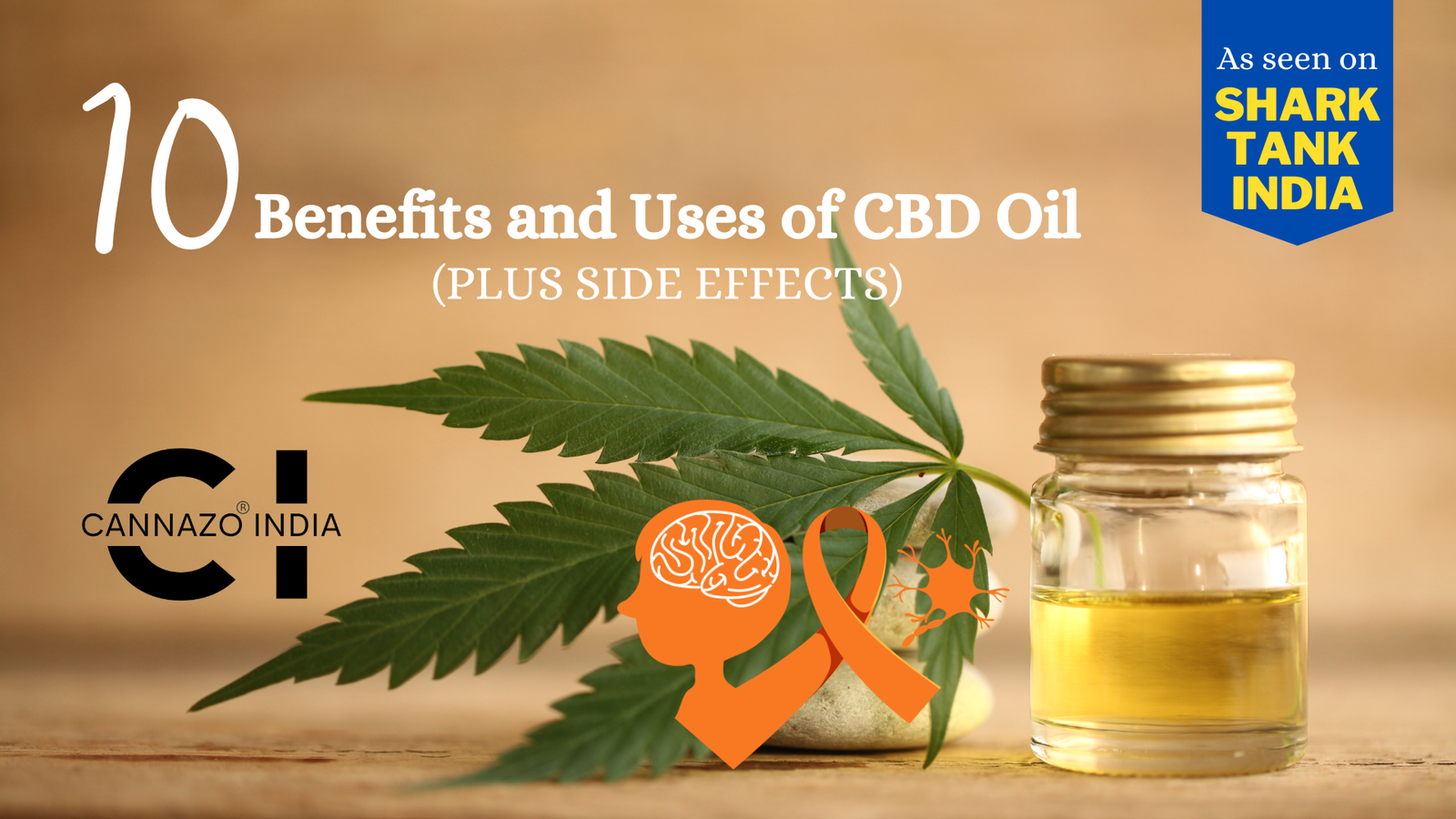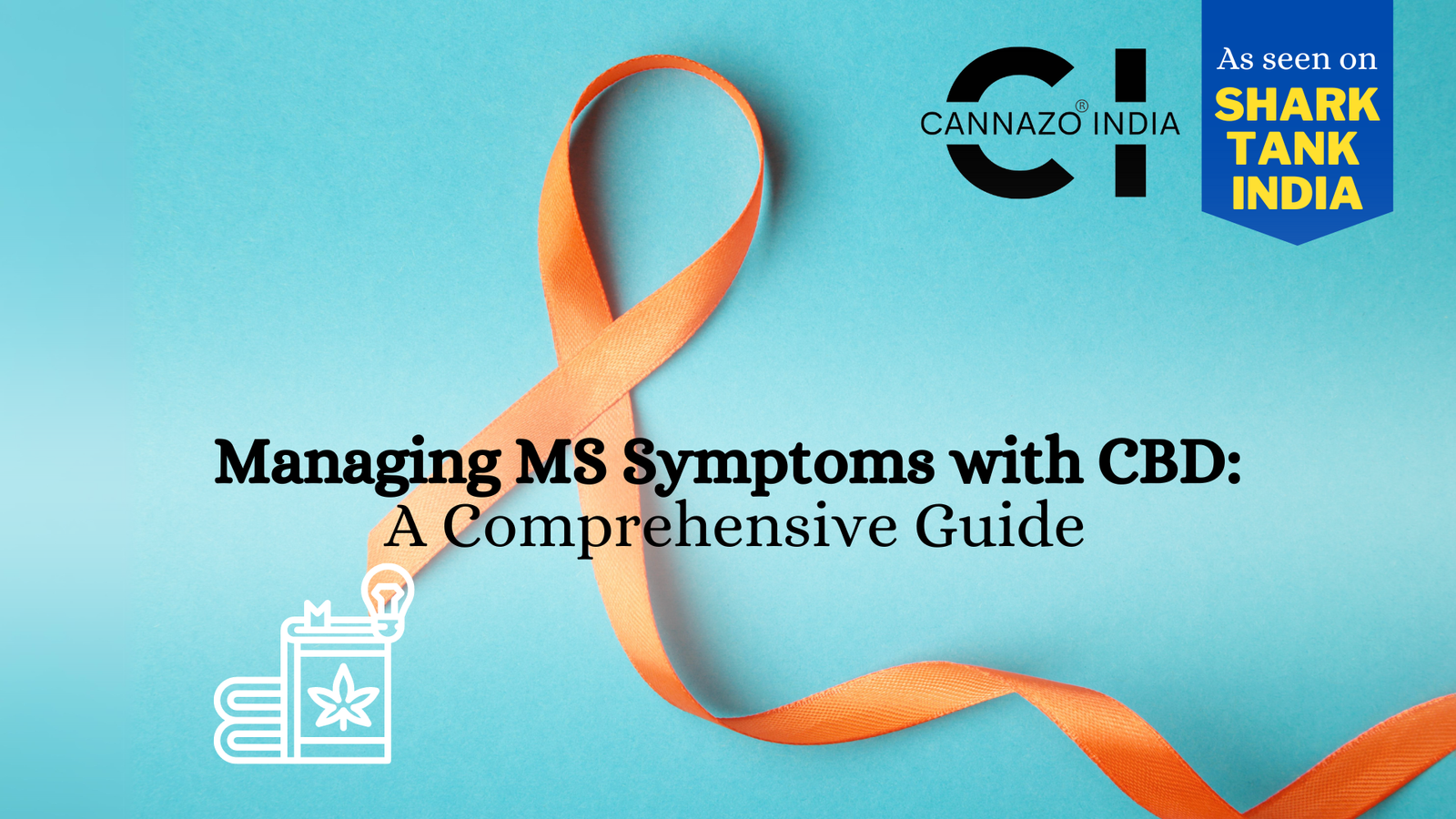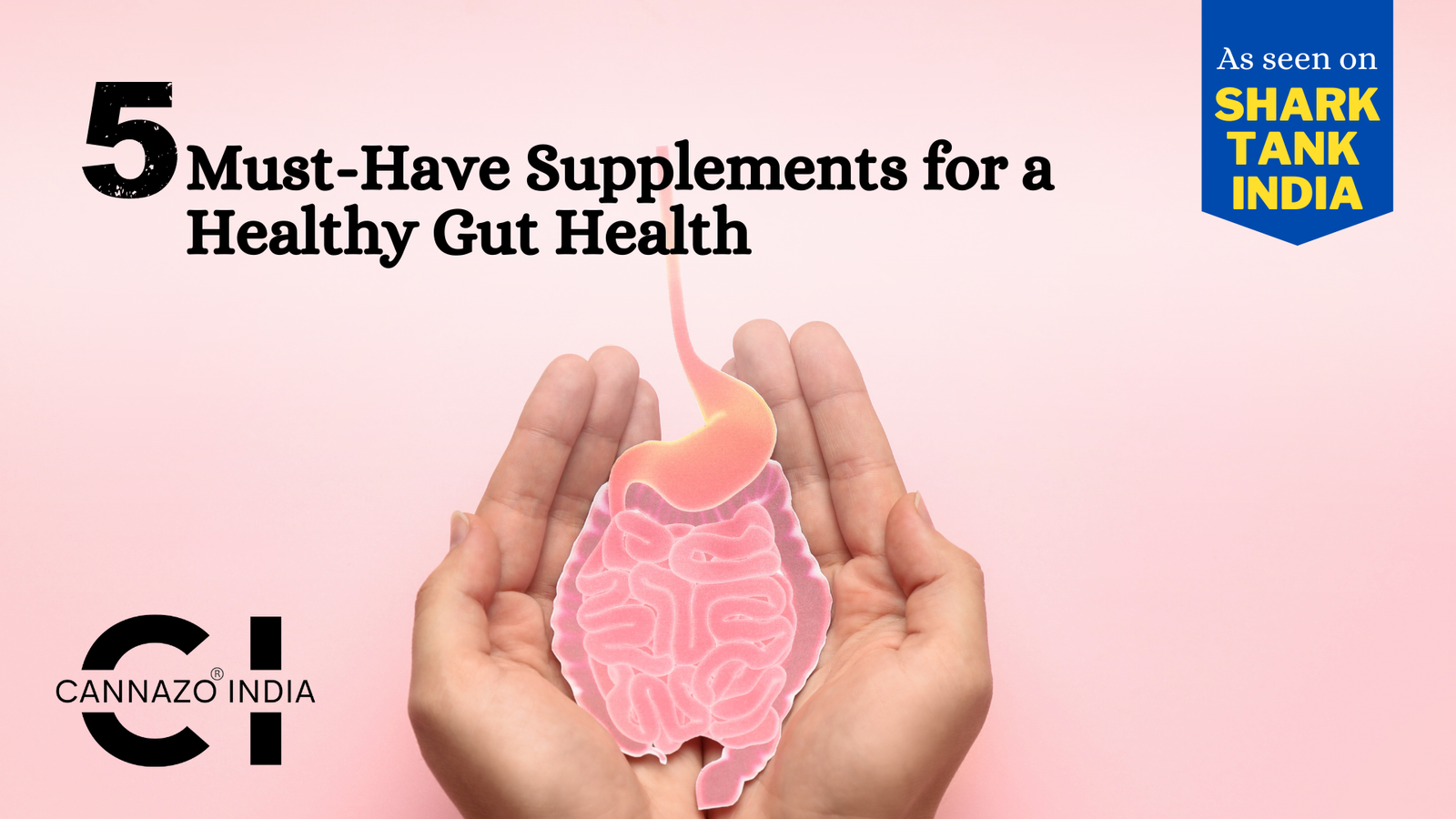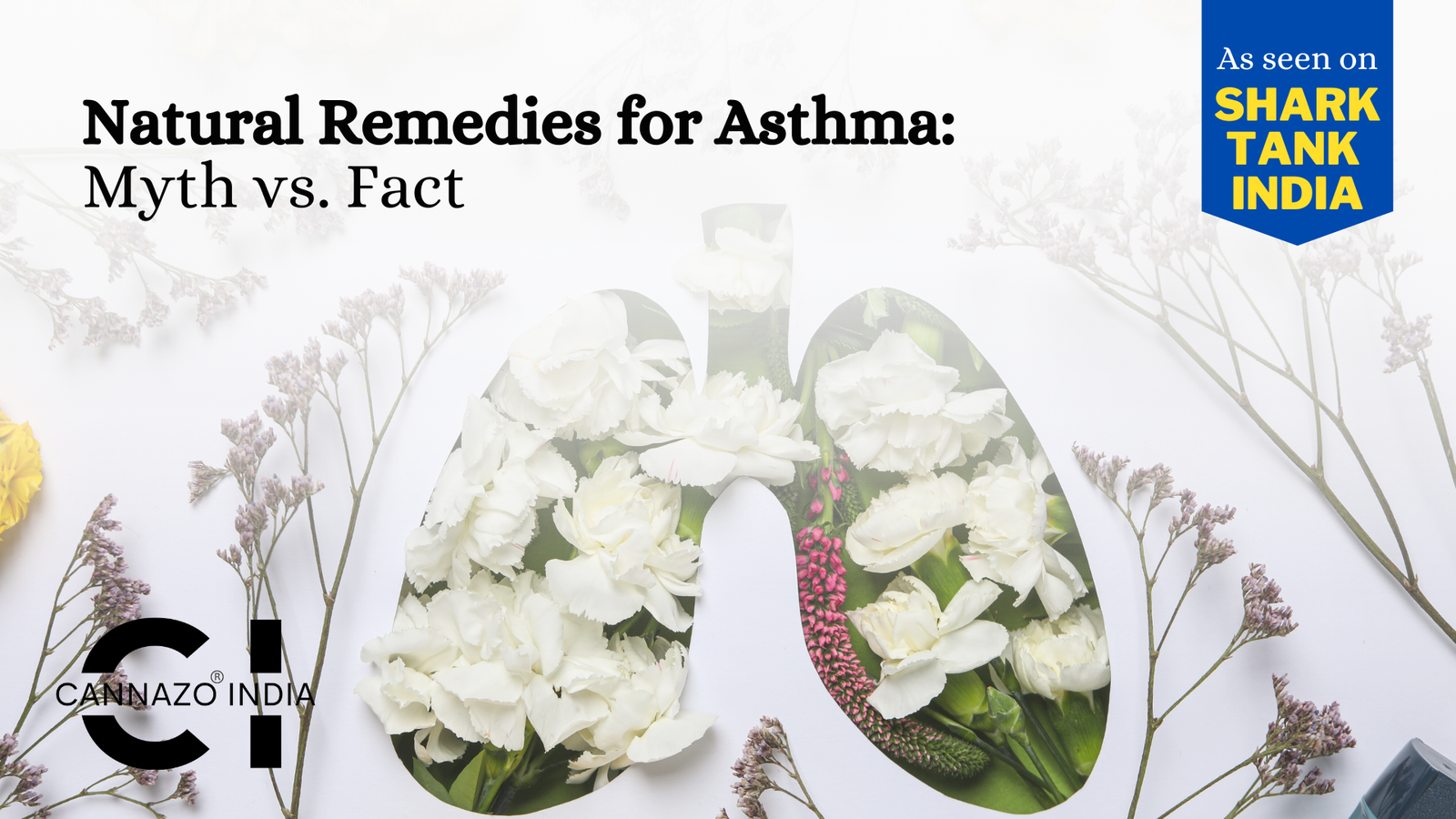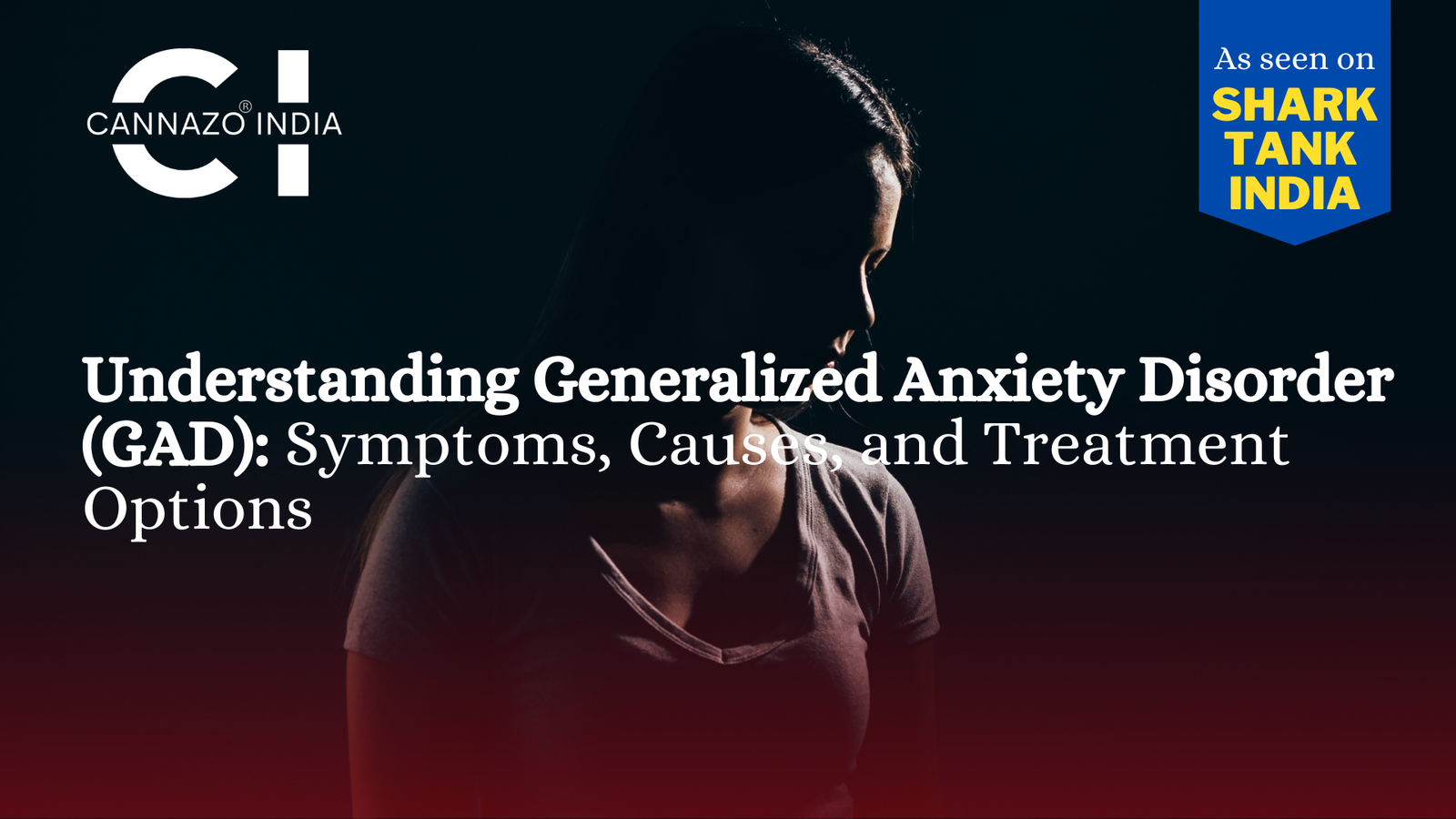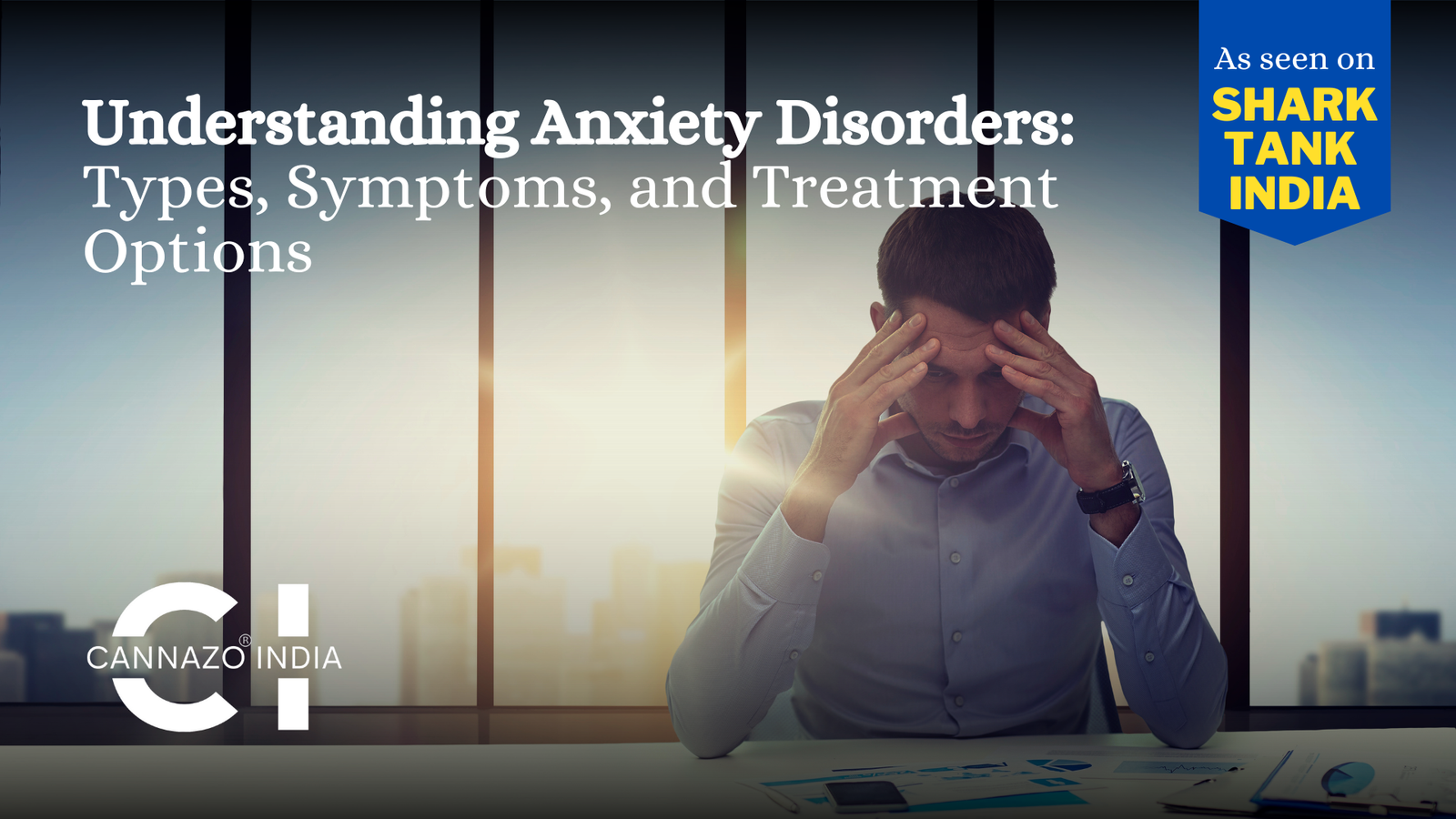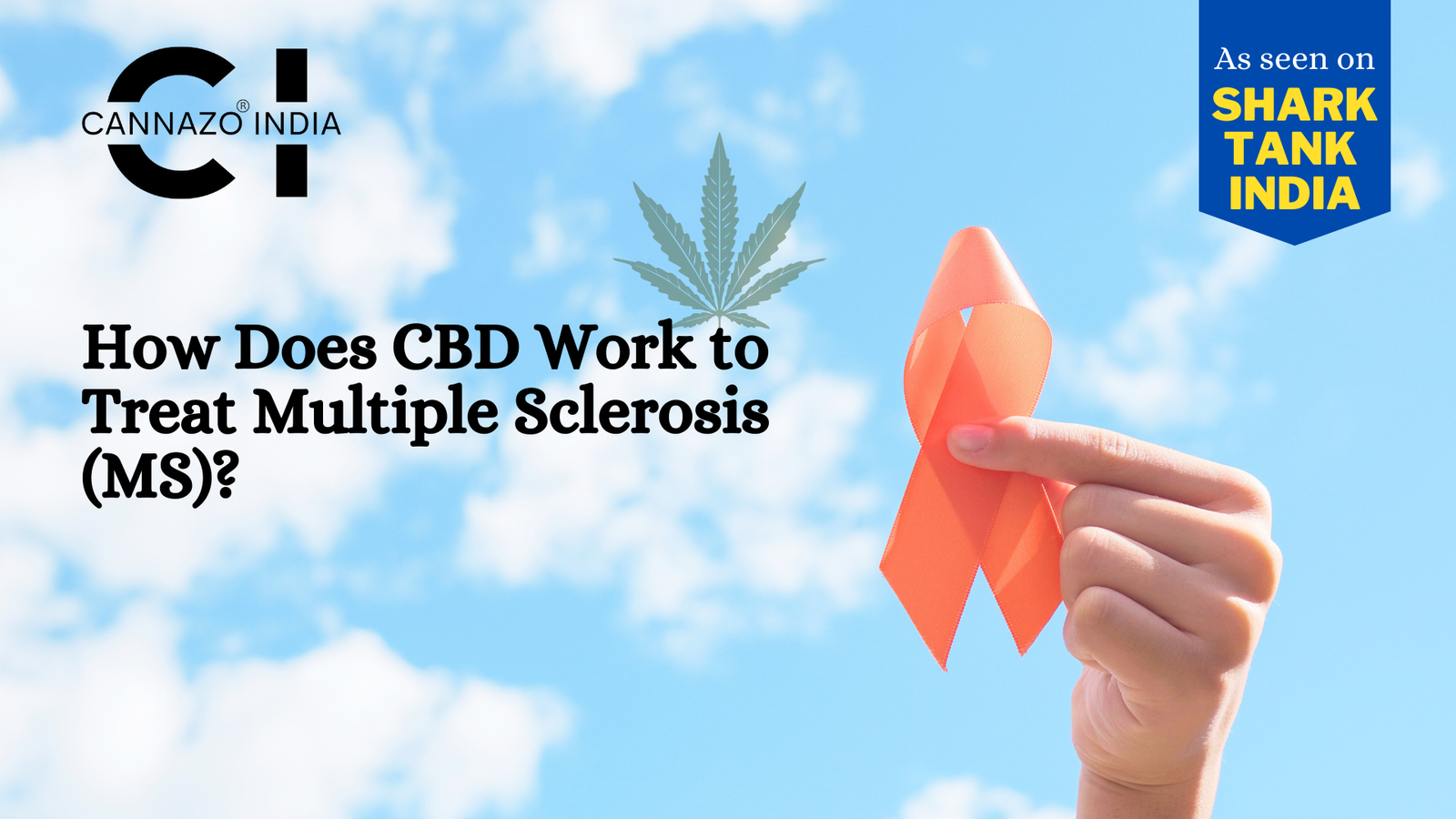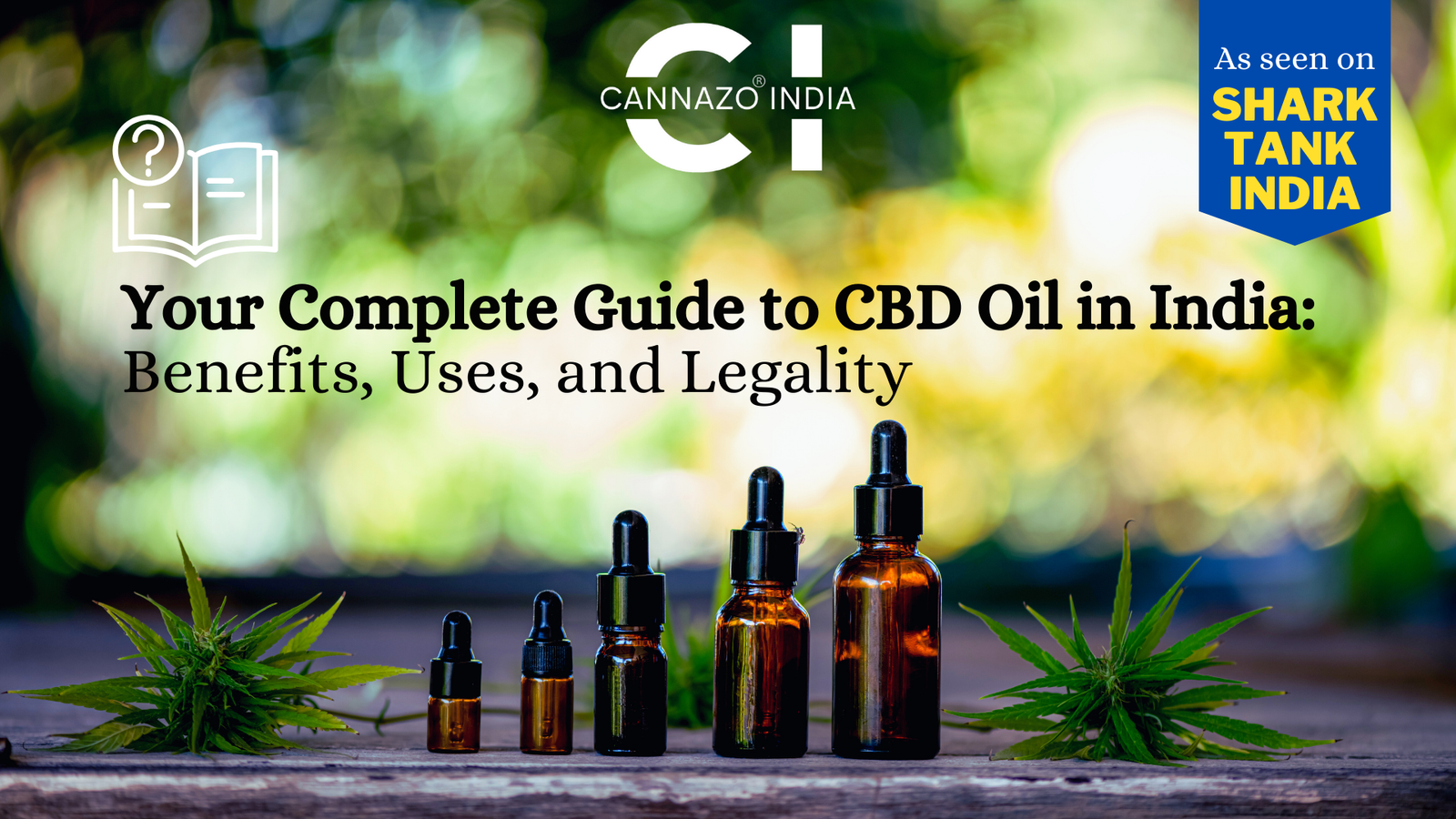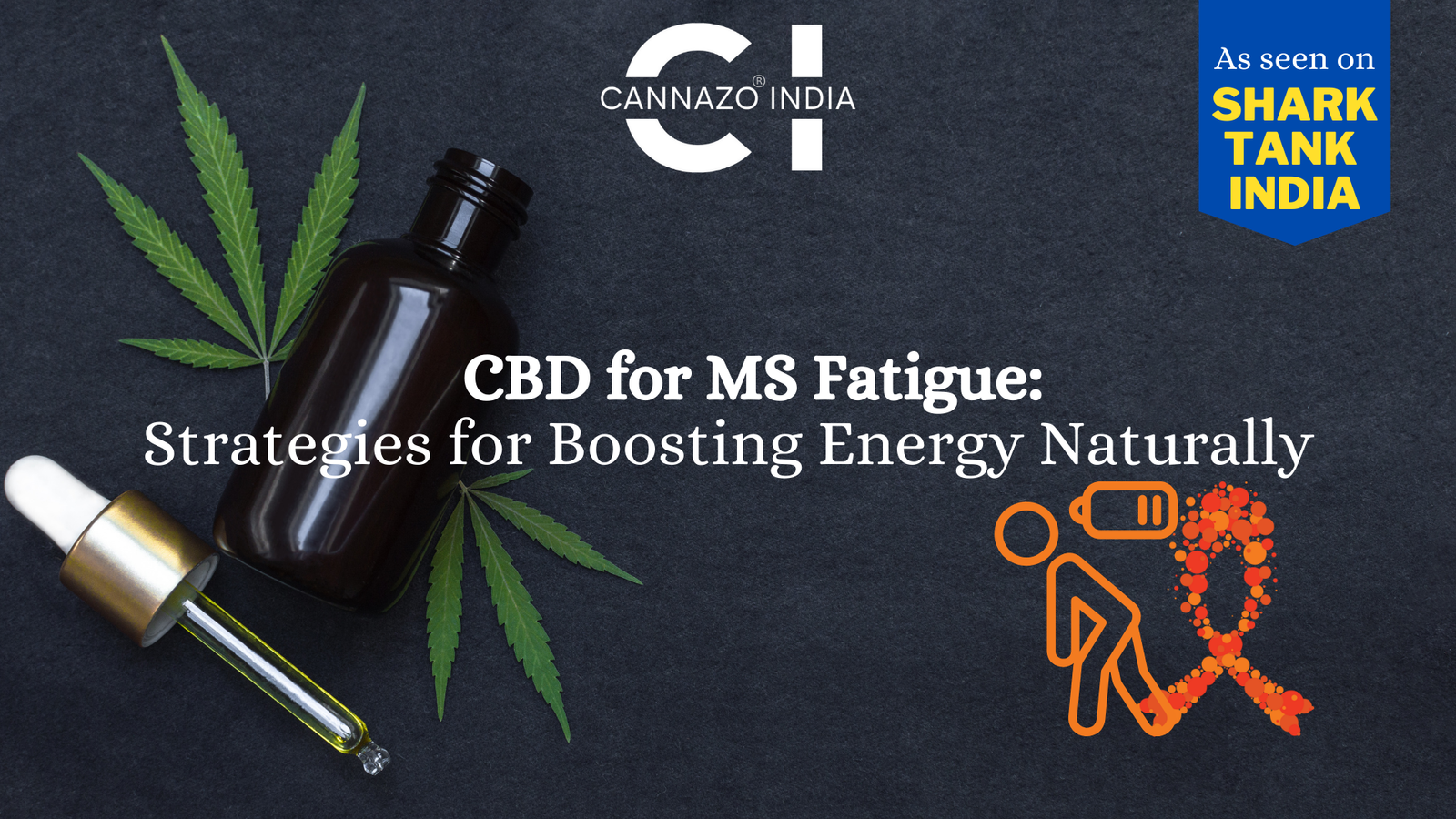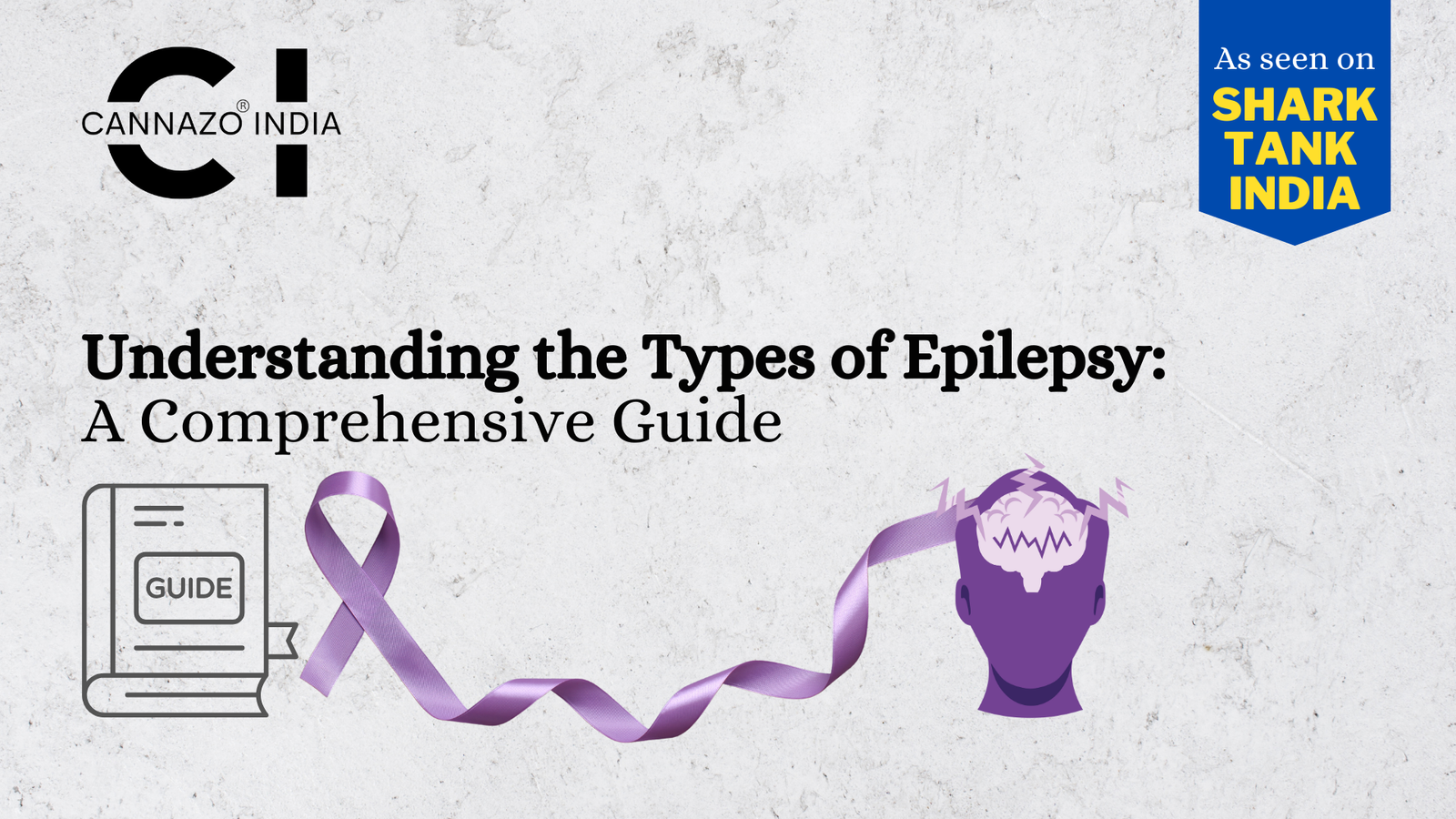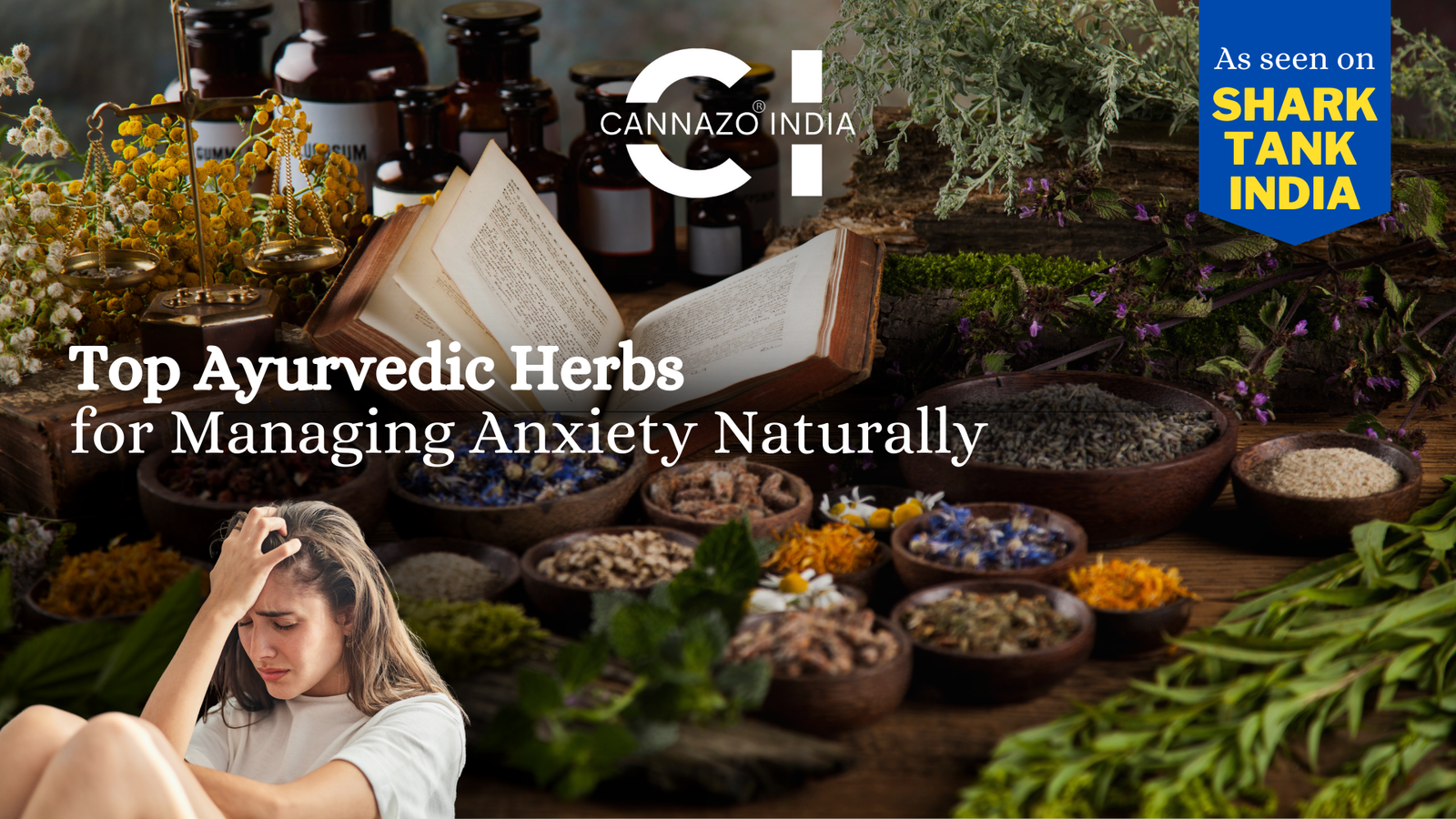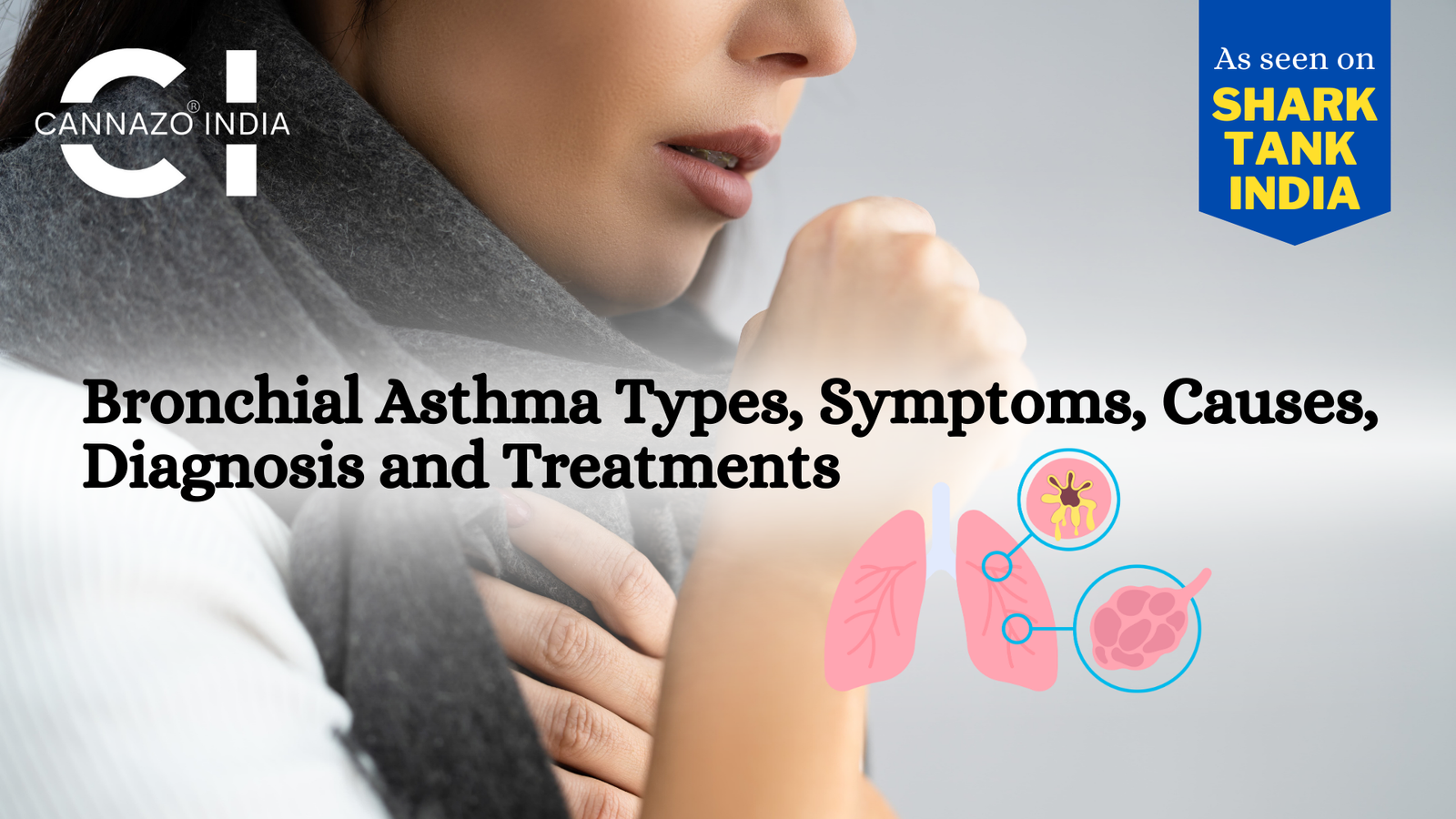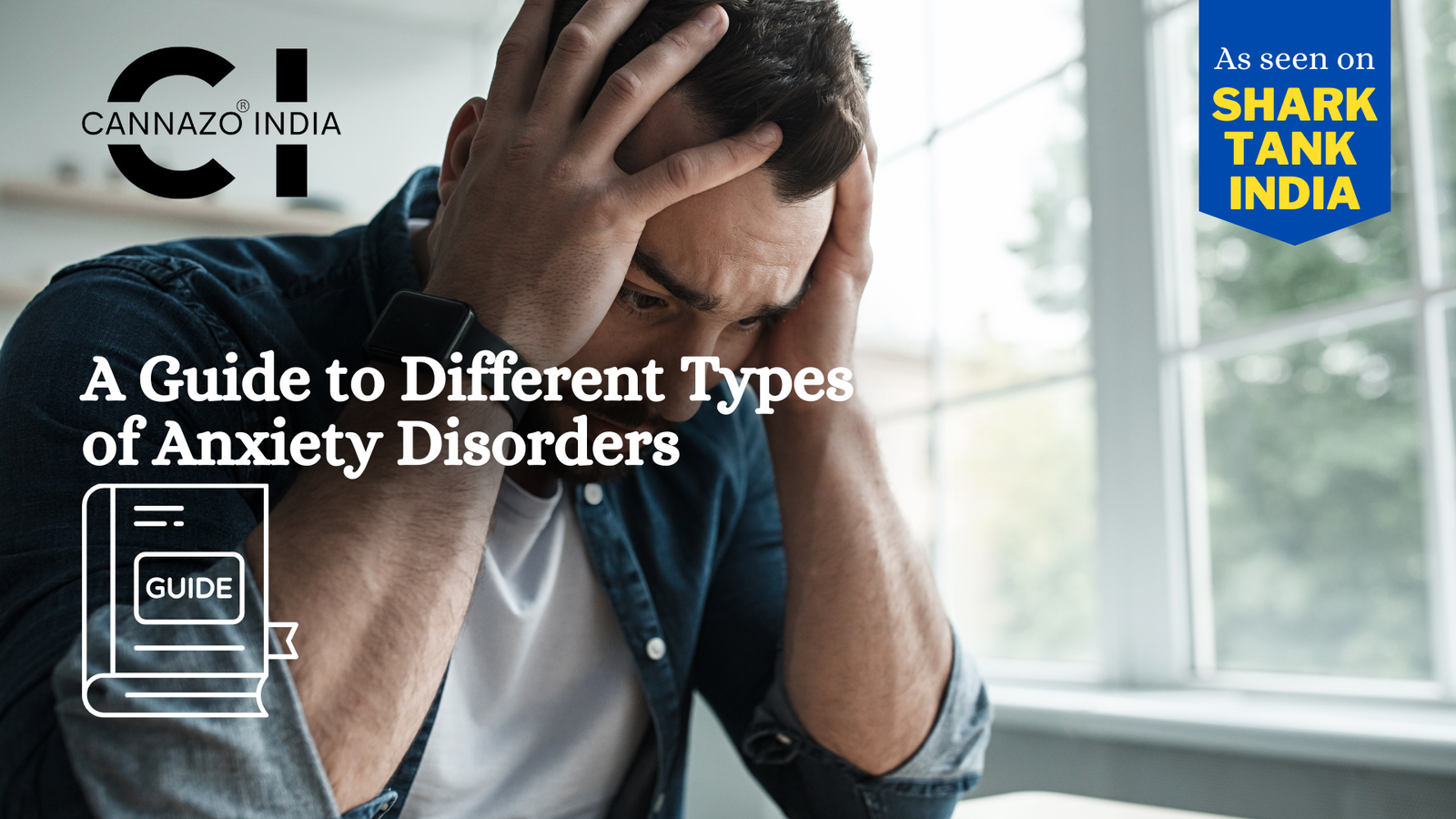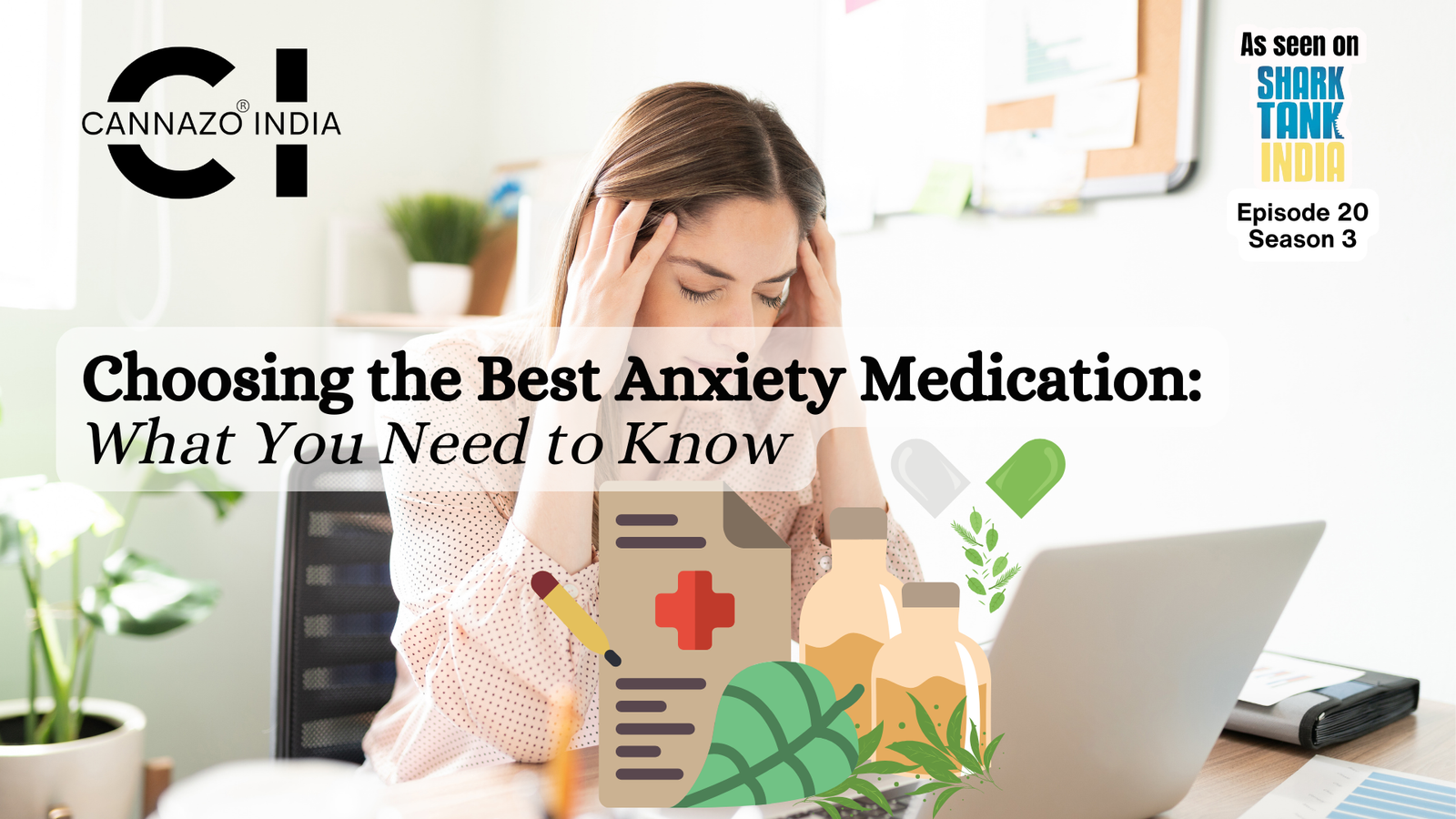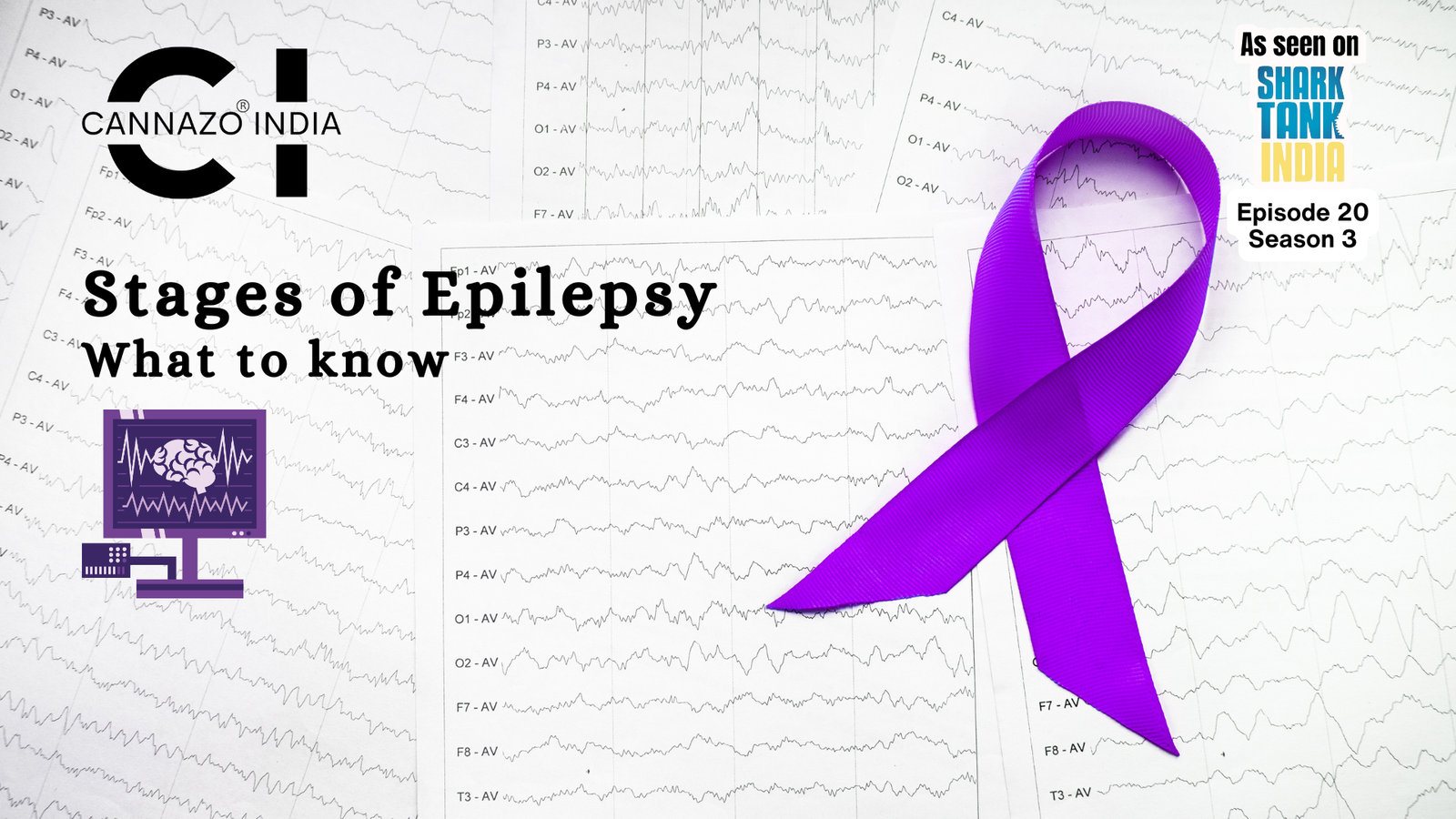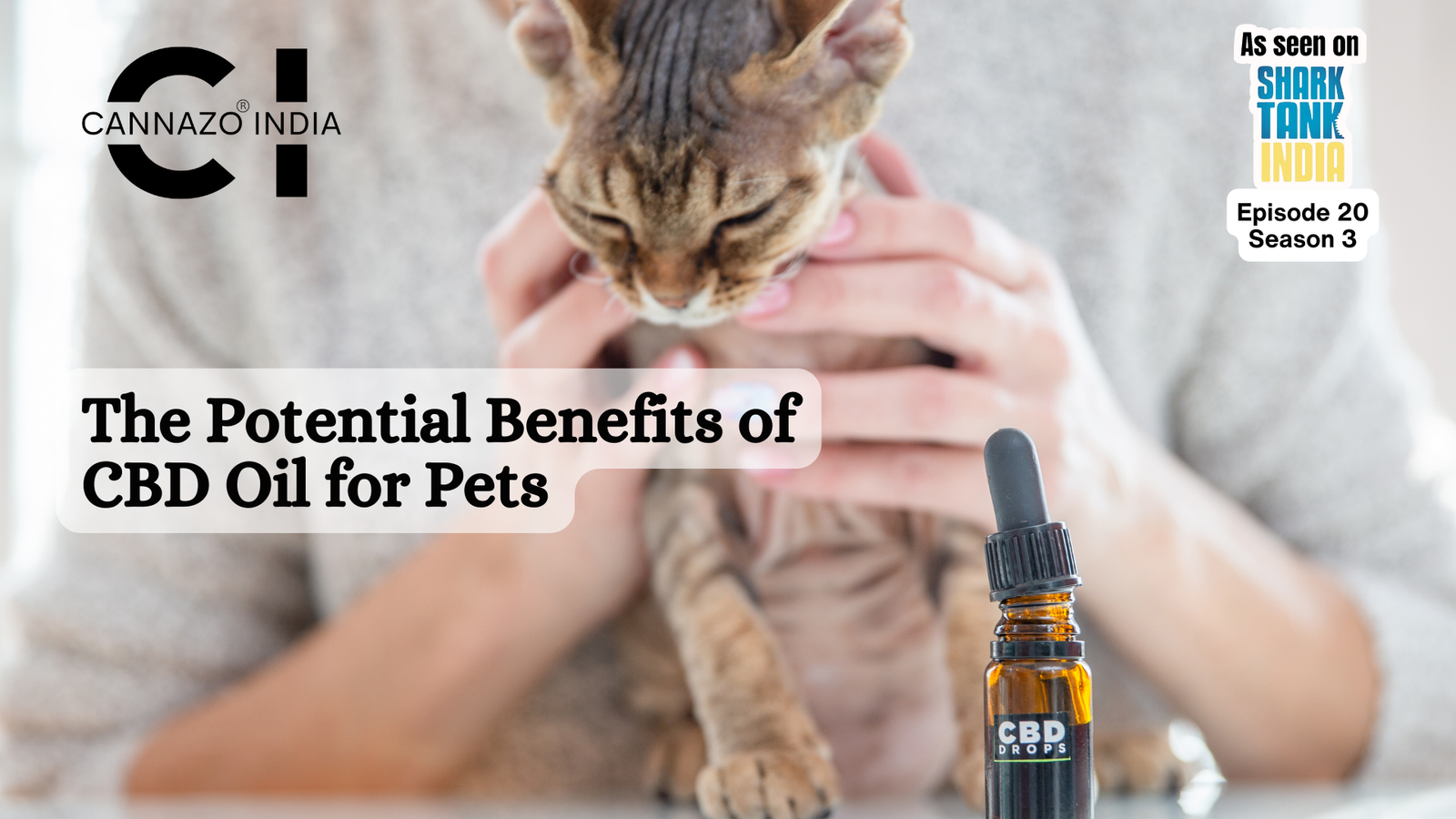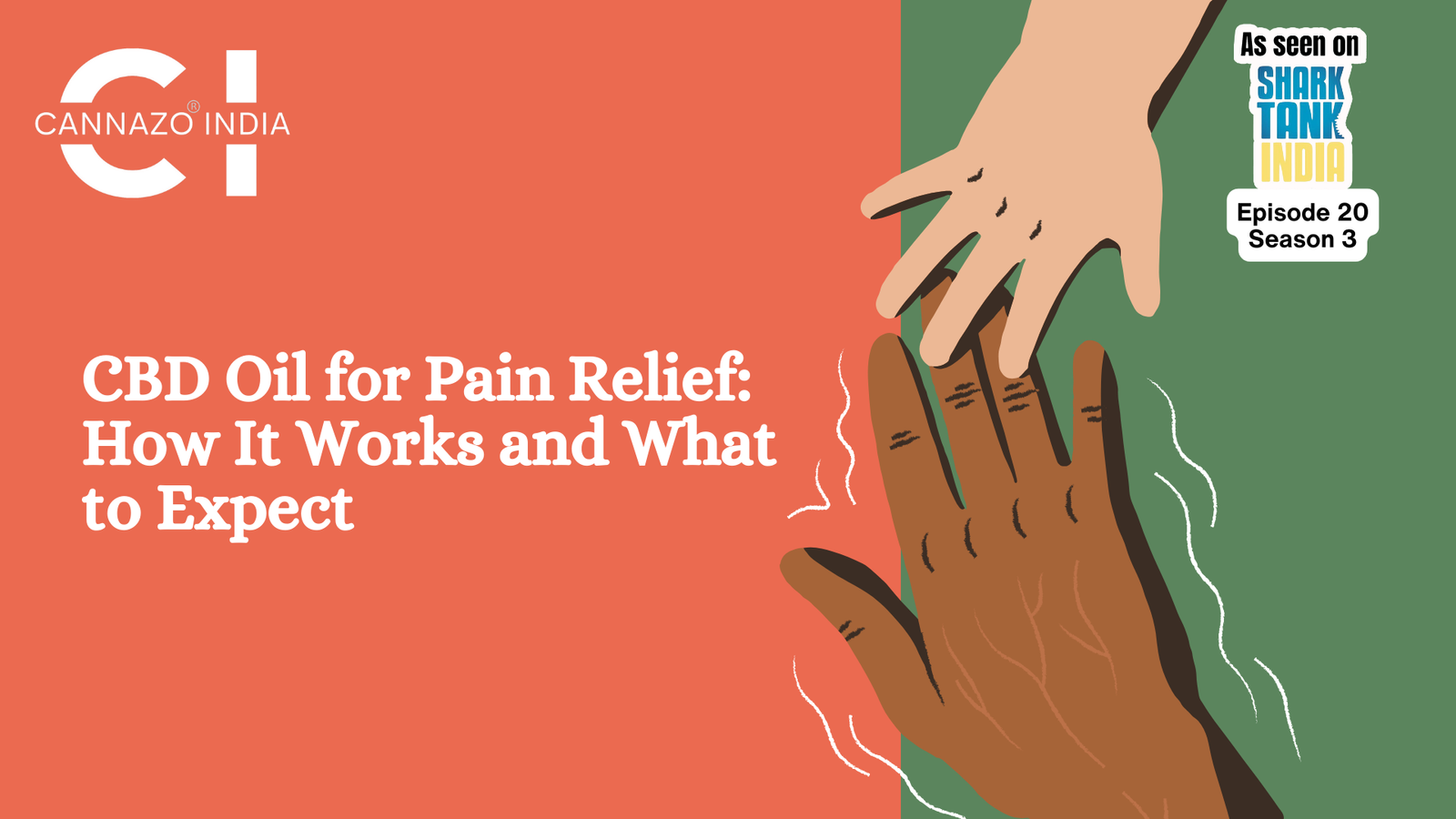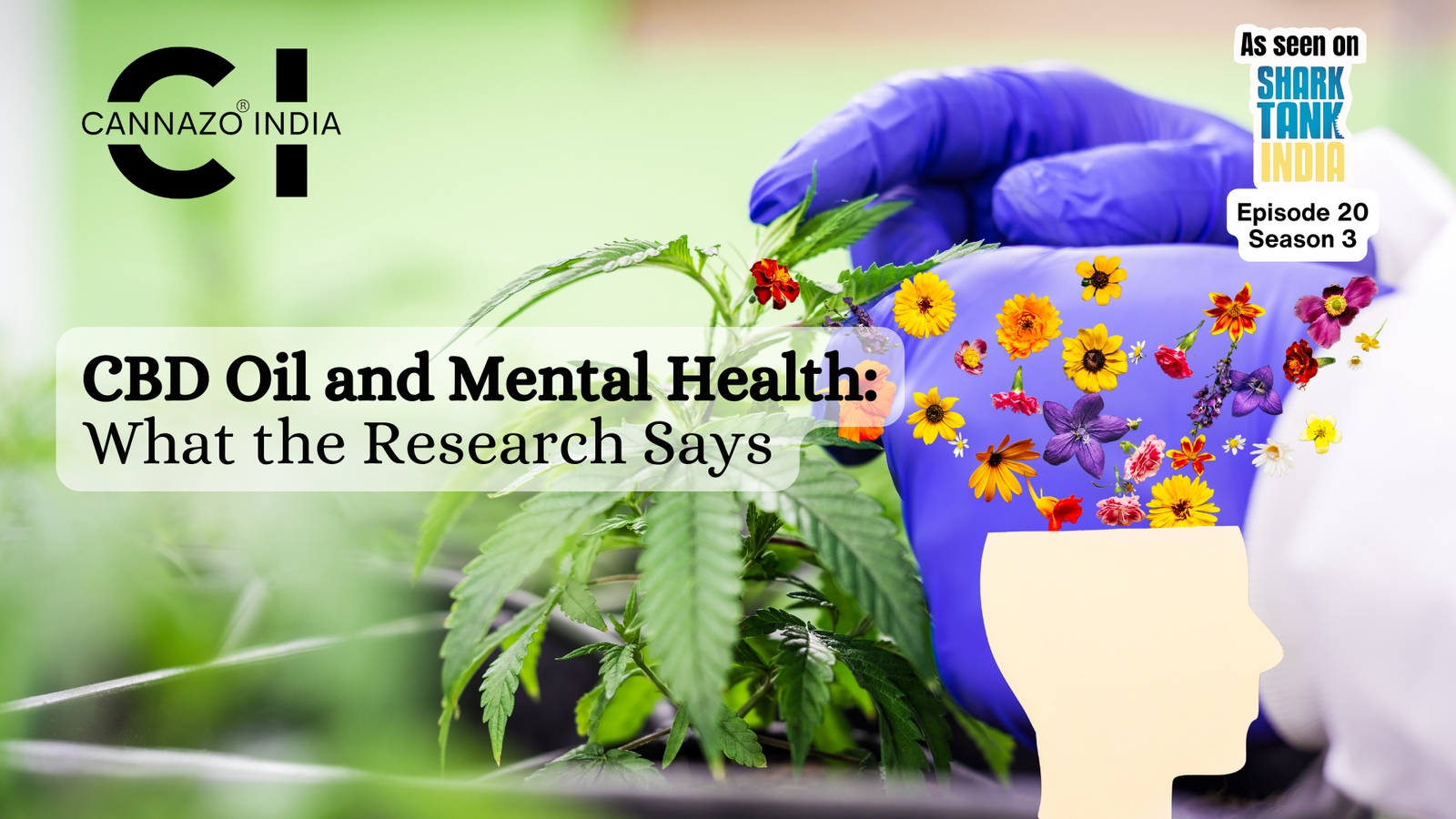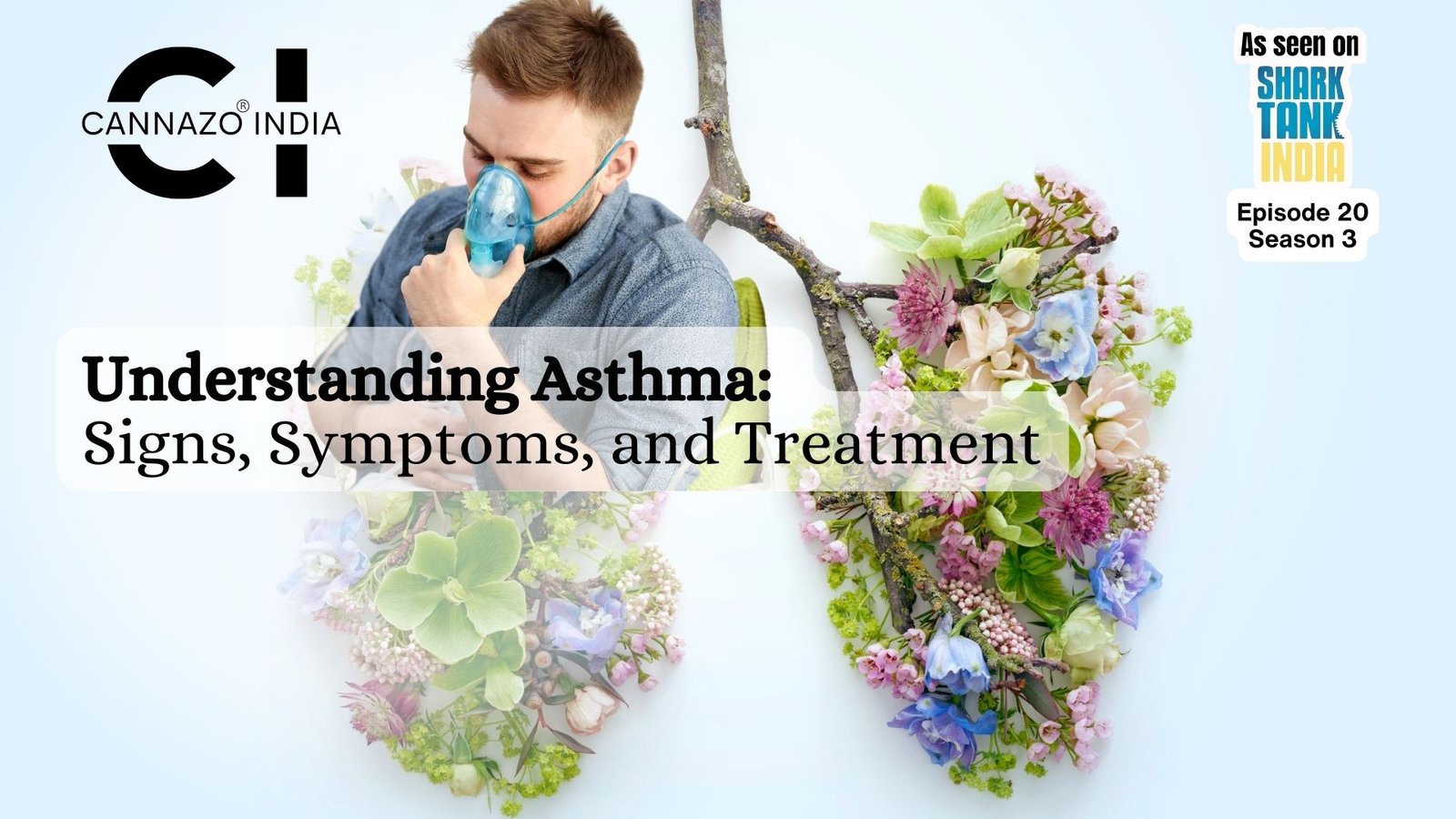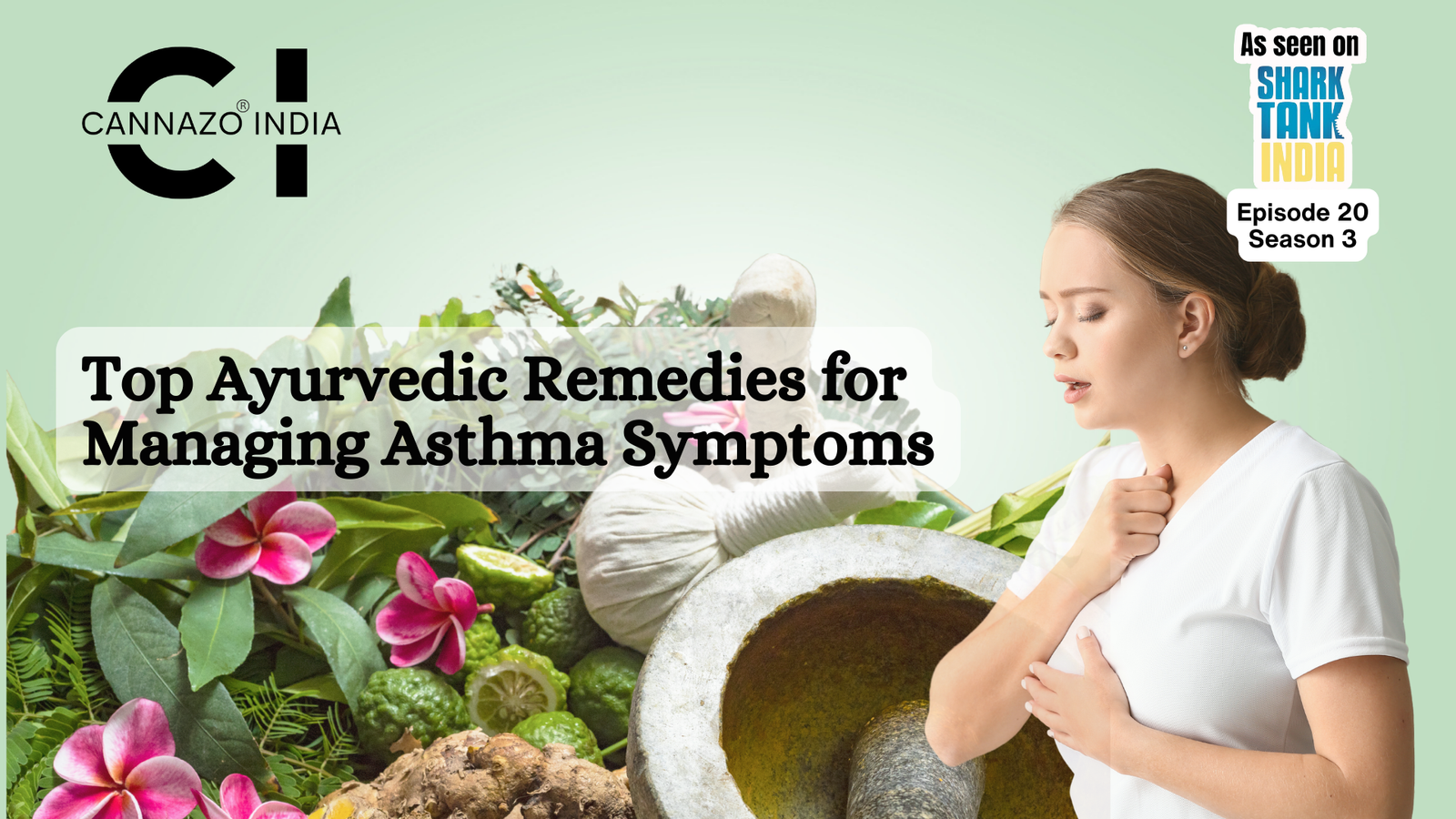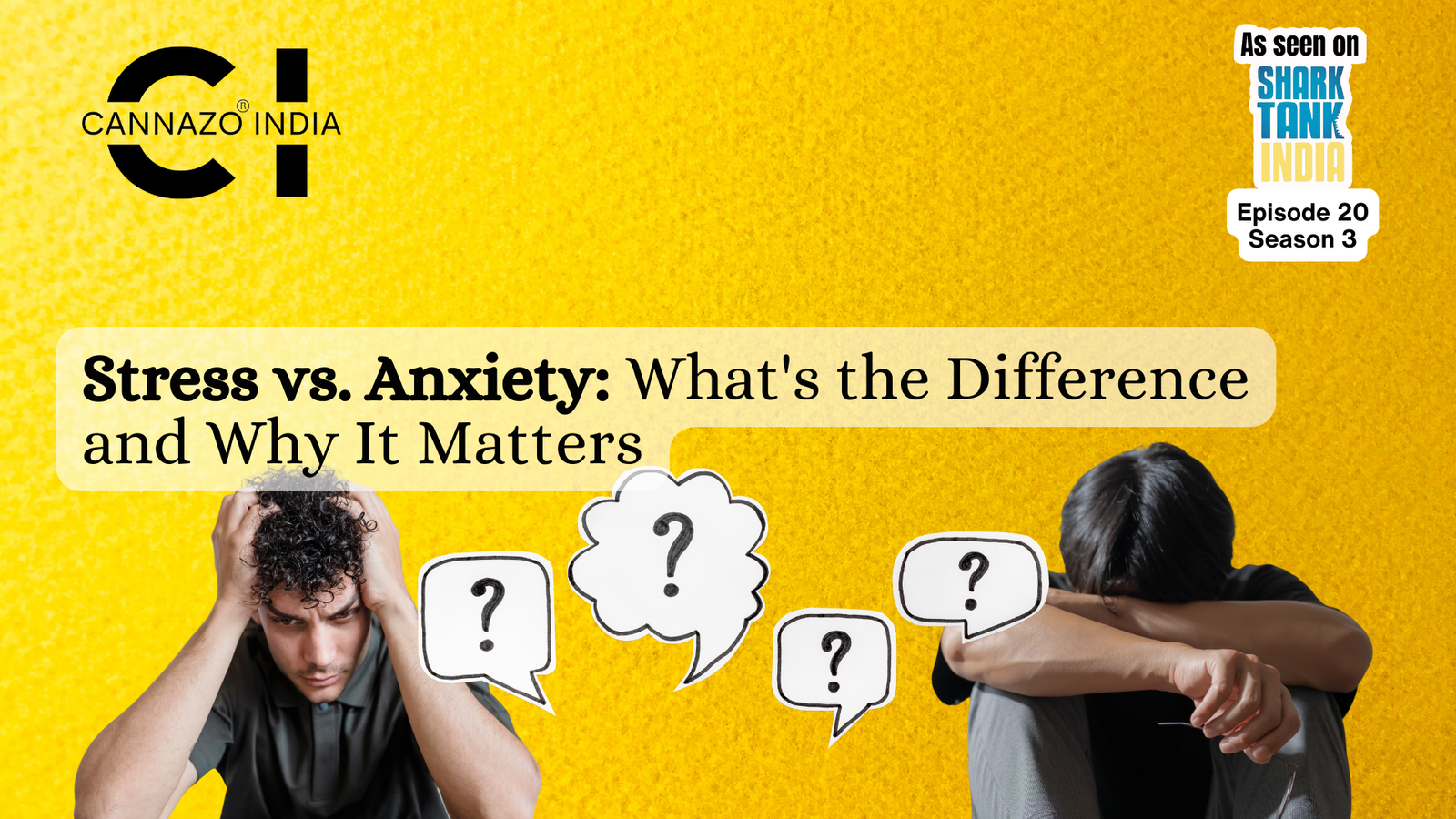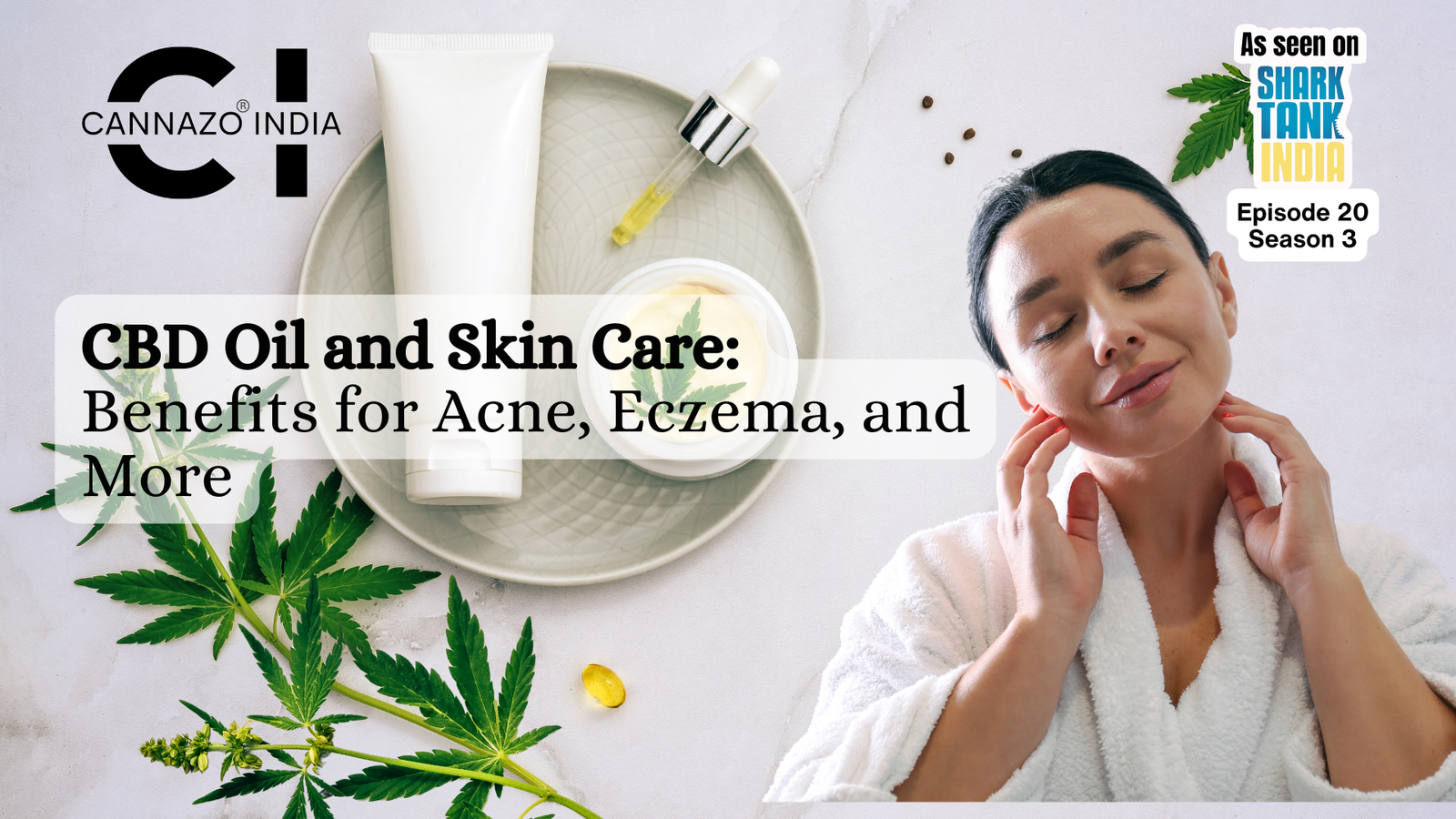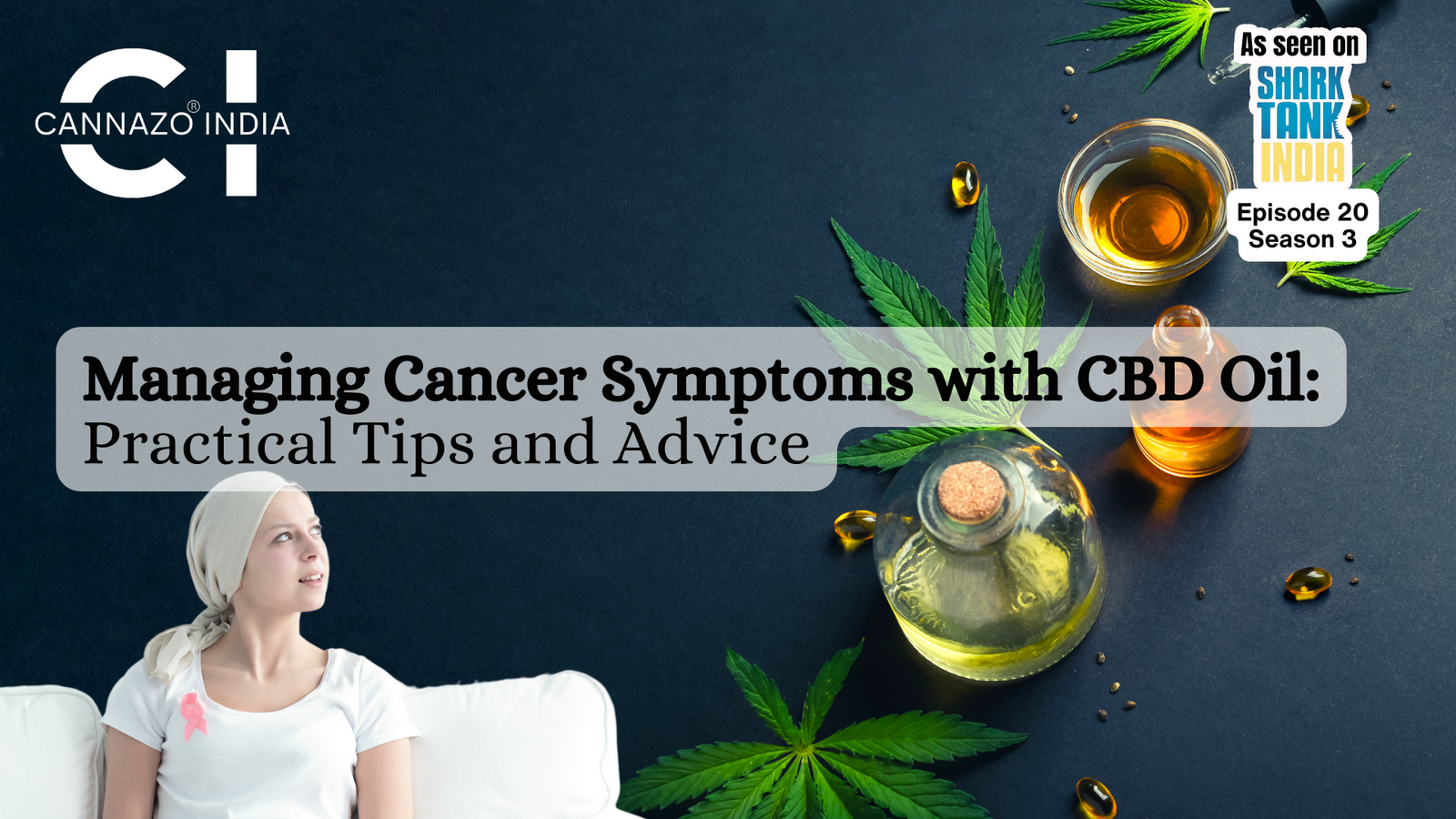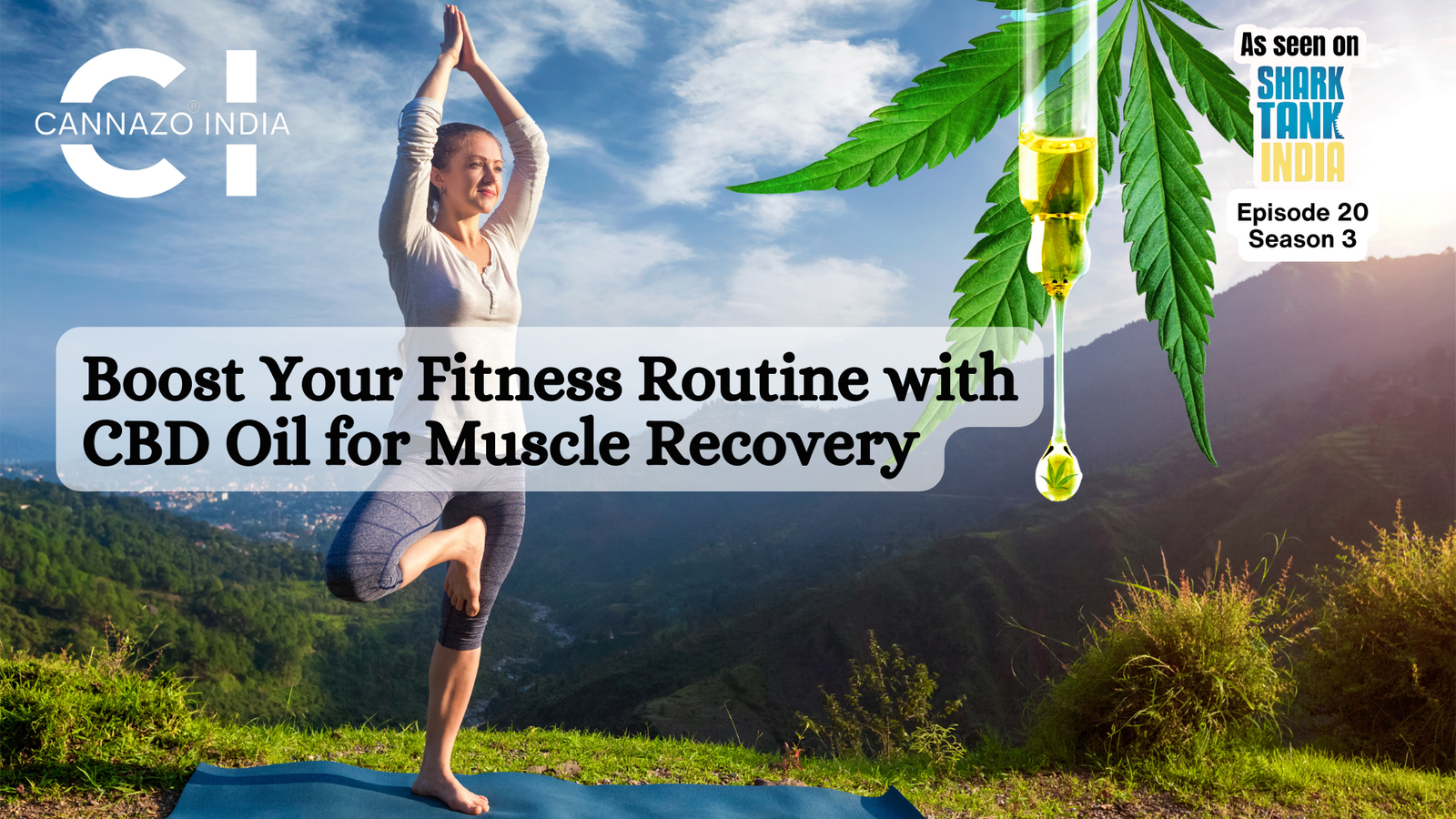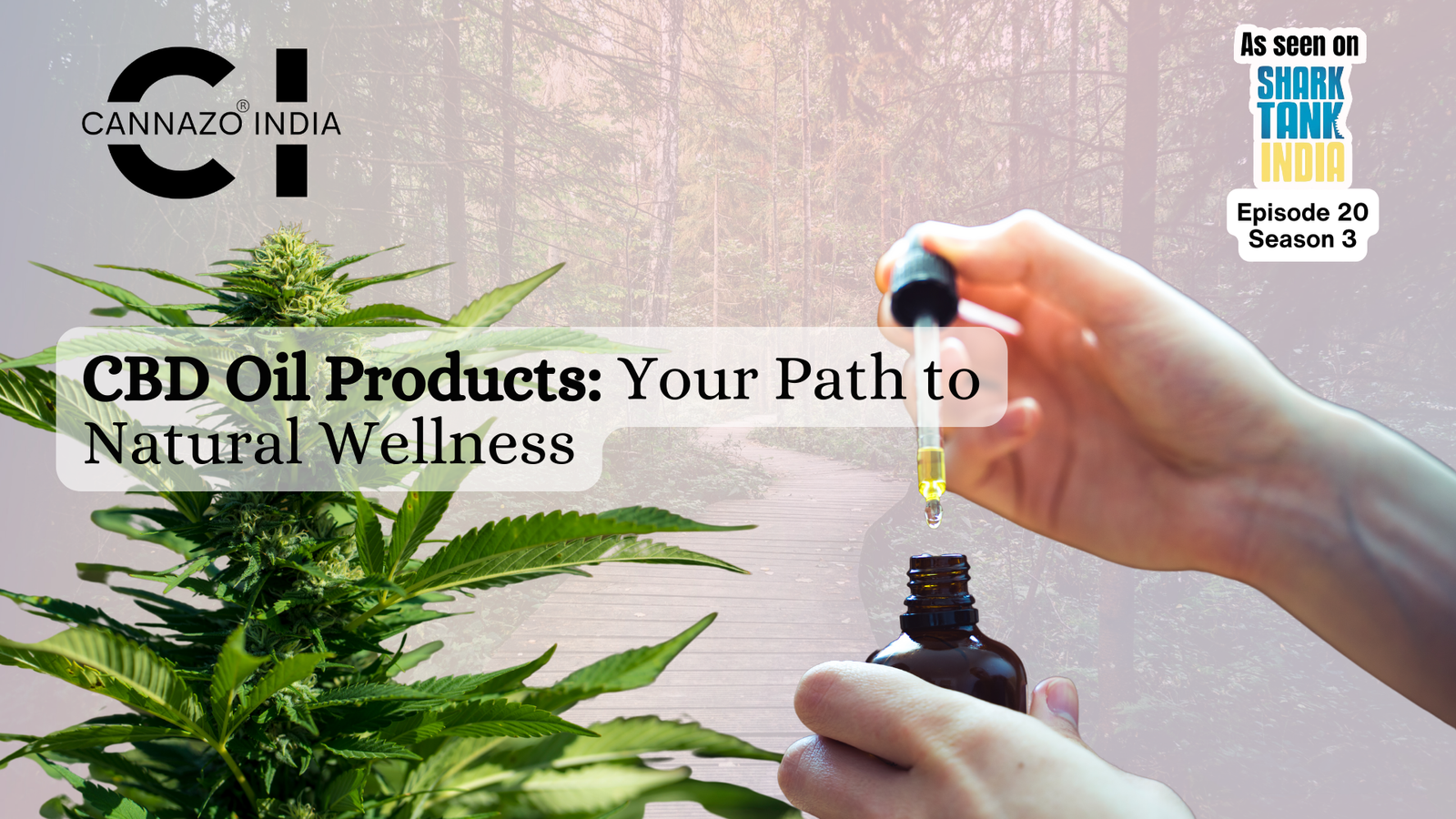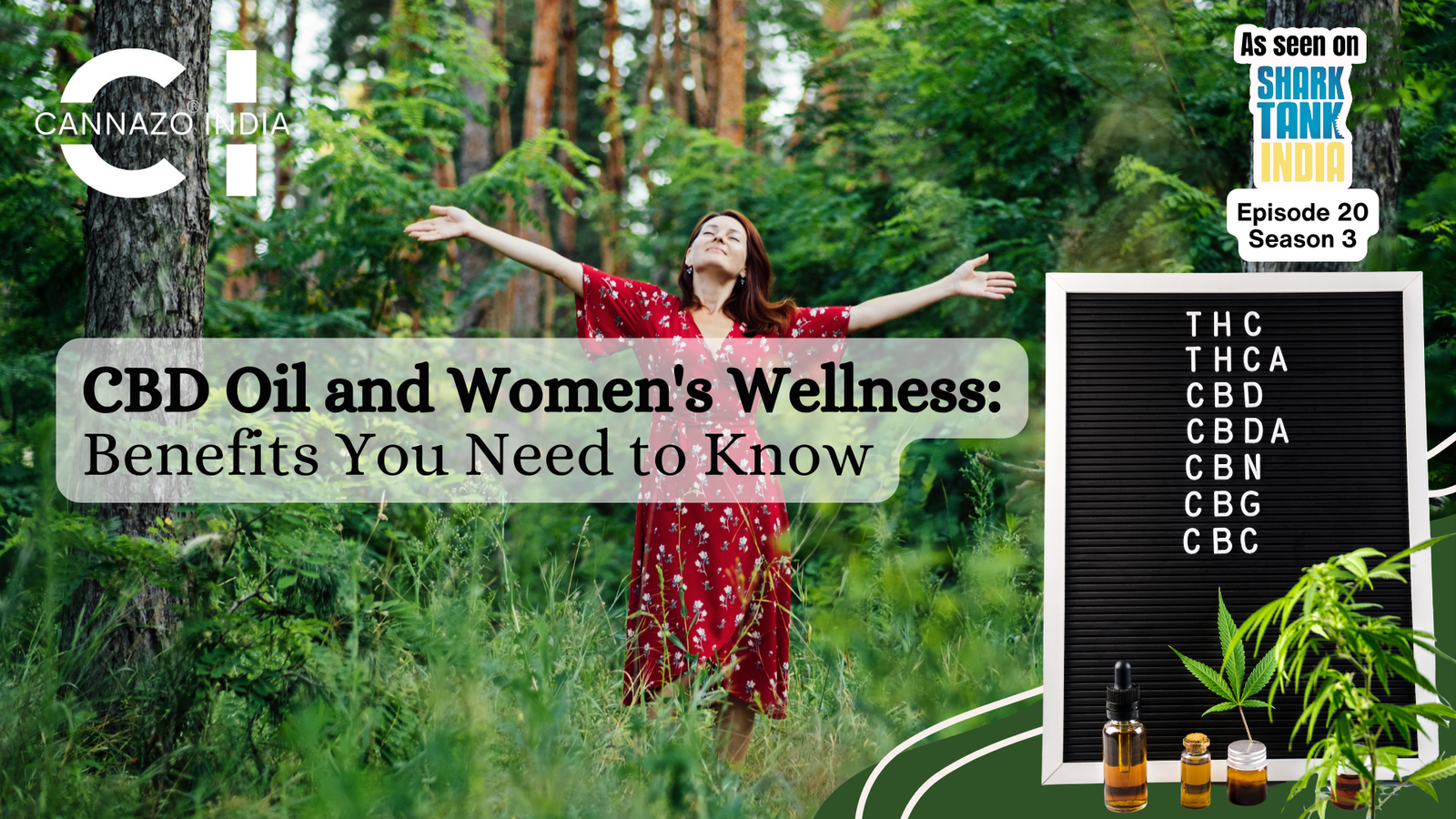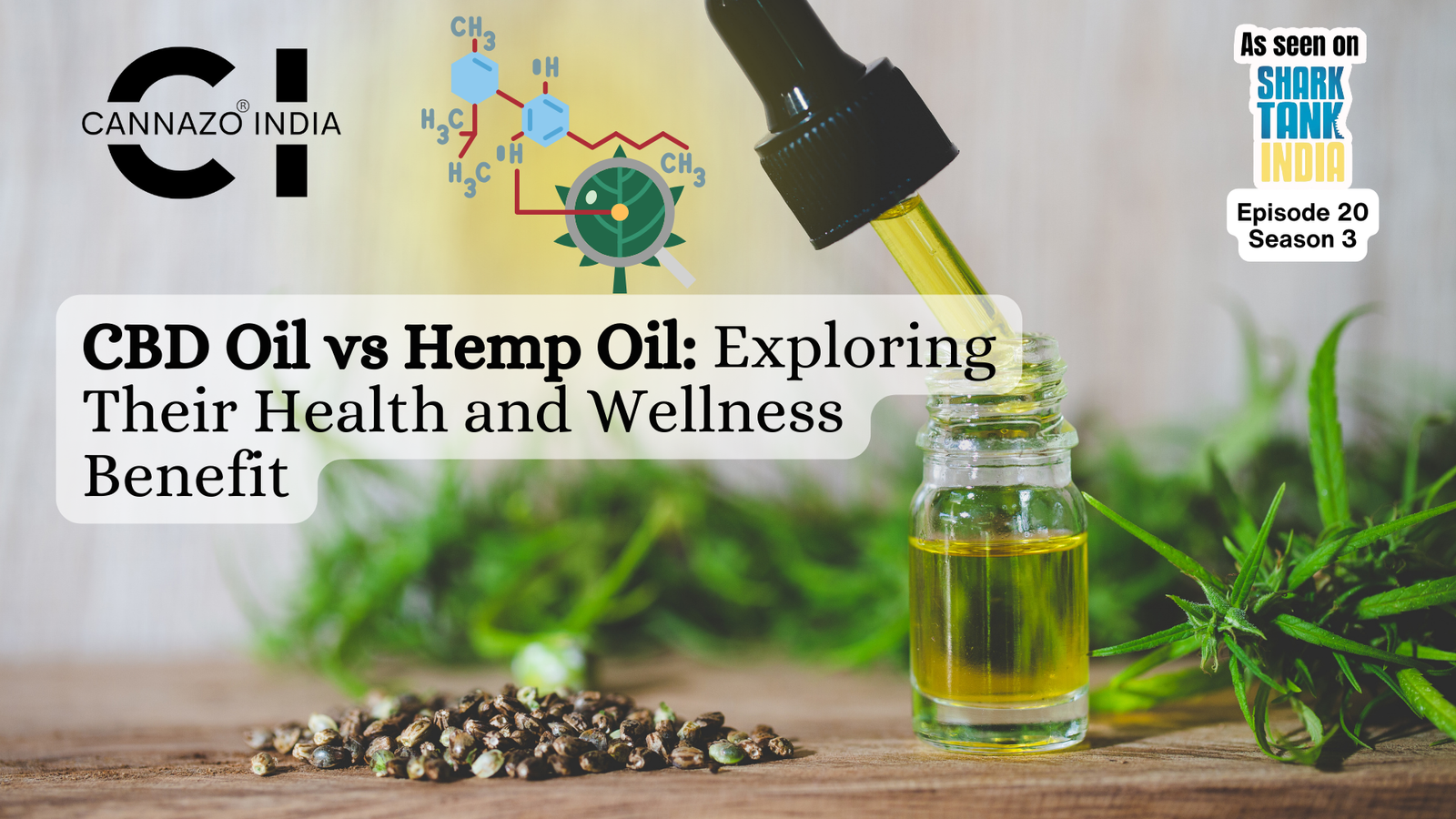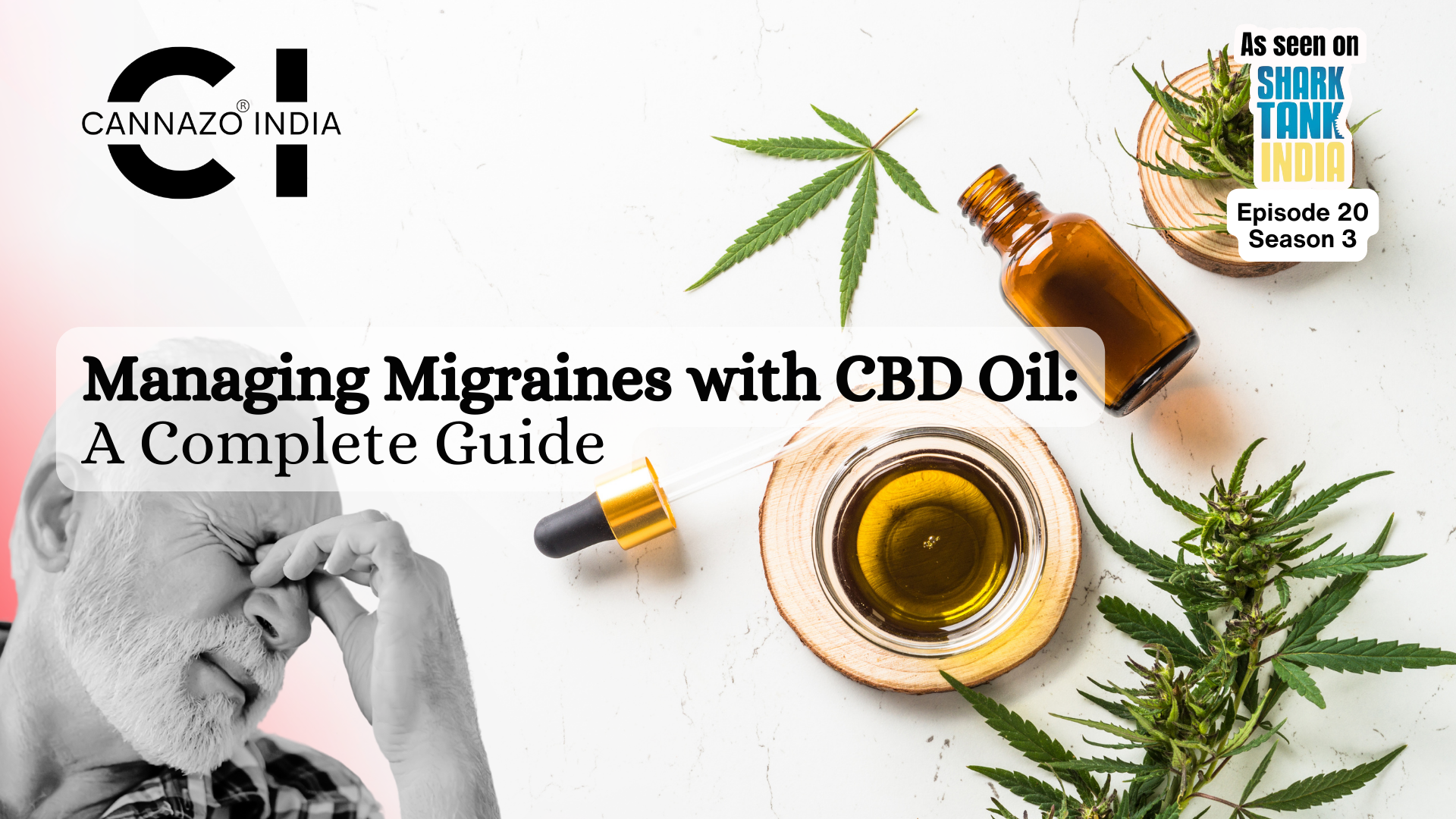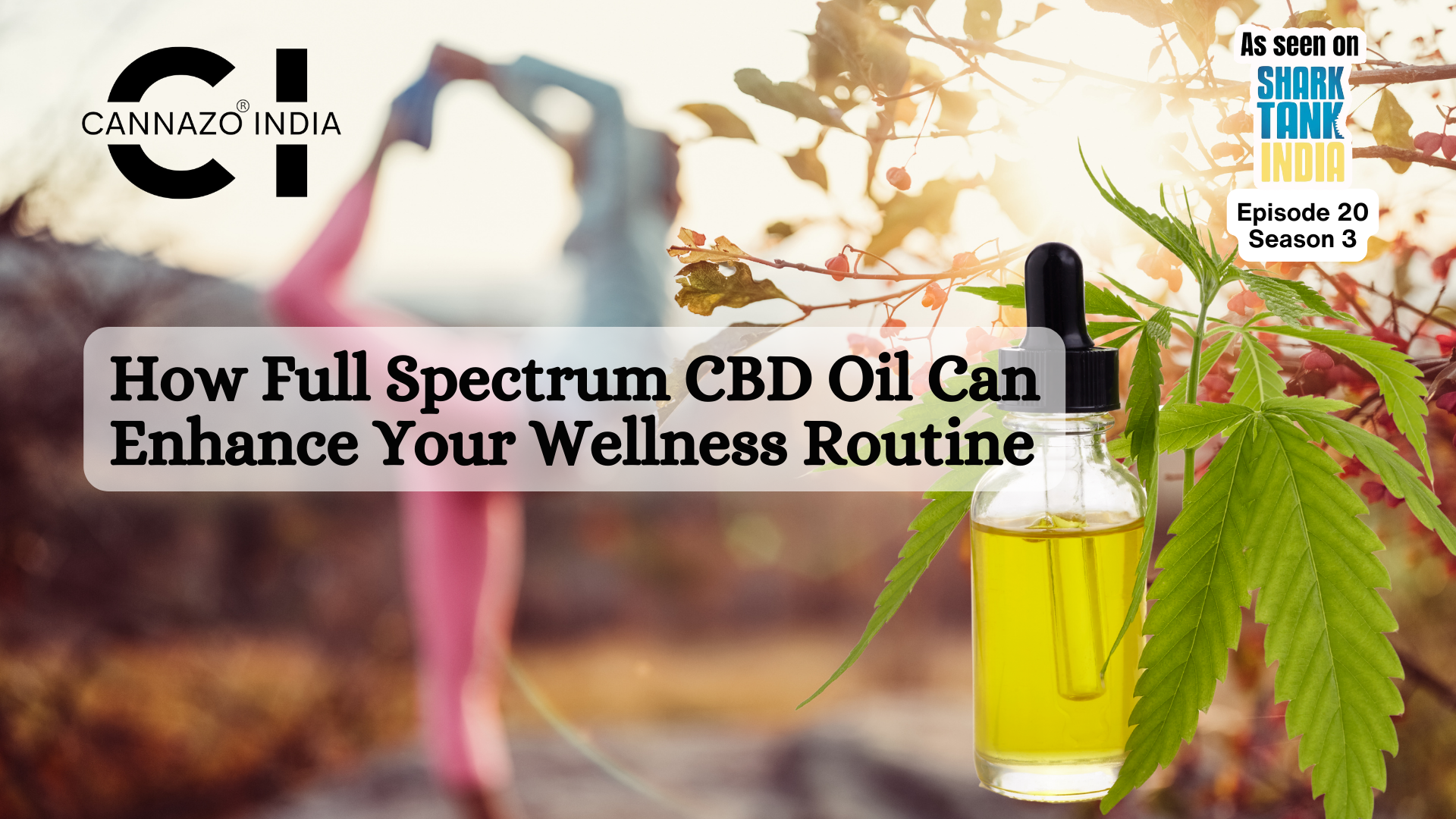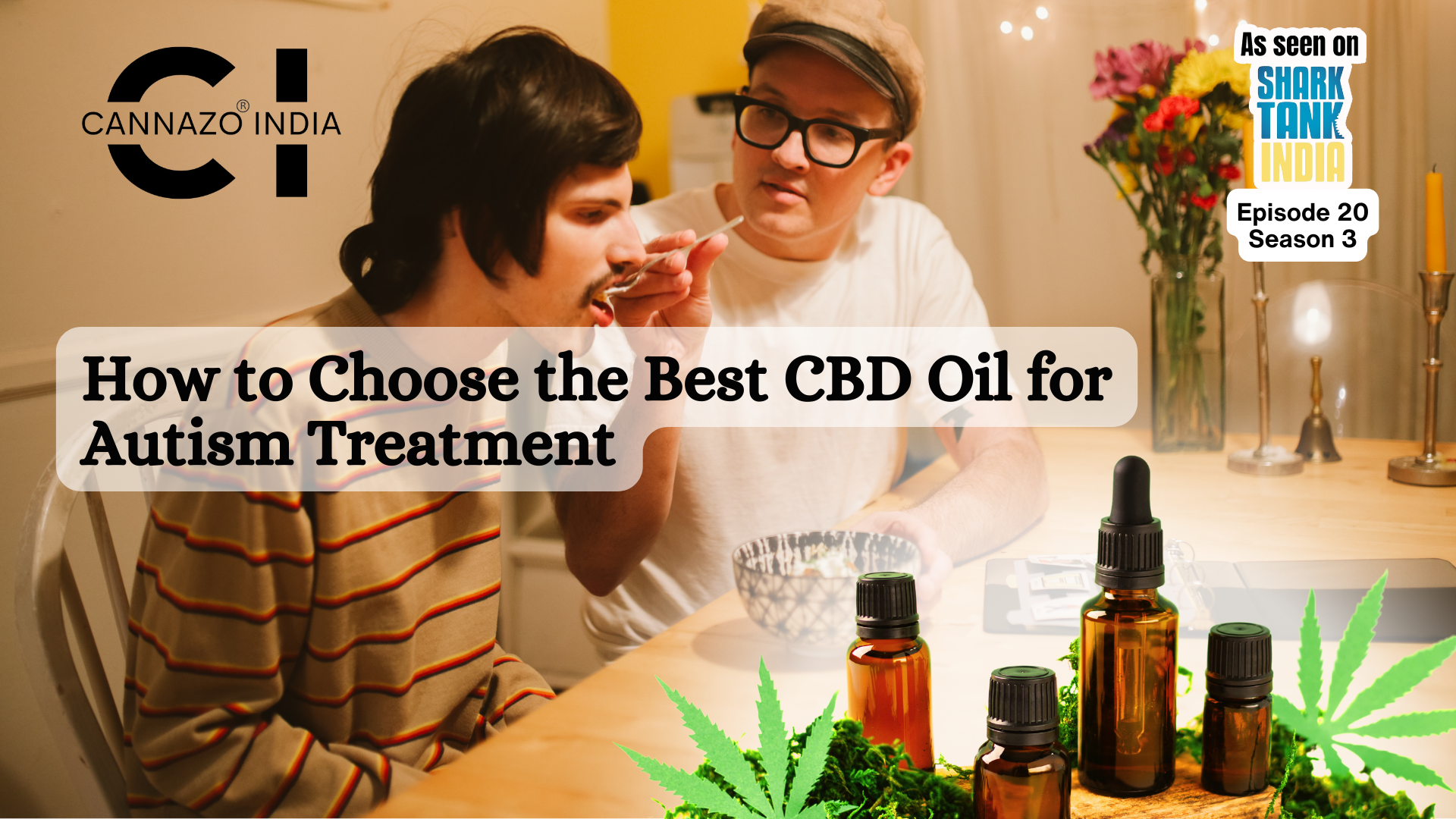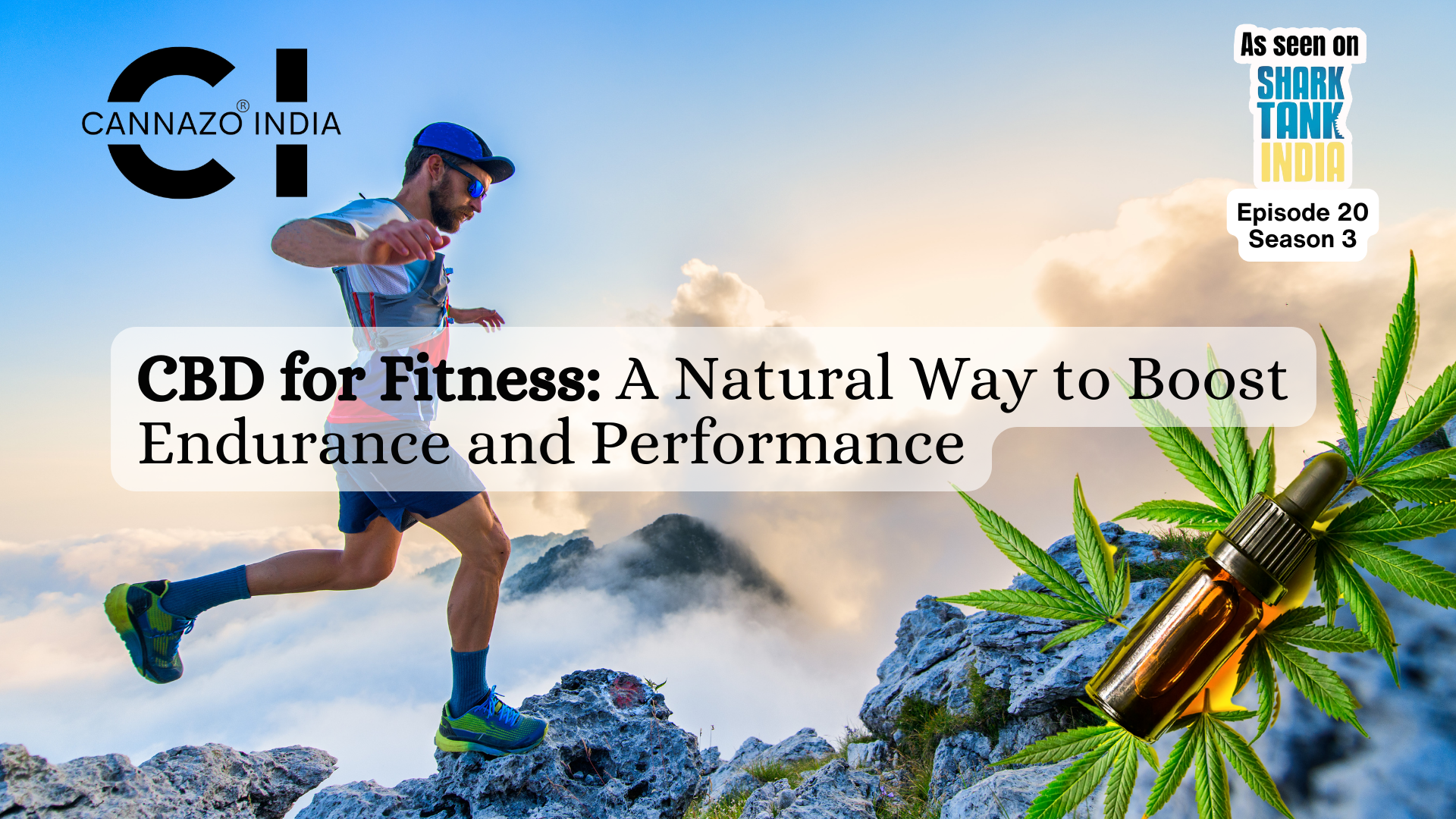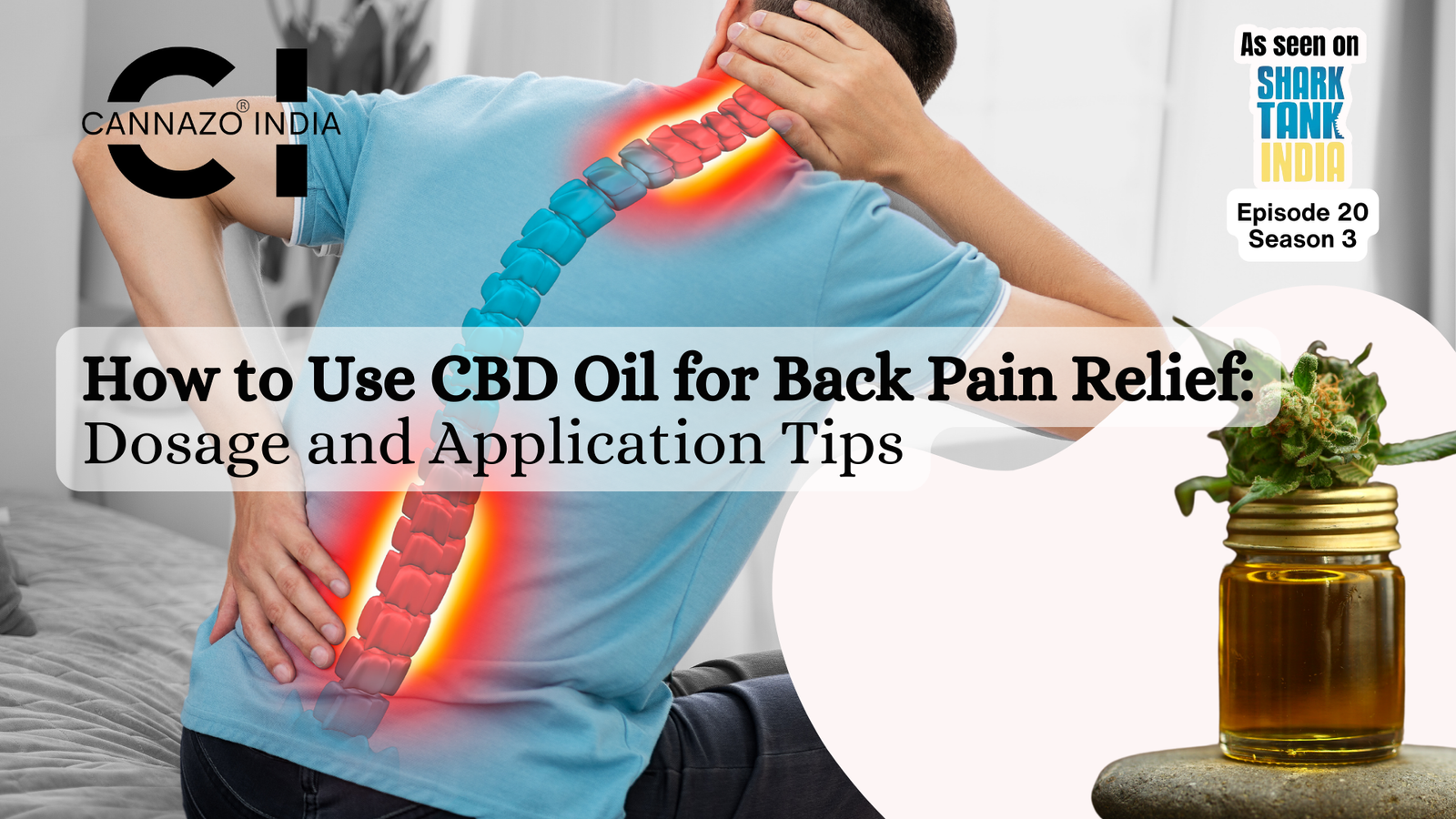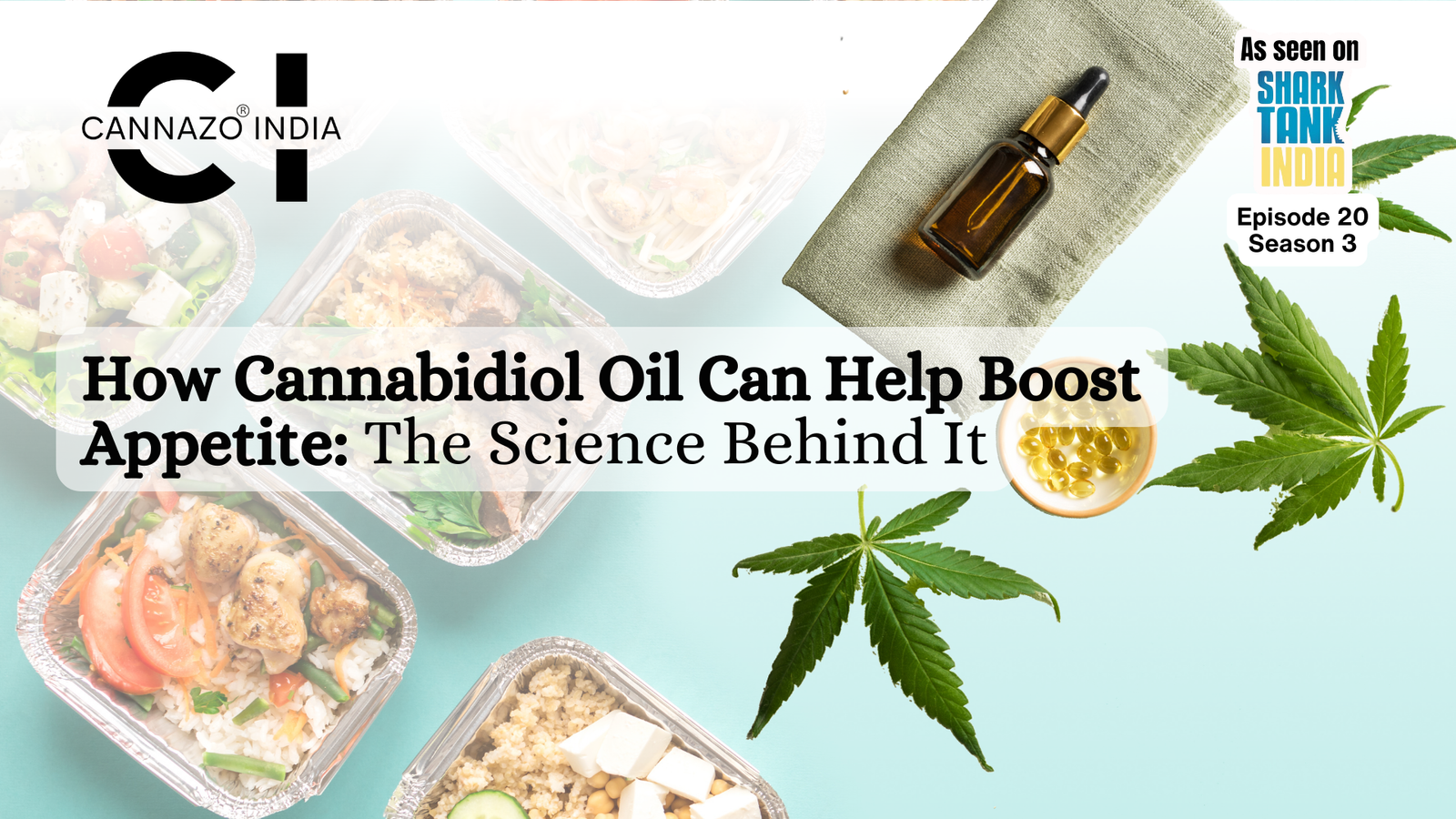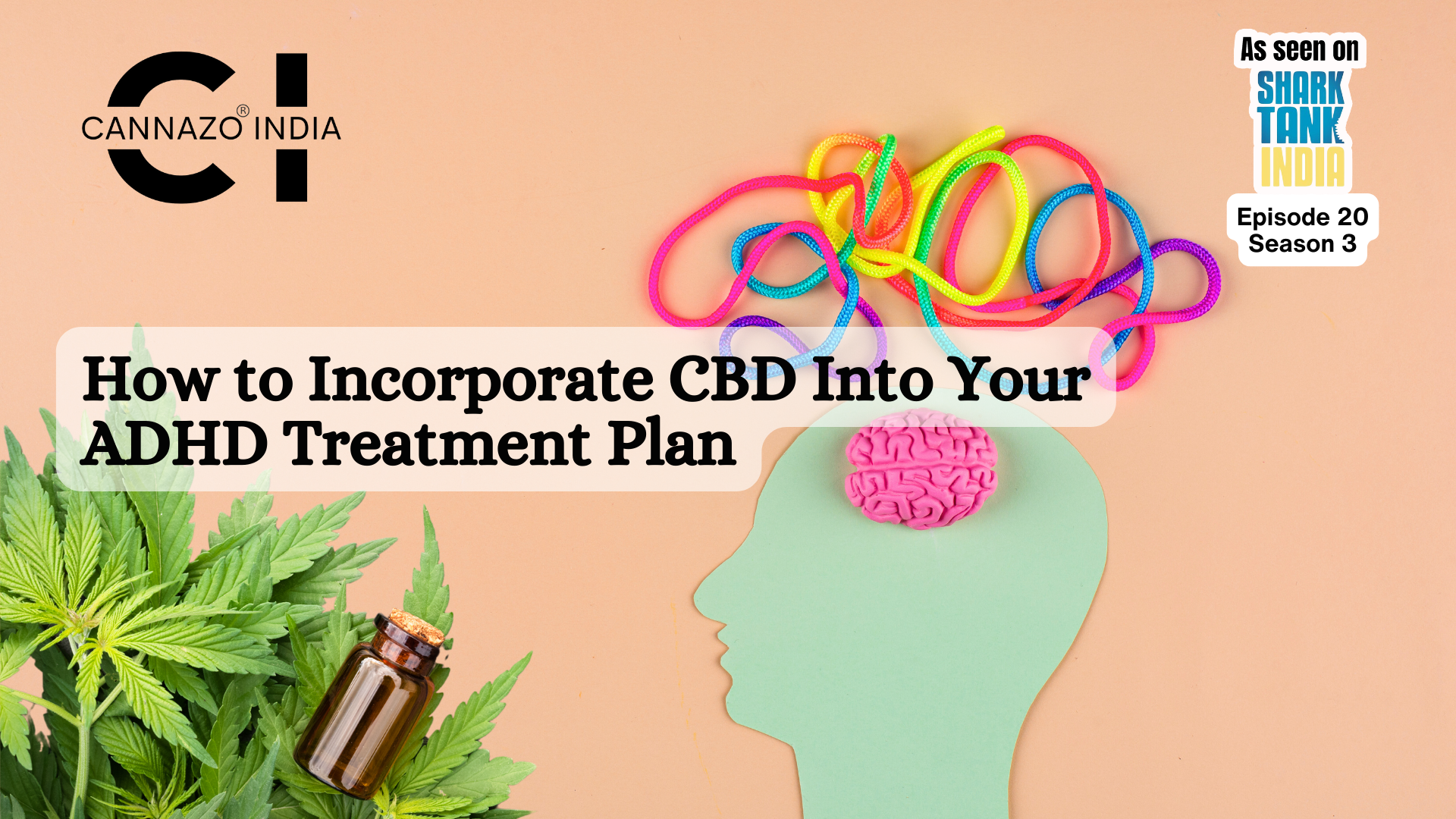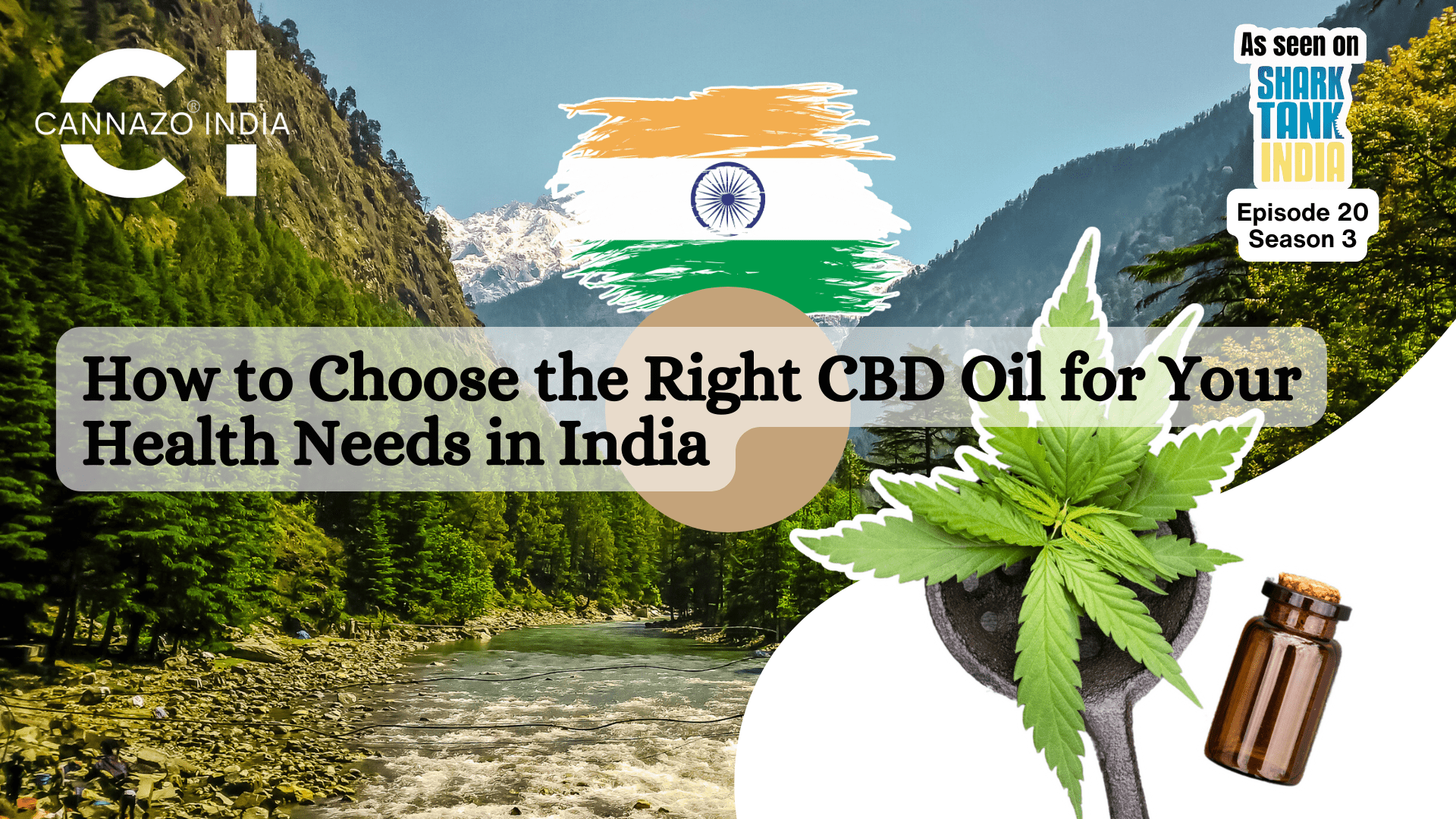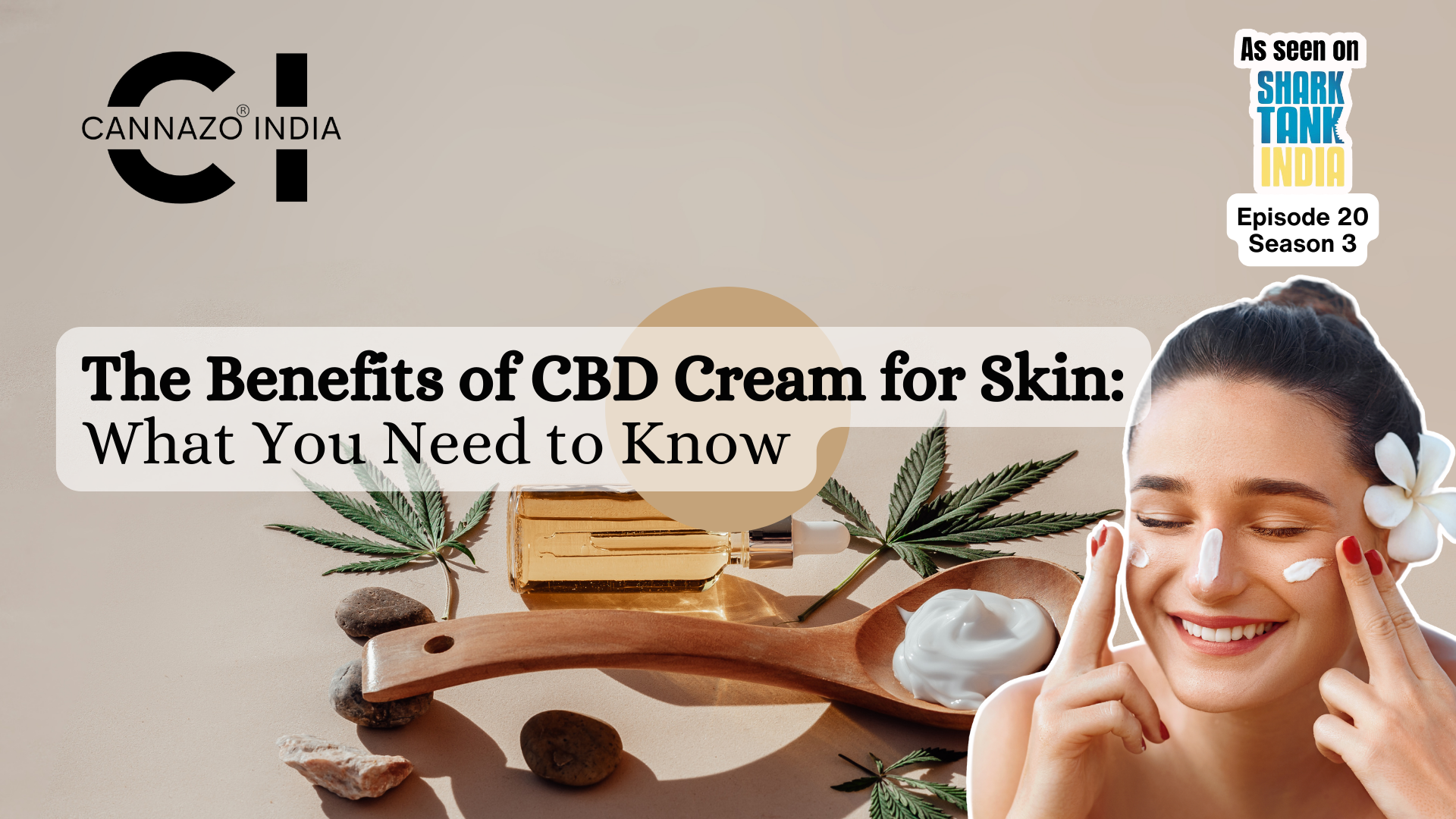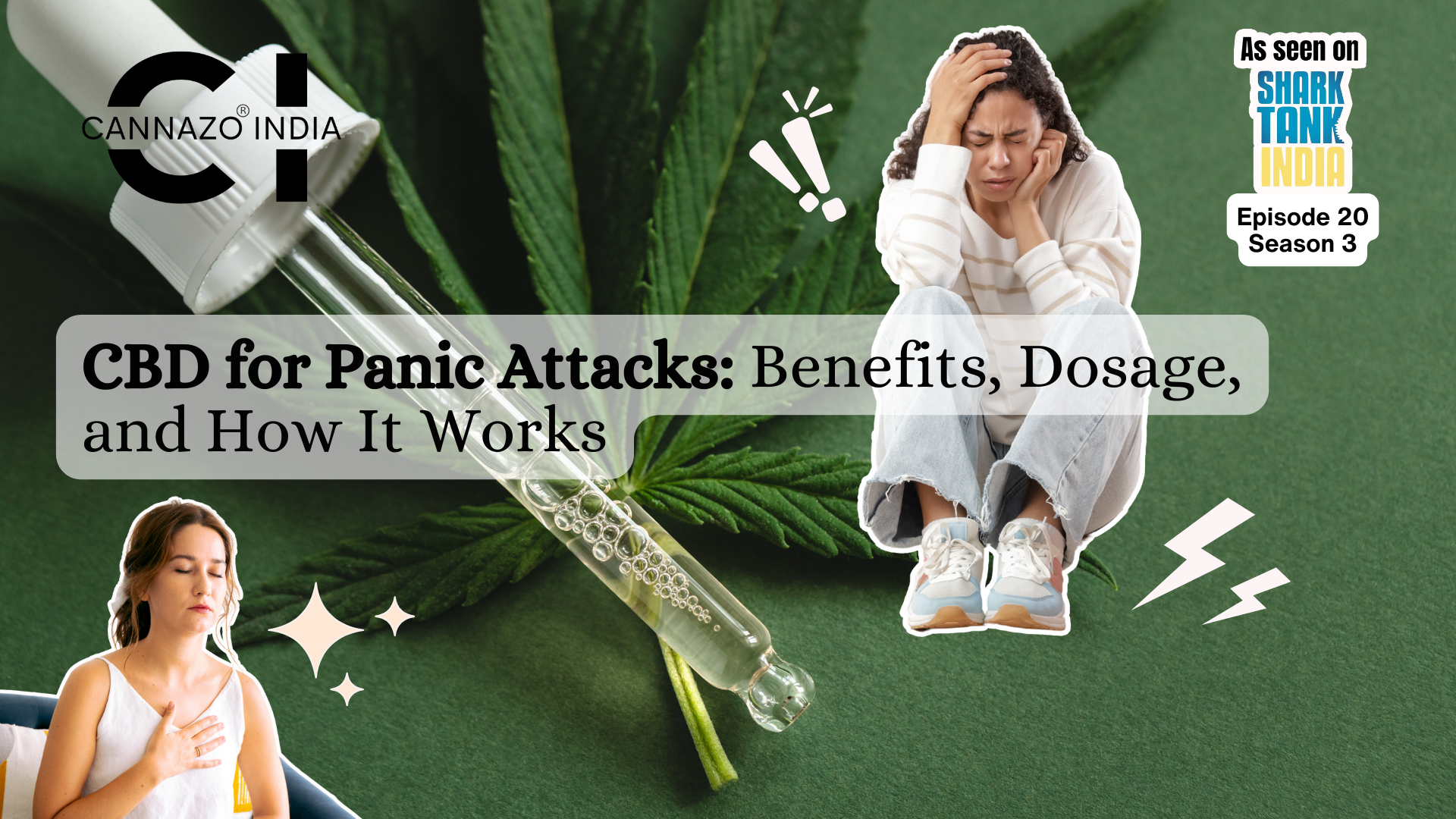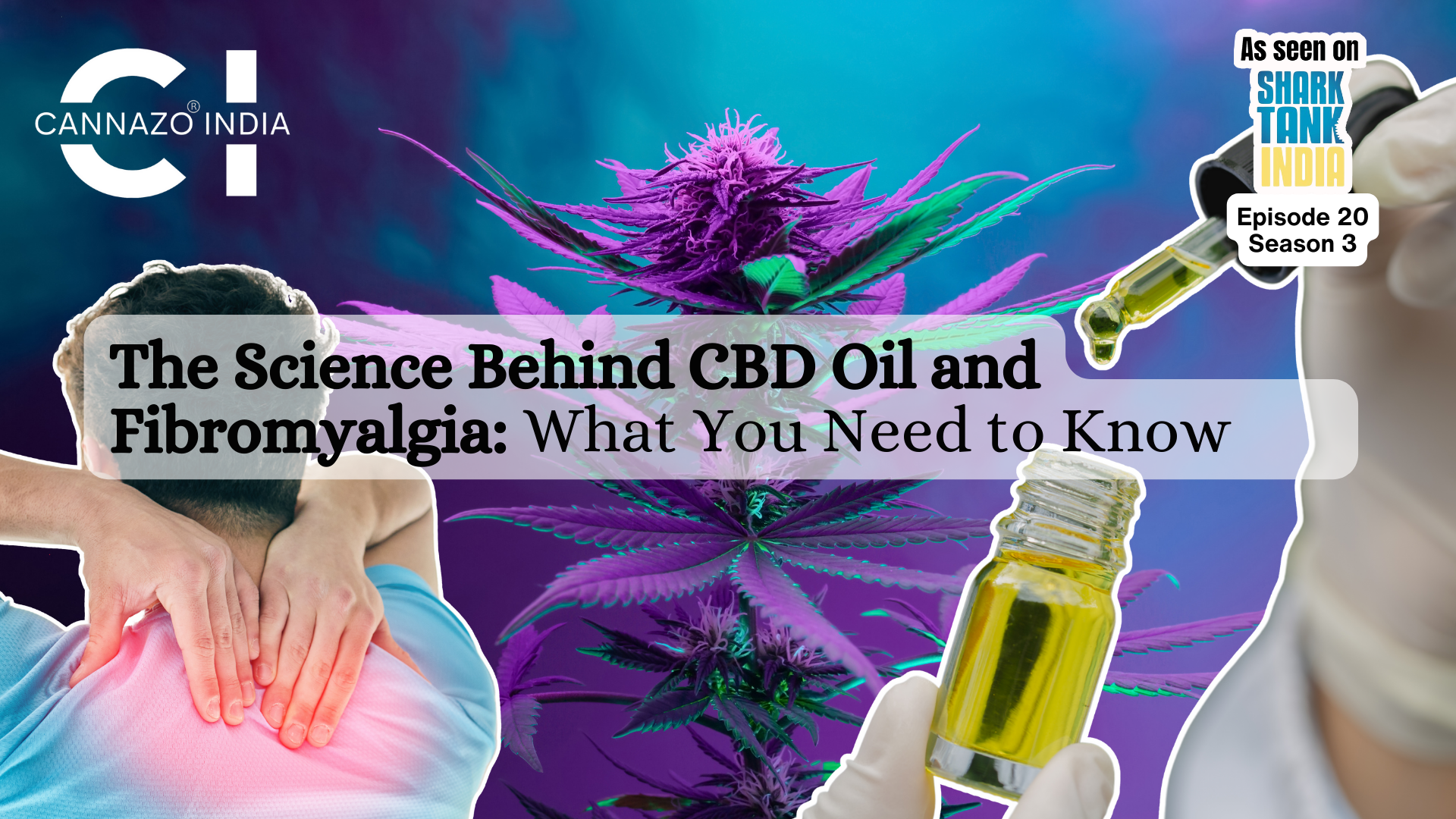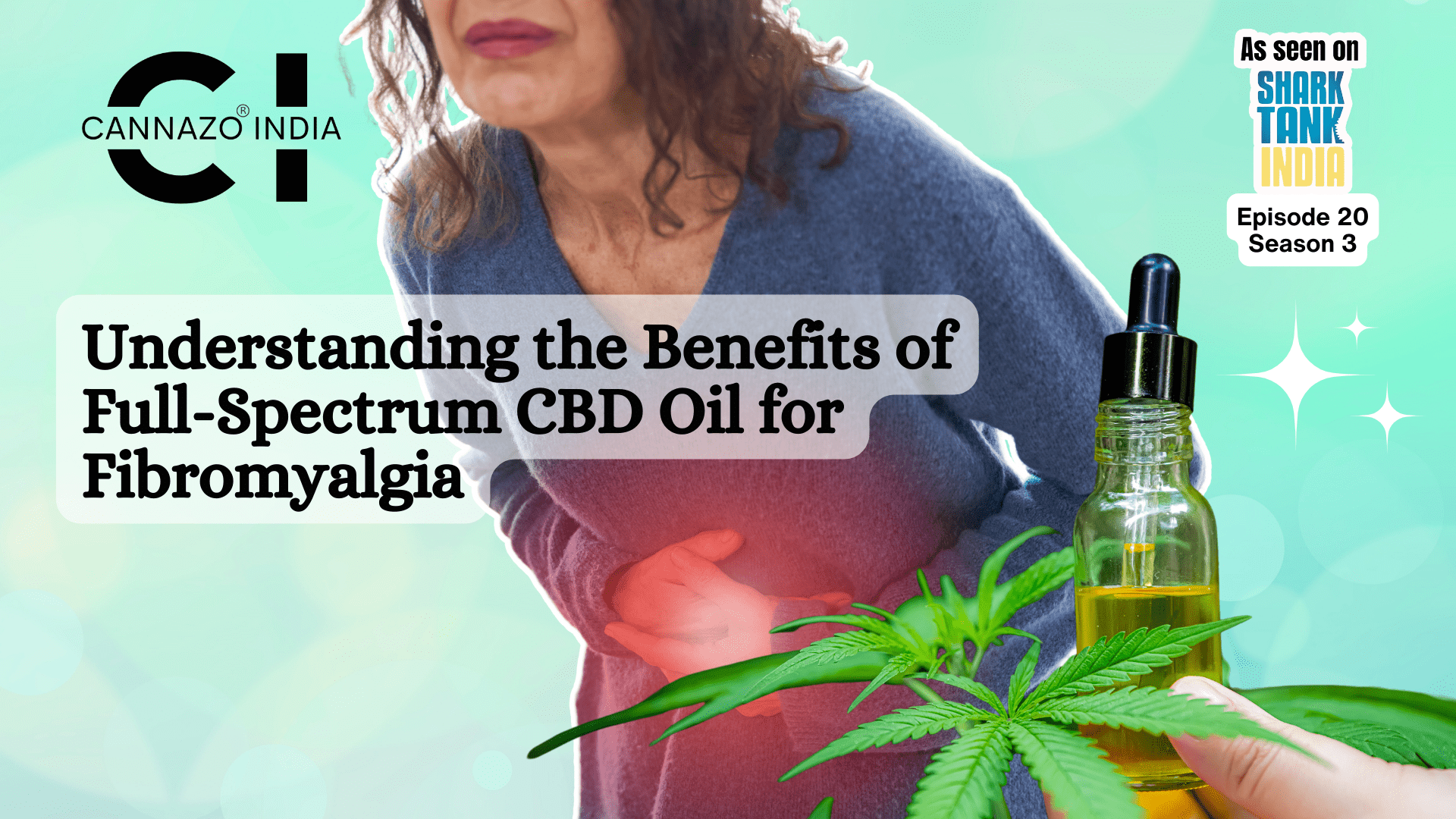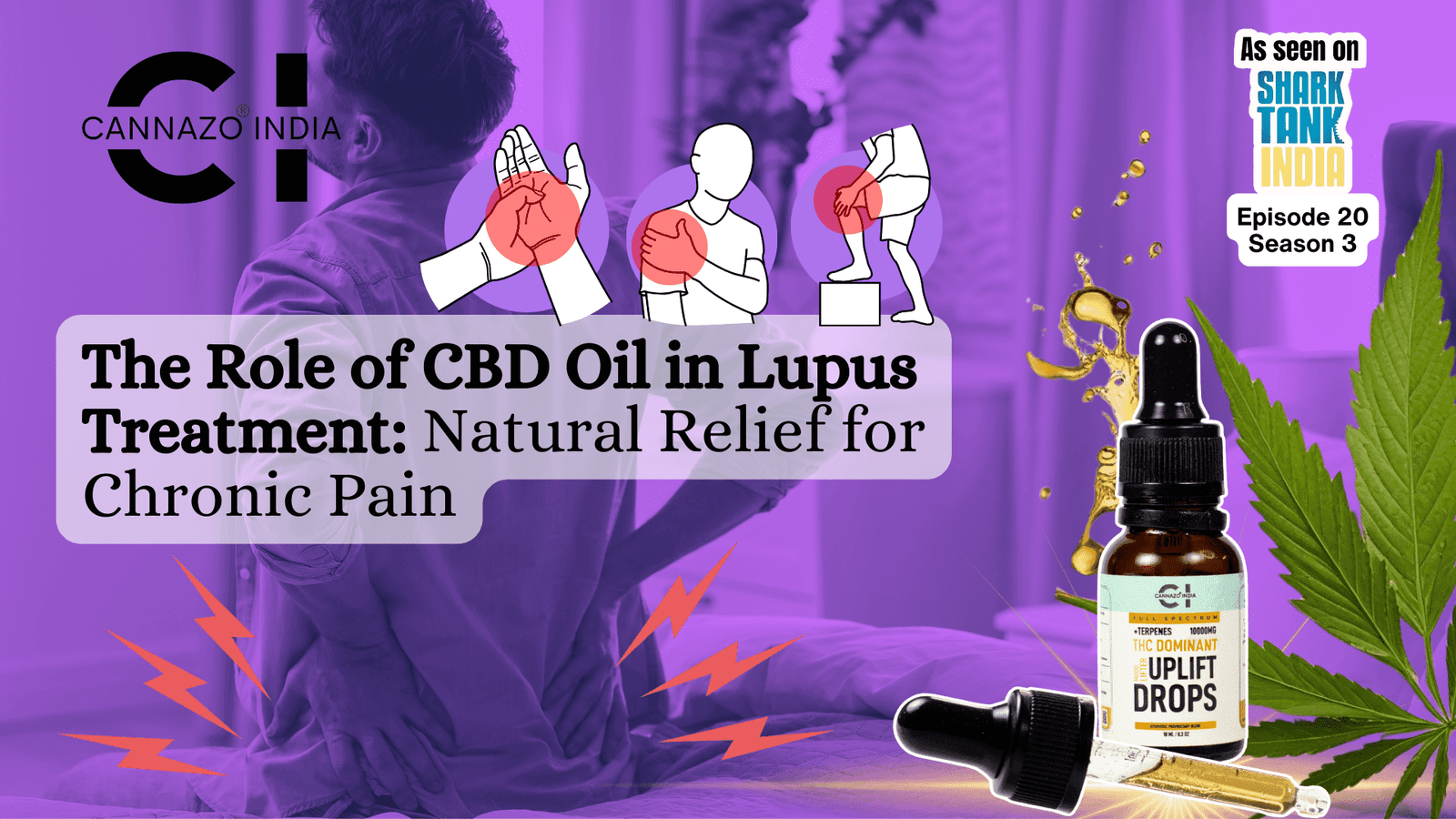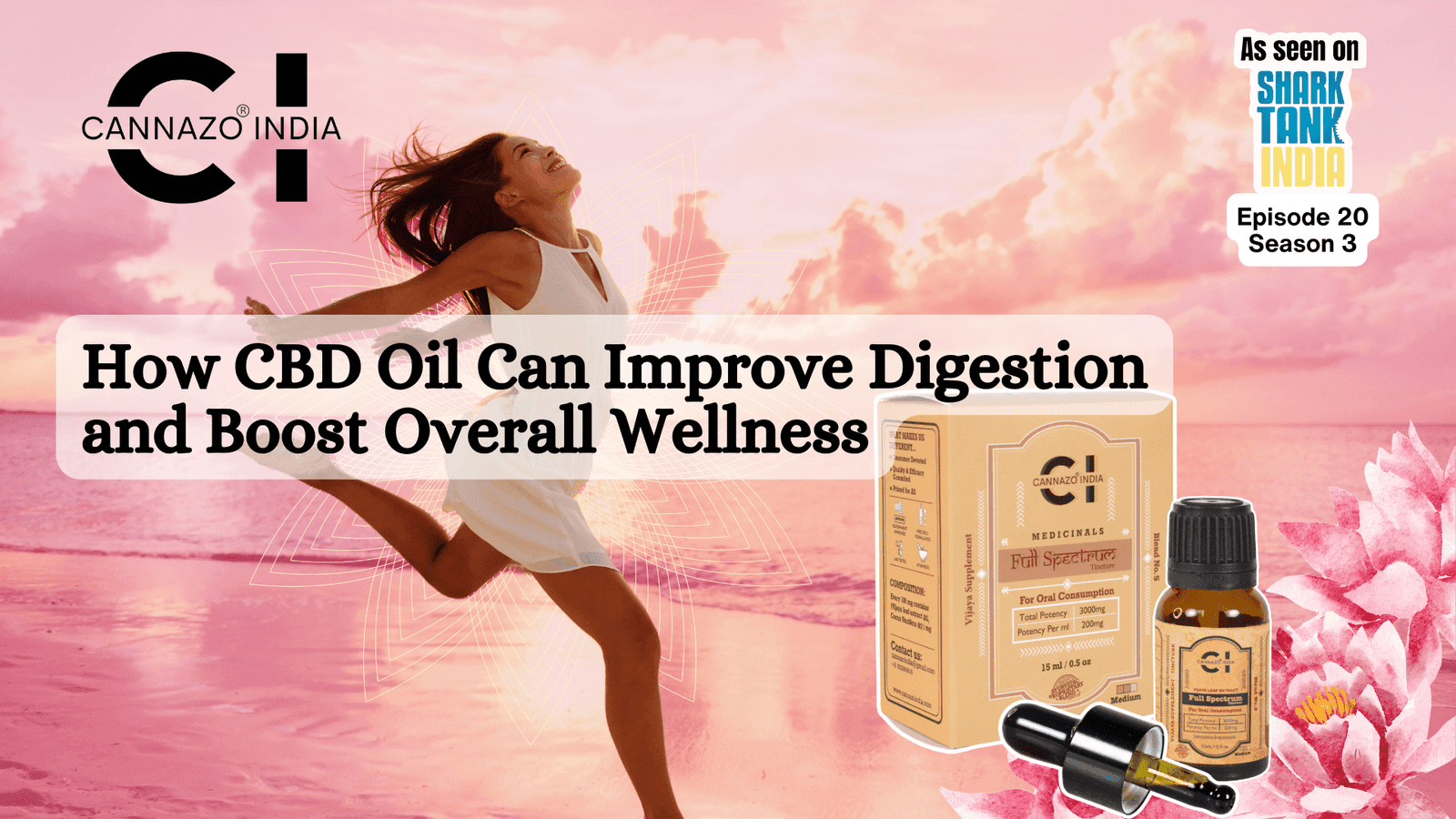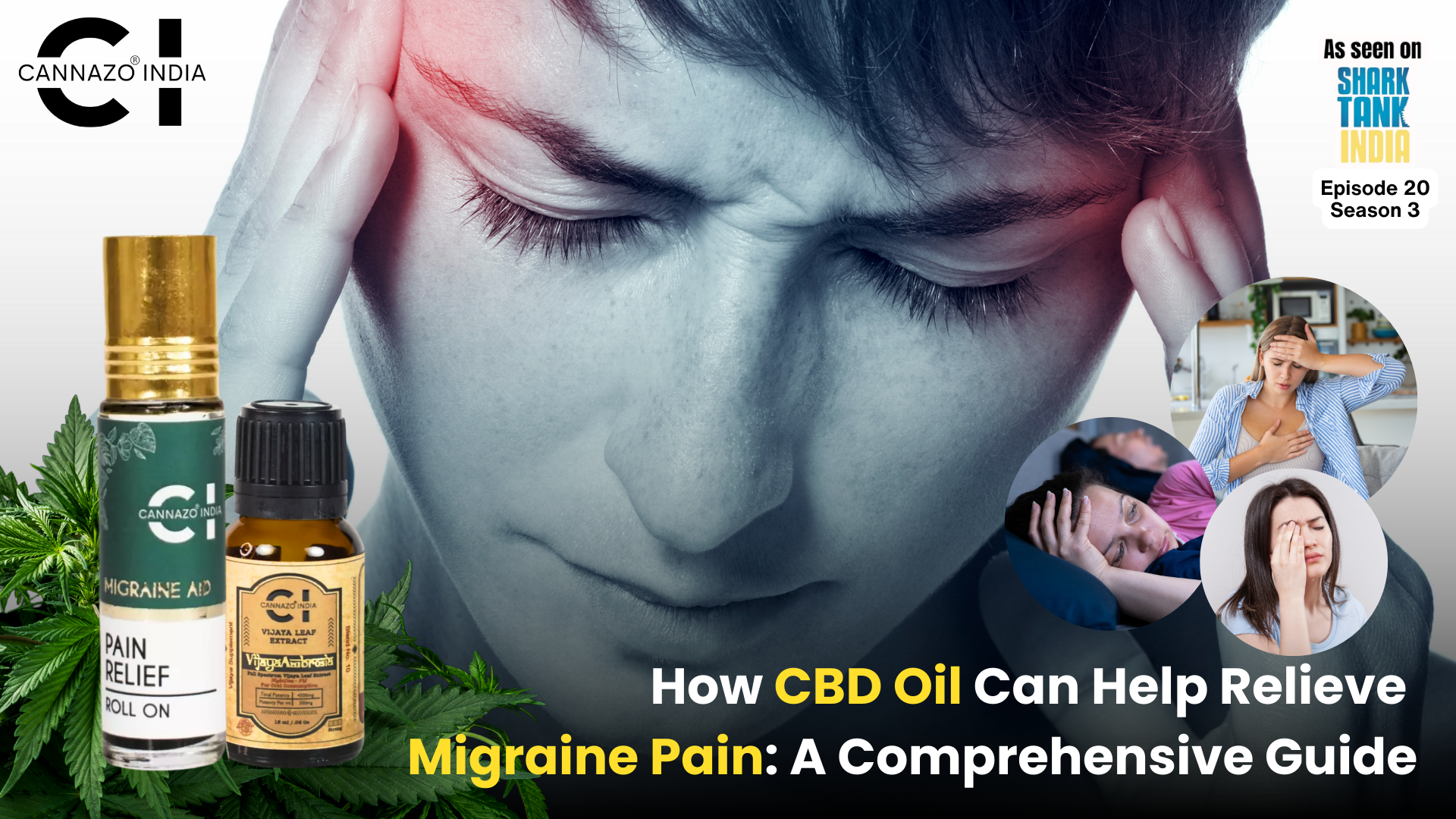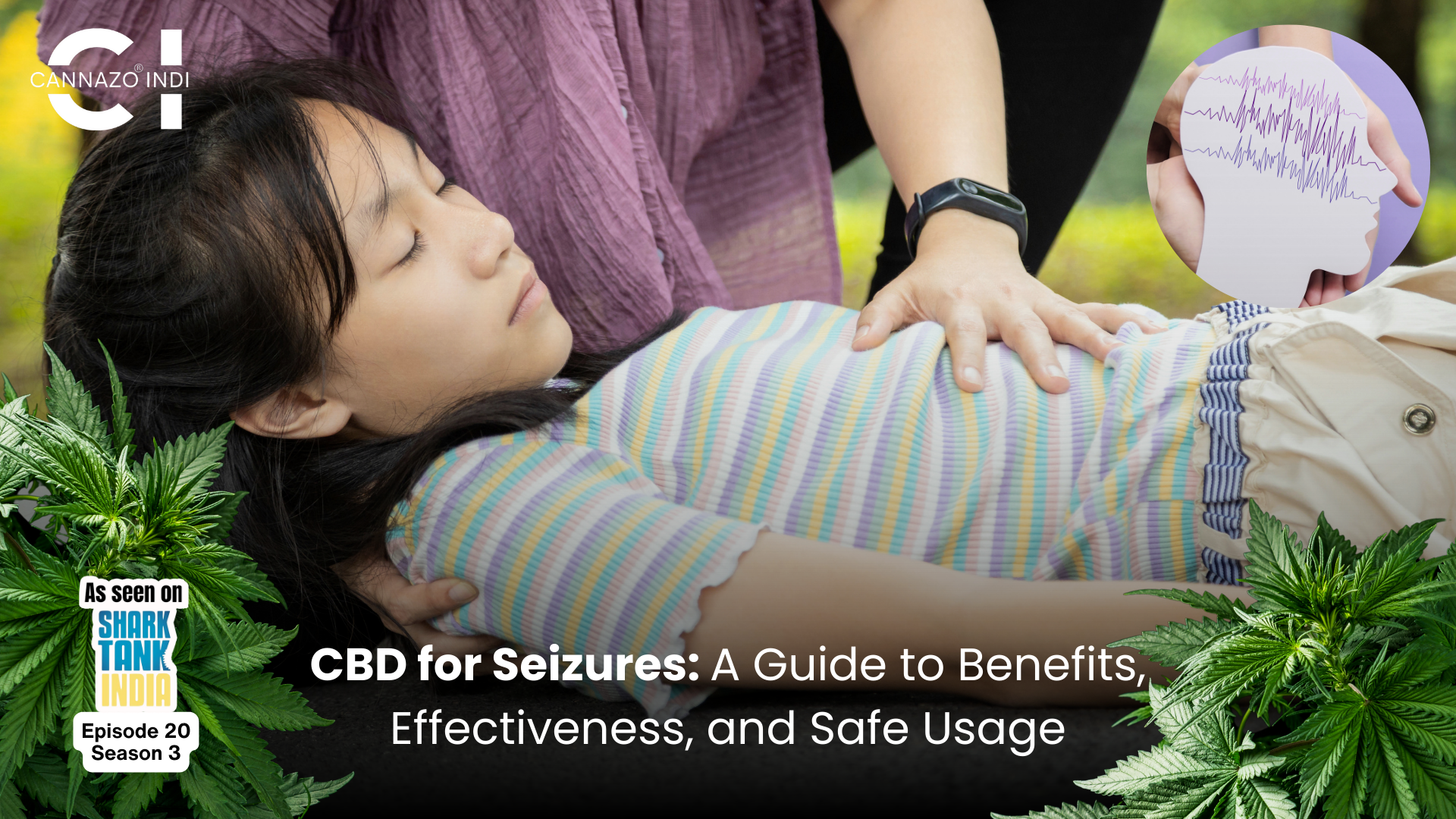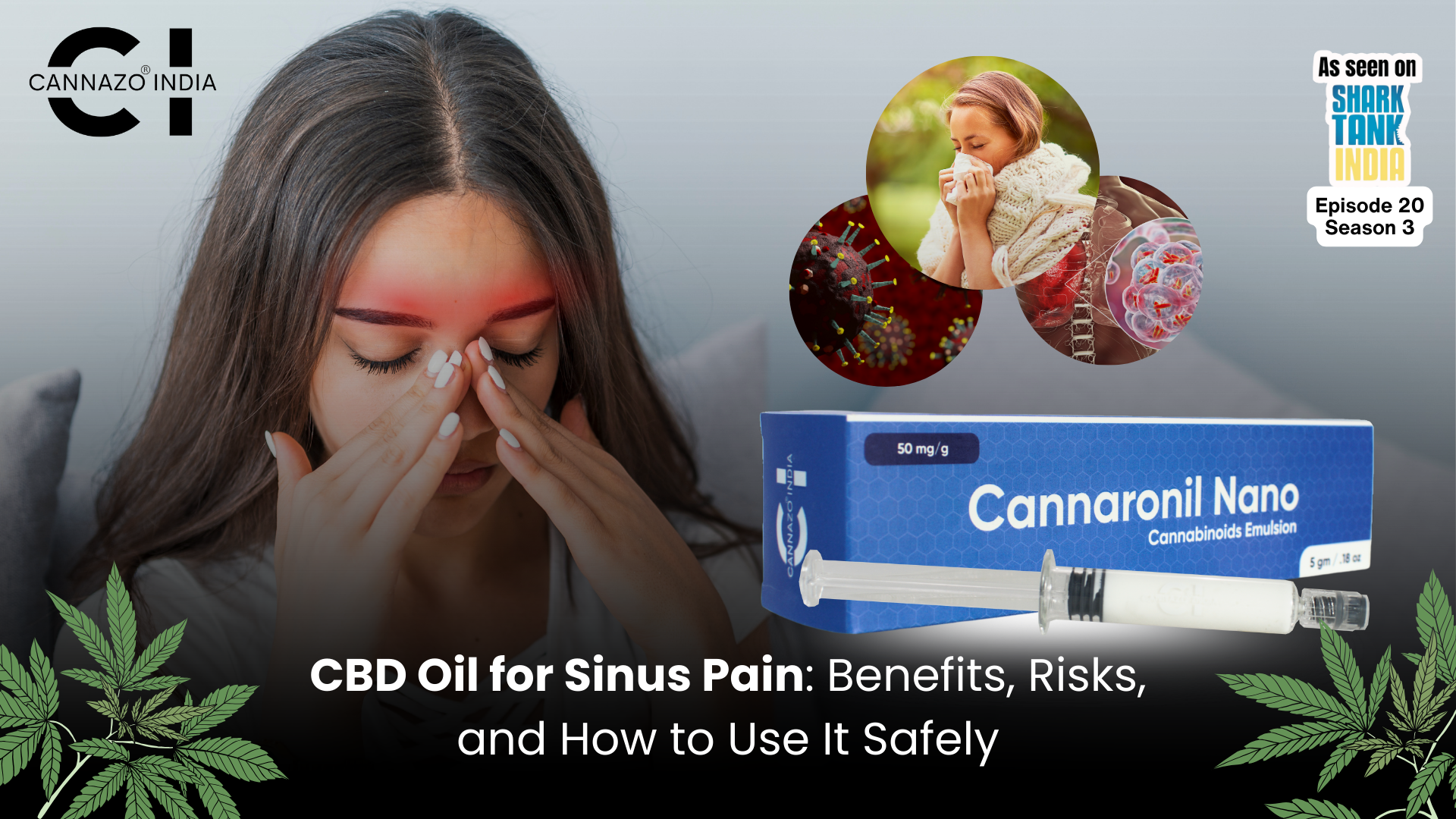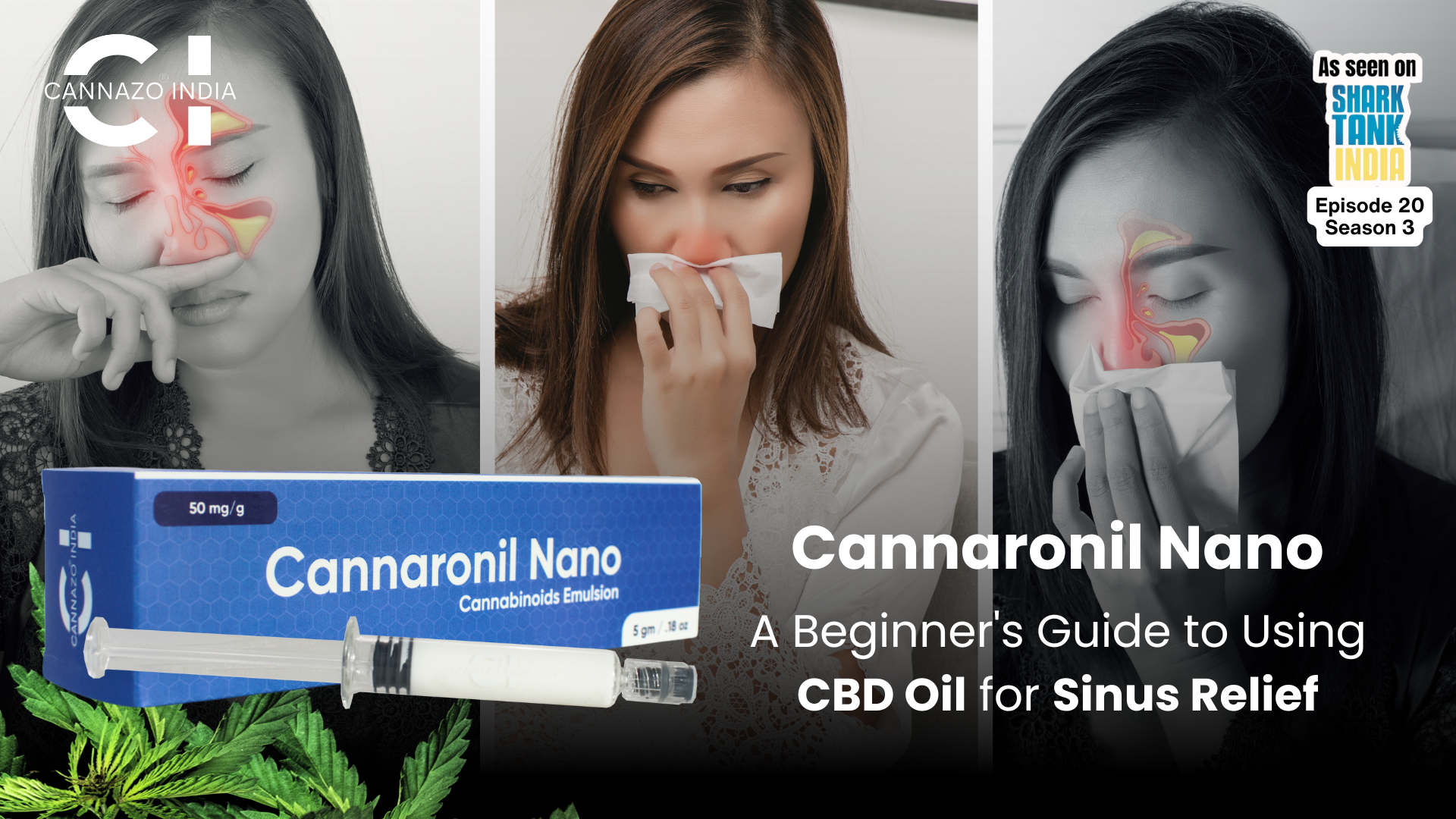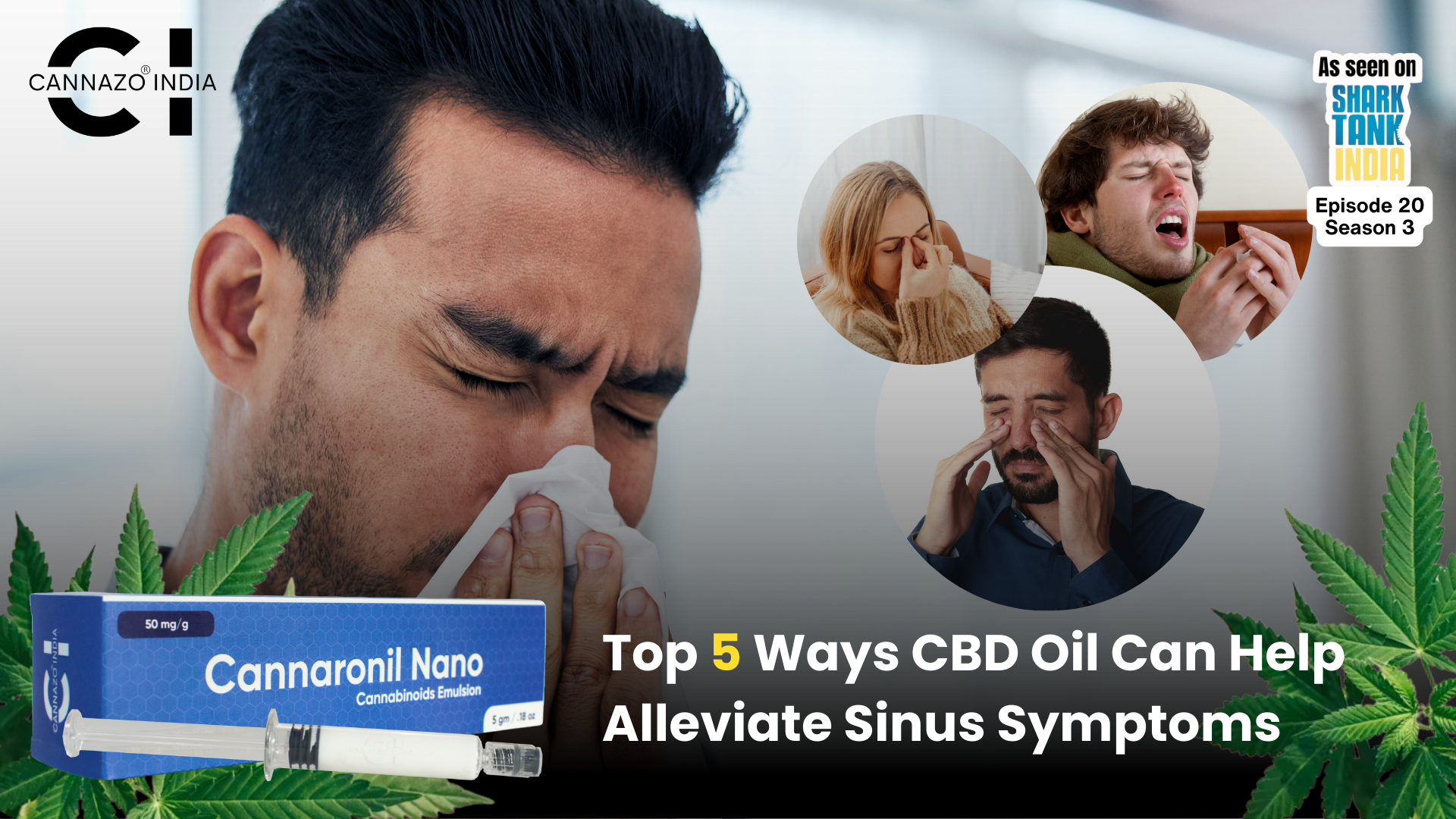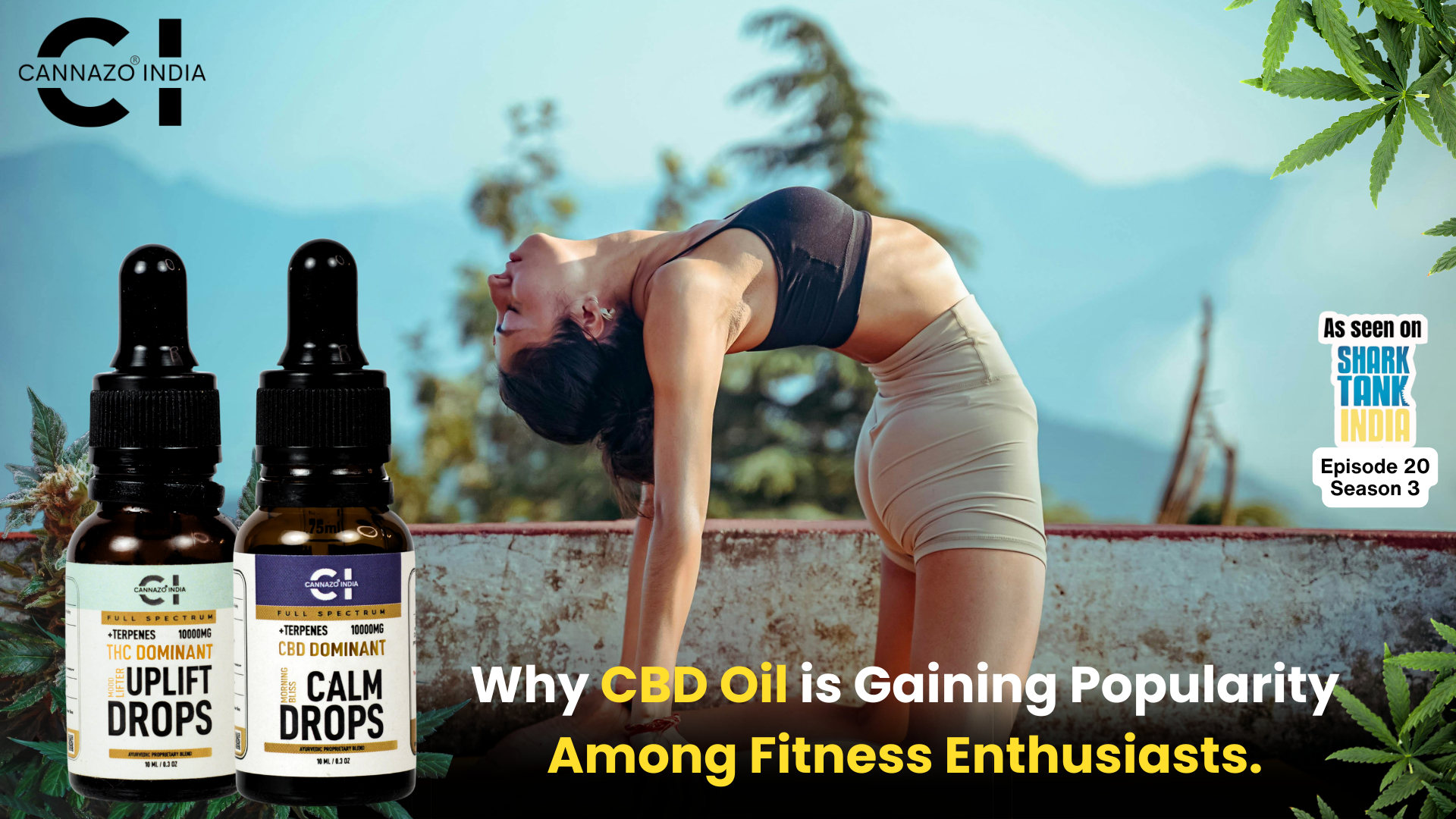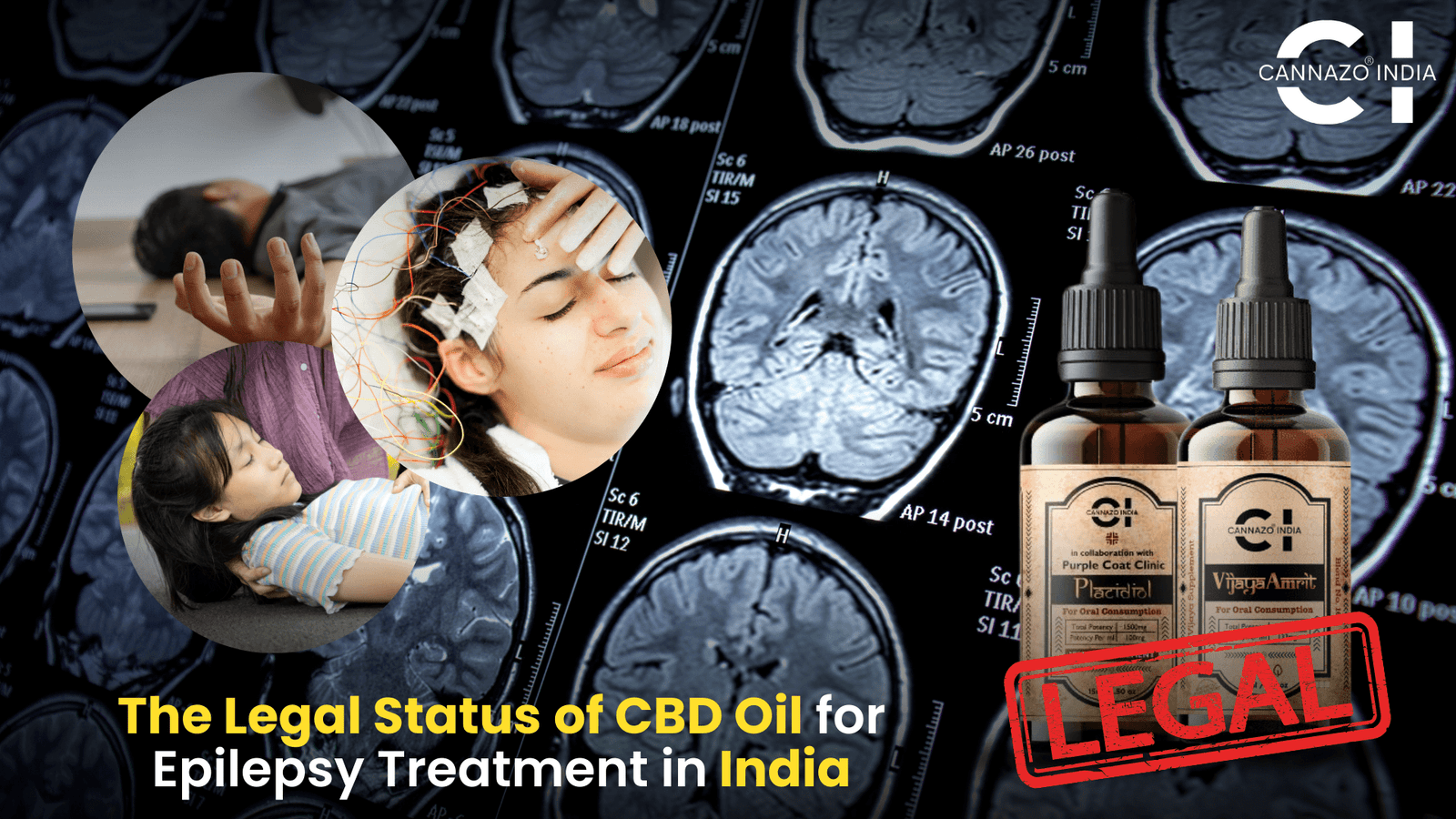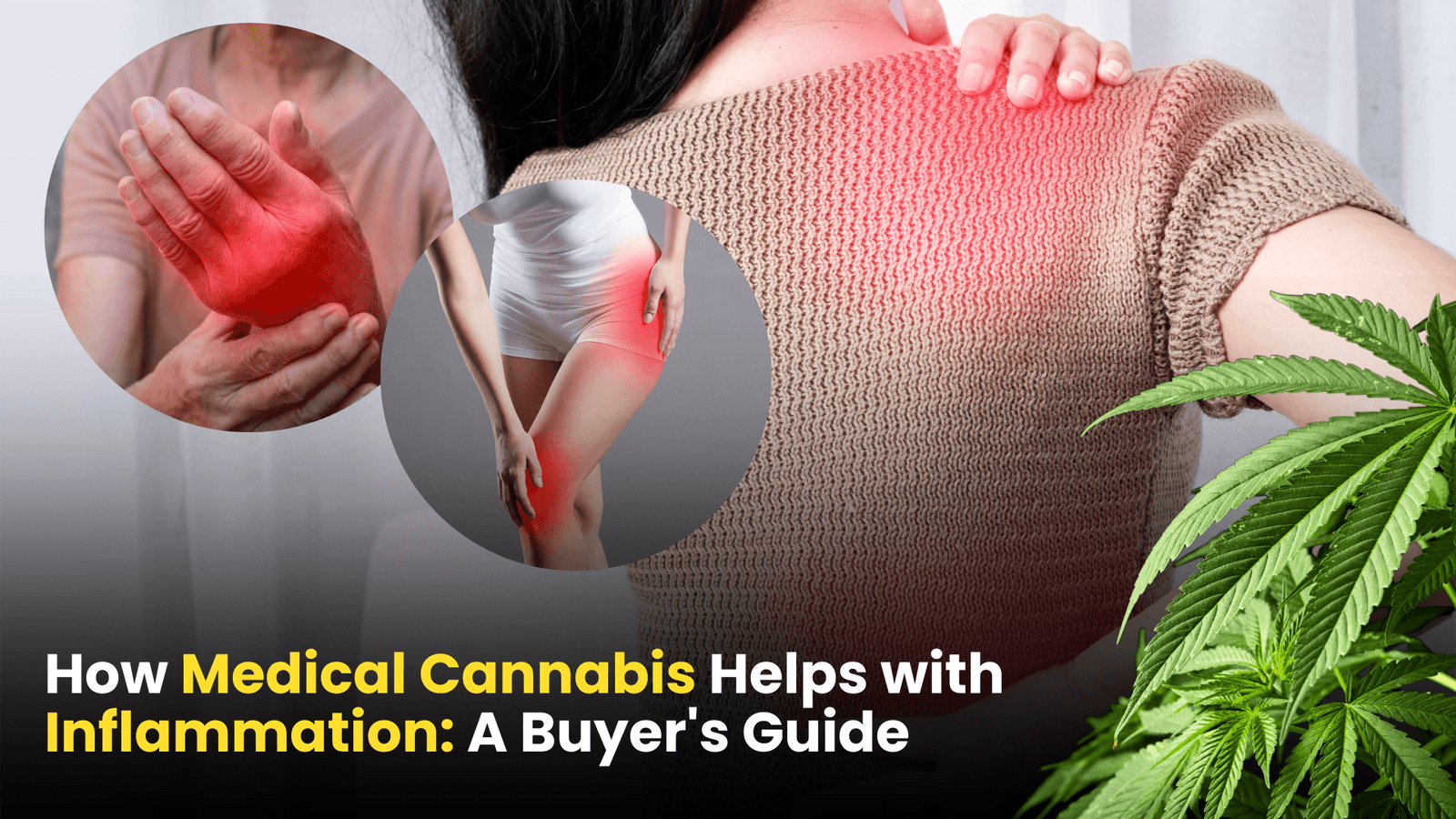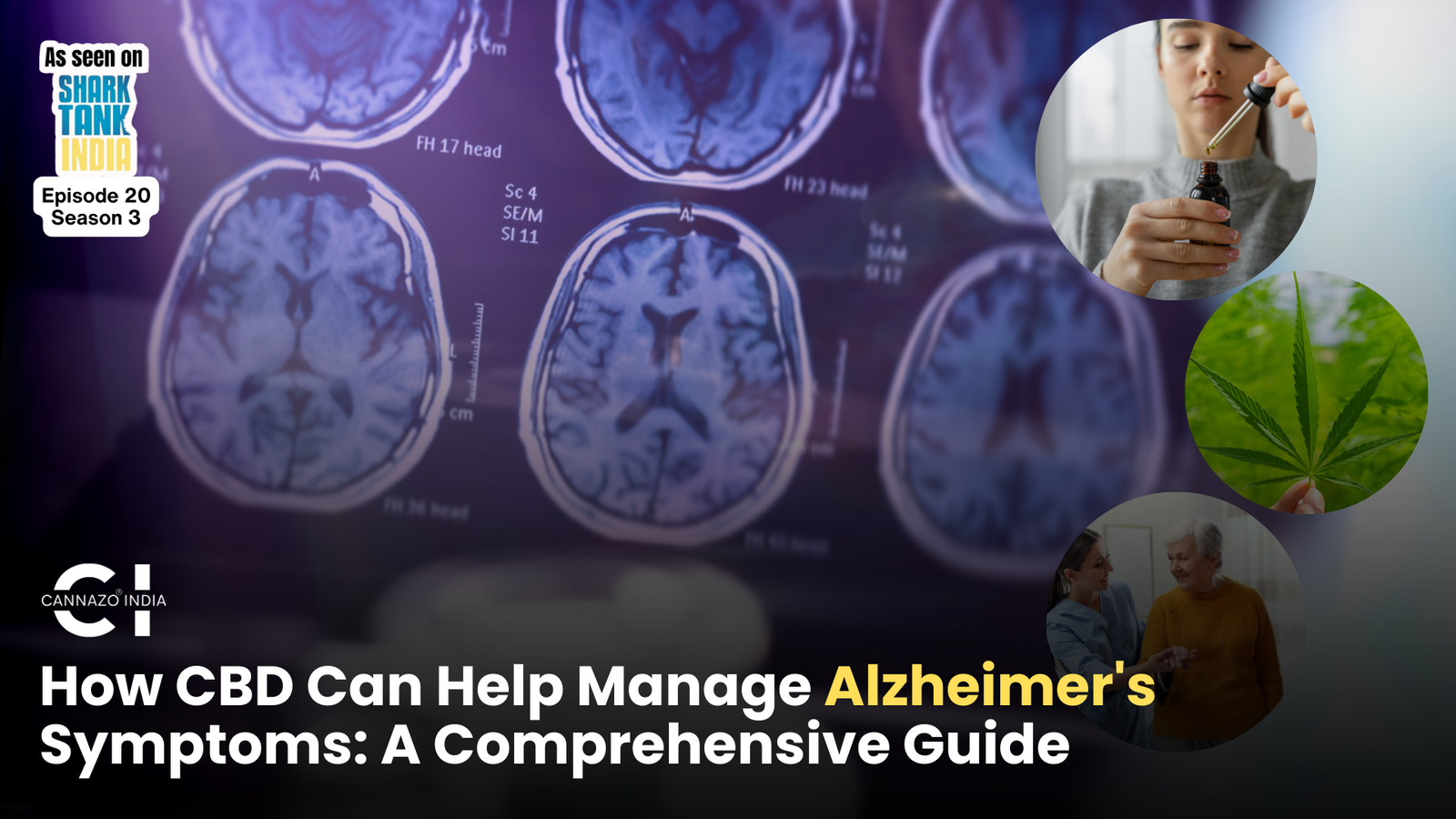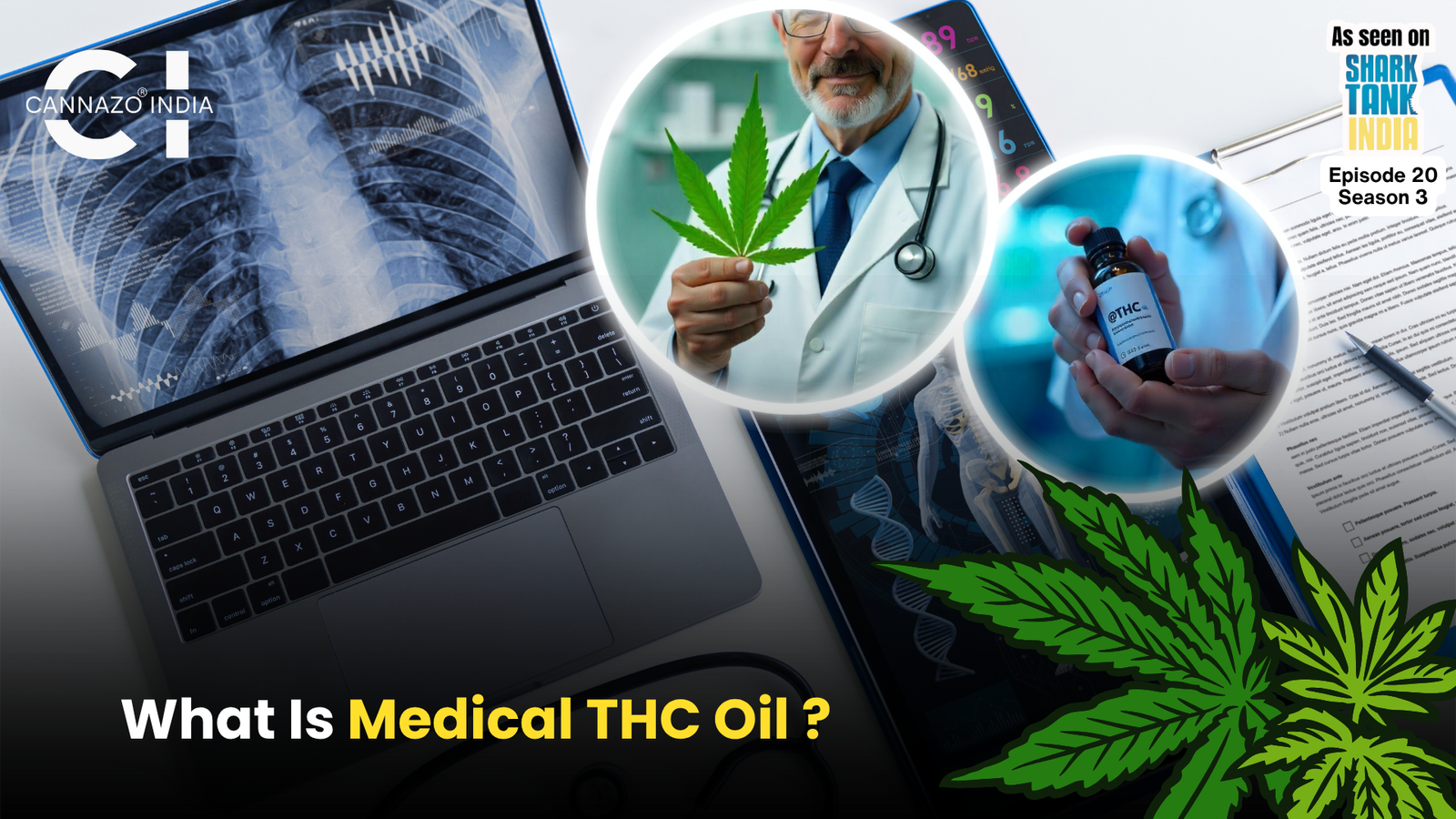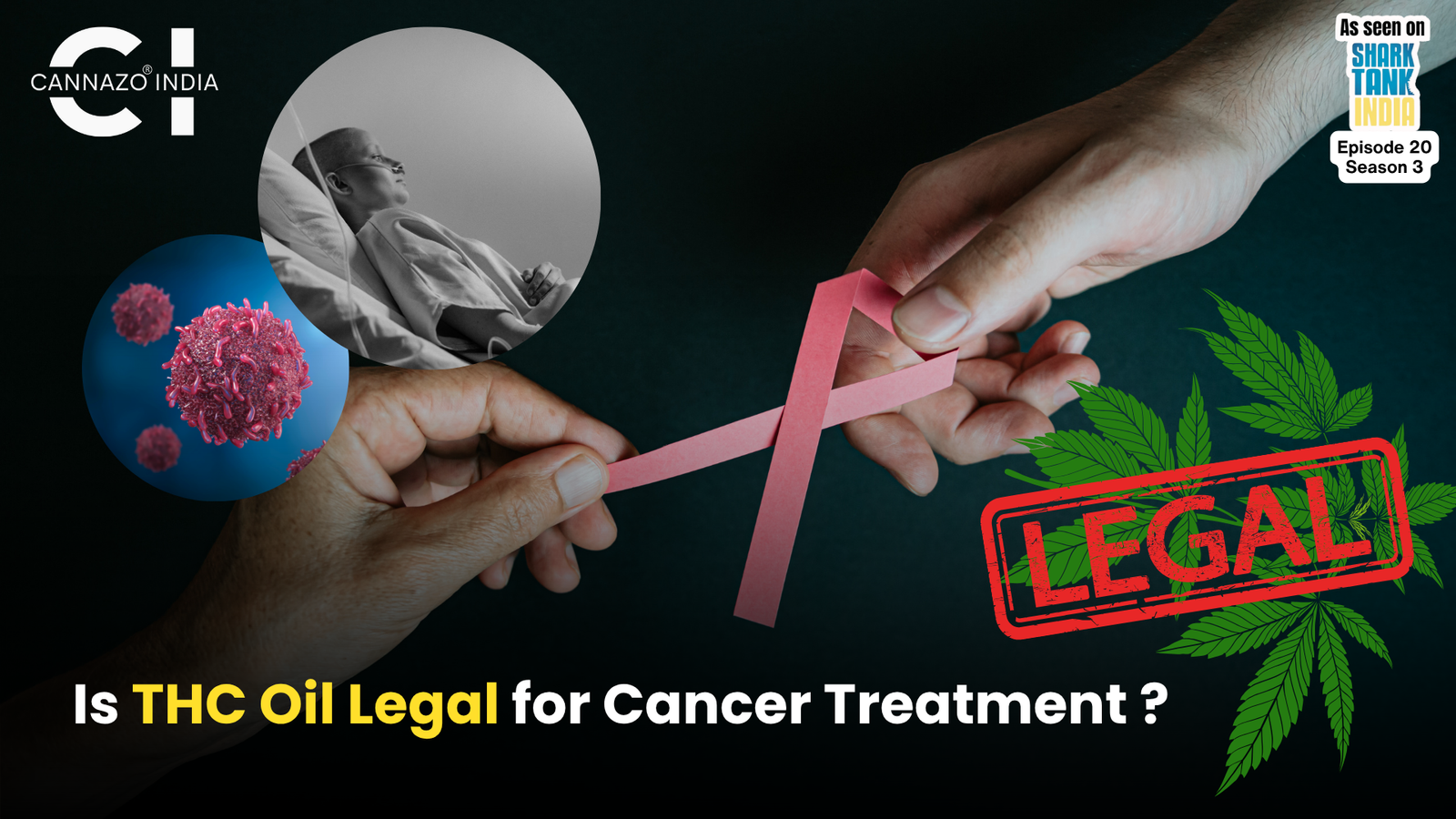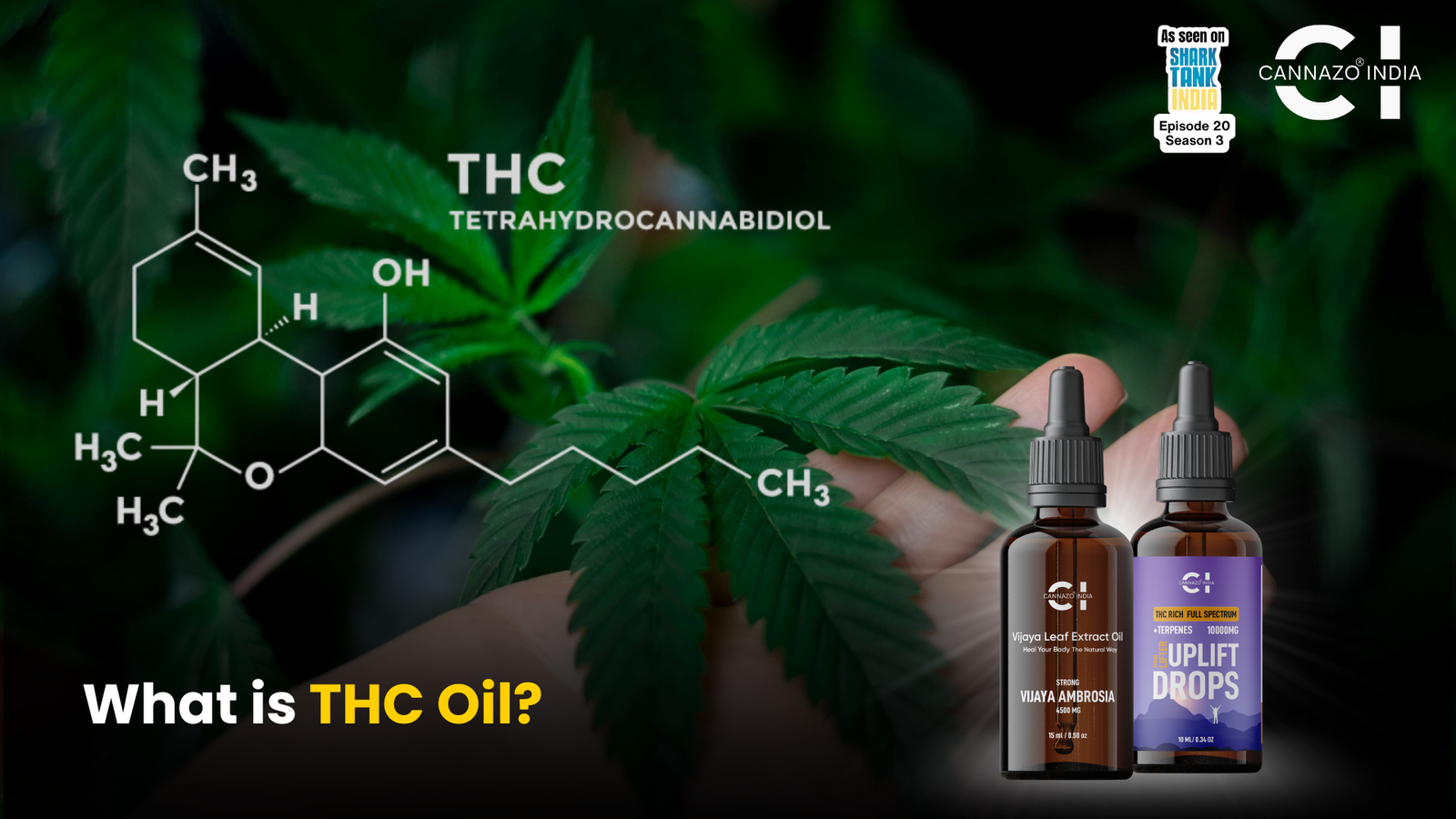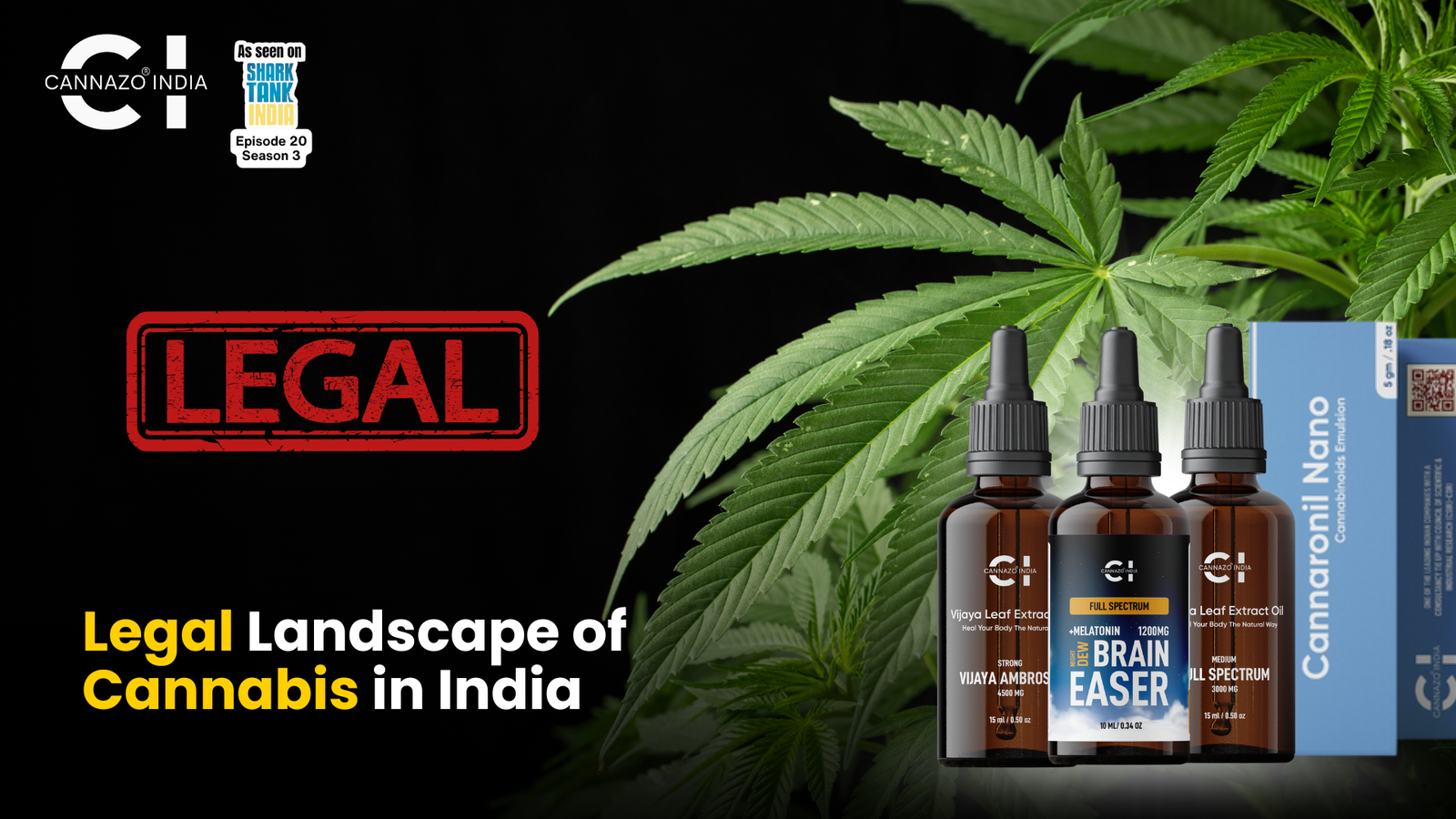Introduction
Psoriasis is a chronic autoimmune skin condition that can significantly affect quality of life. While conventional therapies are the mainstay, there is growing interest in CBD oil as a complementary approach for symptom relief in India. Recent research highlights CBD’s potential to reduce inflammation, modulate immune responses, and improve skin health, but navigating the Indian CBD market requires careful consideration of several factors.[1],[2],[3]
Understand the Benefits of CBD Oil for Psoriasis Relief
CBD (cannabidiol) has demonstrated anti-inflammatory, immunomodulatory, and analgesic properties that may benefit people with psoriasis. Research shows that CBD can suppress pro-inflammatory cytokines like TNF-α and IL-6, which are central to psoriatic inflammation, and may help normalise keratinocyte proliferation, reducing plaque formation and scaling. Clinical studies have reported improvements in itching, erythema, and plaque thickness, with some patients experiencing relief as early as two weeks after starting topical CBD treatment.[1],[4]
Psoriasis is fundamentally an inflammatory disease, with immune cells releasing pro-inflammatory cytokines that drive skin redness, swelling, and scaling. CBD reduces the production of these cytokines-including TNF-α, IL-6, IL-17, IL-22, and others-by modulating immune cell activity and inhibiting inflammatory signalling pathways such as NF-κB. This anti-inflammatory effect directly lessens the severity of psoriatic lesions.[4],[1]
The immune system in psoriasis is overactive, particularly involving T cells that mistakenly attack healthy skin. CBD helps restore immune balance by suppressing the proliferation of T cells and reducing the release of immune mediators like interferon-gamma (IFN-γ) and IL-17, both of which are central to psoriasis pathology. CBD also modulates the formation of neutrophil extracellular traps (NETs), which contribute to local tissue damage in psoriatic skin.[1]
- Regulation of Keratinocyte Proliferation
A hallmark of psoriasis is the rapid and excessive growth of keratinocytes (skin cells), leading to thick, scaly plaques. CBD has been shown to normalise keratinocyte proliferation and differentiation, helping to restore the skin’s natural growth cycle and reduce plaque formation. By slowing down the overproduction of these cells, CBD addresses one of the root causes of visible psoriasis symptoms. [5]
- JAK2–STAT3 Pathway Inhibition
Recent research highlights CBD’s ability to inhibit the JAK2–STAT3 signalling pathway, which plays a key role in the inflammatory cascade and keratinocyte hyperproliferation in psoriasis. In animal models, CBD reduced the severity of psoriasis by lowering PASI scores, epidermal thickness, and the expression of inflammatory cytokines through this pathway. This targeted action is similar to that of some modern psoriasis medications, but with a potentially broader safety profile.[4]
- Interaction with the Endocannabinoid System (ECS)
CBD interacts with the body’s endocannabinoid system network of receptors (CB1 and CB2), enzymes, and endogenous cannabinoids that regulate inflammation, immune response, and skin health. By modulating ECS activity, CBD helps maintain skin homeostasis, reduce inflammation, and protect against oxidative stress.[5]
Oxidative stress contributes to skin cell damage and inflammation in psoriasis. CBD’s antioxidant properties help neutralise free radicals, protecting skin cells and further supporting the management of psoriatic symptoms.[5]
- Clinical and Experimental Evidence
- In animal studies, topical CBD significantly reduced psoriasis severity, epidermal thickness, and inflammatory markers.[4]
- Human studies and patient reports indicate improvements in skin hydration, elasticity, pain, and itchiness, with some experiencing rapid symptom relief.[6]
- CBD may be used alongside conventional treatments, but not as a replacement for systemic therapies in severe cases.[7]
“CBD may have rapid therapeutic effects in reducing appearance and pruritus in psoriasis patients… These benefits include reductions in the severity of scaling, erythema, and plaque thickness, which are key indicators of disease activity.” [1]
Look for Full-Spectrum vs. Isolate CBD Oil
CBD oil comes in three main types:
- Full-spectrum: Contains CBD, other cannabinoids (including trace THC), terpenes, and flavonoids. This combination may enhance therapeutic effects via the “entourage effect,” making it most recommended for psoriasis.[1],[3]
- Broad-spectrum: Similar to full-spectrum but without THC, suitable for those who want to avoid THC.
- Isolate: Pure CBD with all other plant compounds removed; may be less effective for complex conditions like psoriasis due to the absence of synergistic compounds.[1]
Check the THC Content: How Much is Safe?
In India, CBD oil must contain less than 0.3% THC to be legal. Trace amounts of THC in full-spectrum products are generally considered safe and non-psychoactive, but always verify THC content through a Certificate of Analysis (COA) to ensure compliance and safety. Broad-spectrum and isolate products are THC-free, which may be preferable for those concerned about drug testing or psychoactive effects.[1]
According to the NDPS Act of 1985 banned cannabis flowering tops were banned, but AYUSH allowed the use of its leaves and seeds. Later, the Ministry of Health approved medical cannabis, legalising full-spectrum CBD oil in 2018. Cannazo India complies with regulations by sourcing hemp leaves from government-approved sources and selling products only with a valid prescription. [8]
Verify the Quality and Purity of CBD Oil
Quality assurance is critical in the largely unregulated Indian CBD market. Choose products that:
- Are third-party lab tested, with COAs confirming cannabinoid content and absence of contaminants (heavy metals, pesticides, solvents).[1]
- Are sourced from organically grown hemp.
- Come from reputable brands with transparent manufacturing practices.[1]
“One of the most commonly reported issues was the lack of standardised CBD formulations, leading to variability in product quality and dosage across studies.” [1]
Consider the Extraction Method: CO2 vs. Solvent Extraction
- CO2 extraction is the gold standard, producing pure, potent CBD oil without harmful residues.
- Solvent extraction (using ethanol or hydrocarbons) is less expensive but may leave trace solvents and degrade product quality.[1]
Opt for CO2-extracted CBD oils for maximum safety and efficacy.
Application Method: Oil, Creams, and Topicals
CBD for psoriasis is available as:
- Oral oils/tinctures: Offer systemic relief and may help with widespread inflammation.[1],[3]
- Topicals (creams, balms): Deliver CBD directly to affected skin, providing targeted relief from itching, redness, and scaling.[1],[4]
- Combination: Many patients benefit from using both oral and topical CBD for comprehensive management.[1]
Clinical studies support the use of topical CBD for rapid symptom relief, sometimes within two weeks.[4],[1]
Determine the Correct Dosage and Concentration
- Start with a low dose and increase gradually until optimal relief is achieved.[1]
- Higher concentrations (1000 mg or more per 30 ml bottle) may be more effective for moderate to severe psoriasis.[1]
- Dosage should be individualised, and consultation with a healthcare professional is recommended, especially if you are on other medications or have underlying health conditions.[1],[3]
Look for Organic and Natural Ingredients
- Choose CBD oils made from organically grown hemp to avoid pesticide residue.[1]
- Look for natural carrier oils (like MCT or hemp seed oil) and avoid artificial additives, fragrances, or preservatives, which may irritate sensitive skin.[1]
- Some Indian brands add Ayurvedic herbs for additional skin benefits. [1]
Conclusion
In conclusion, CBD oil presents a promising and increasingly recognized adjunctive treatment for managing psoriasis in India. Its therapeutic potential lies in its strong anti-inflammatory, antioxidant, and immunomodulatory effects, which can help address the core issues underlying psoriasis—namely, chronic inflammation and immune system dysregulation. When used topically, CBD oil has shown the ability to soothe irritated skin, reduce redness and itching, and potentially slow the rapid turnover of skin cells that leads to the formation of thick, scaly patches.
For individuals in India exploring CBD oil as part of their psoriasis management plan, it is vital to prioritise product quality and safety. Choosing full-spectrum or broad-spectrum CBD oils ensures the presence of a range of beneficial cannabinoids and terpenes that work together through the “entourage effect” to enhance therapeutic outcomes. Verifying THC content to ensure it complies with Indian legal limits, reviewing third-party lab test reports for purity and potency, and selecting products that use CO2 extraction methods and organic, natural ingredients are essential steps in making an informed and safe purchase.
Ultimately, while CBD oil is not a cure for psoriasis, it offers a natural, holistic approach that can complement conventional treatments. Patients should always consult with a qualified healthcare provider before starting CBD therapy, especially those who are already on immunosuppressants or other prescription medications. With careful guidance and high-quality products, CBD oil has the potential to become a valuable tool in improving the lives of those living with psoriasis.
References
- Sharma, S., Flores, J., Clark, J., Salathe, V., & Vinagolu-Baur, J. (2024). Exploring the Potential of Cannabidiol (CBD) Oil as an Adjunct Therapy for Psoriasis: Efficacy, Mechanisms, and Regulatory Challenges. Journal of Clinical and Medical Research. https://doi.org/10.47991/2835-9496/AJCMR-160
- Maria, A., Gabriel Cristian Bejan, Mihaela Daniela Balta, Octavian Andronic, Toma, C., & Busnatu, S. (2024). The Perspective of Cannabidiol in Psoriasis Therapy. Psoriasis Targets and Therapy, Volume 14, 51–61. https://doi.org/10.2147/ptt.s469698
- CBD for Psoriasis and Psoriatic Arthritis. (n.d.). Www.psoriasis.org. https://www.psoriasis.org/advance/cbd-for-psoriasis-and-psa/
- Kim, M.-S., Lee, J.-H., Kim, S.-W., & Bang, C.-H. (2024). Cannabidiol Alleviates Imiquimod-Induced Psoriasis by Inhibiting JAK2–STAT3 in a Mouse Model. Biomedicines, 12(9), 2084. https://doi.org/10.3390/biomedicines12092084
- Mukherjee, R. (2024, August 30). CBD and Psoriasis: A Dermatological Revolution? India Hemp Organics. https://indiahemporganics.com/blogs/news/cbd-and-psoriasis-a-dermatological-revolution
- Shishira Sreenivas. (2021, July 13). CBD for Psoriasis and Psoriatic Arthritis: What You Should Know. WebMD. https://www.webmd.com/arthritis/psoriatic-arthritis/features/cbd-psoriasis-psoriatic-arthritis
- CBD for Psoriasis and Psoriatic Arthritis. (n.d.). Www.psoriasis.org. https://www.psoriasis.org/advance/cbd-for-psoriasis-and-psa/
- Blocked. (2025). Cannazoindia.com. https://cannazoindia.com/cbd-oil-in-india-benefits-uses-and-legality/





